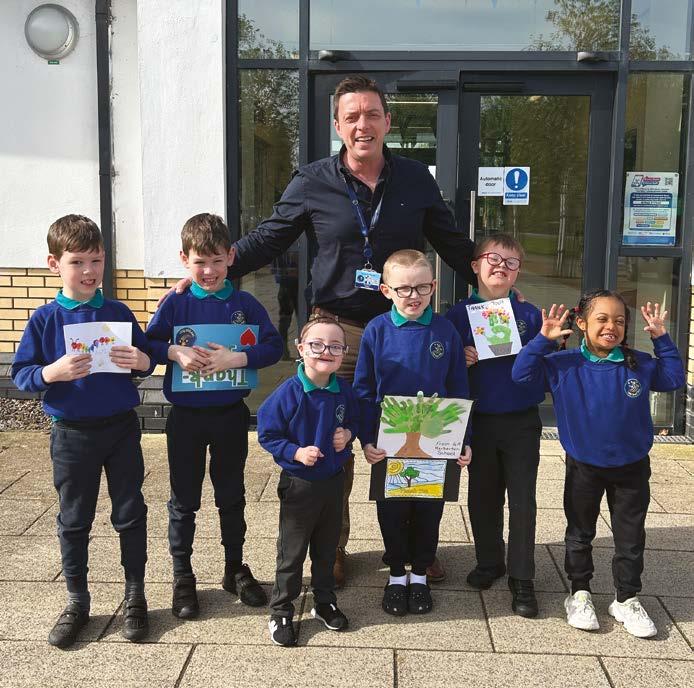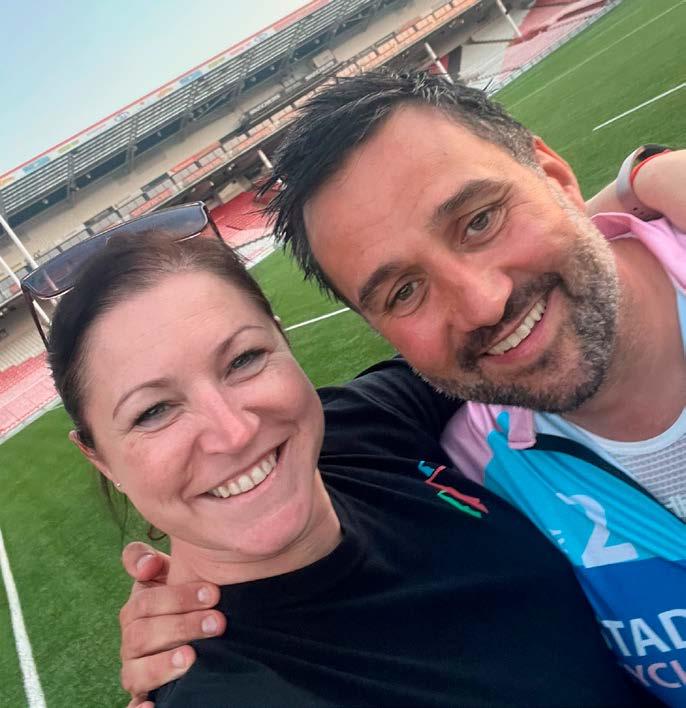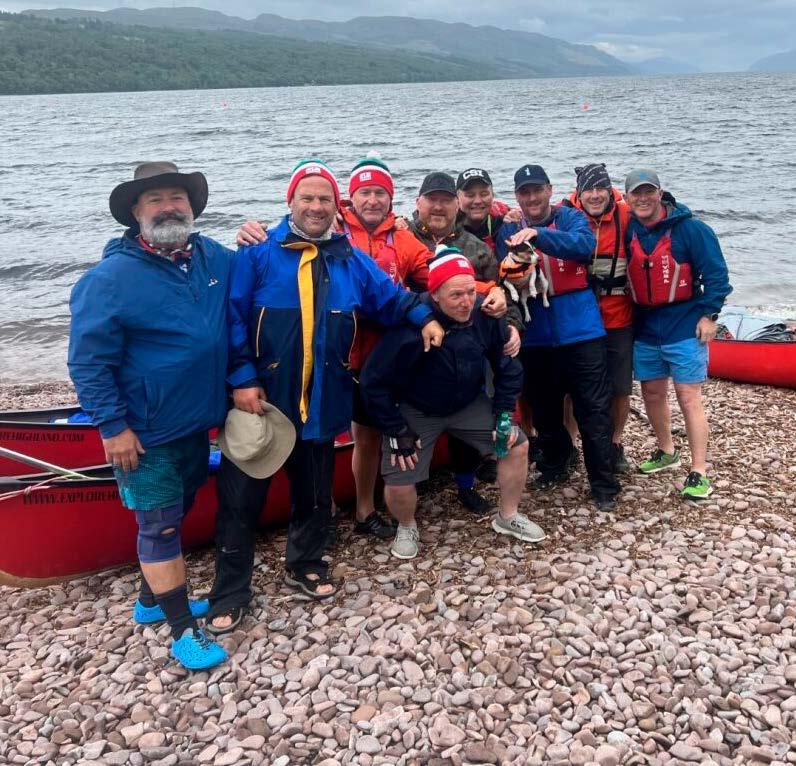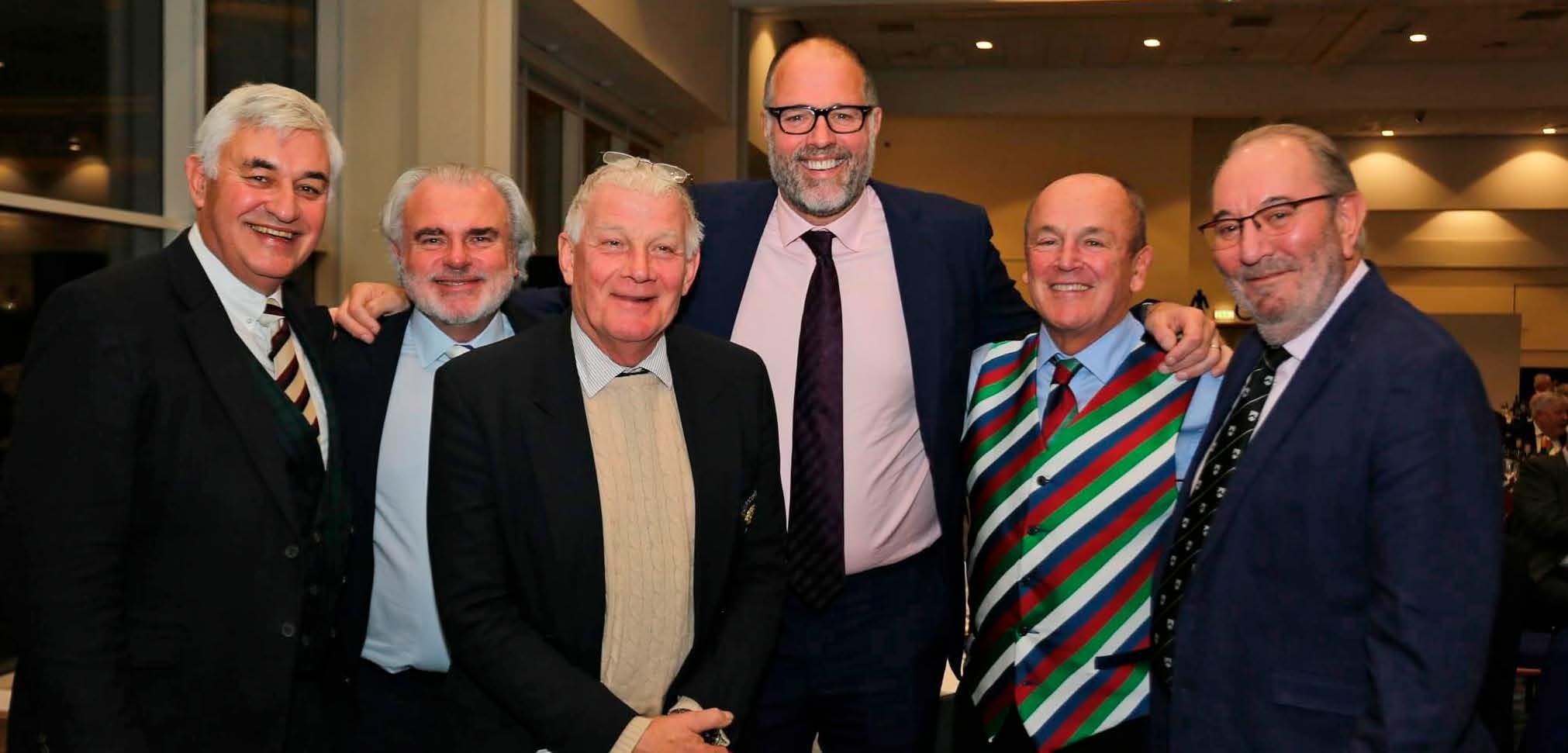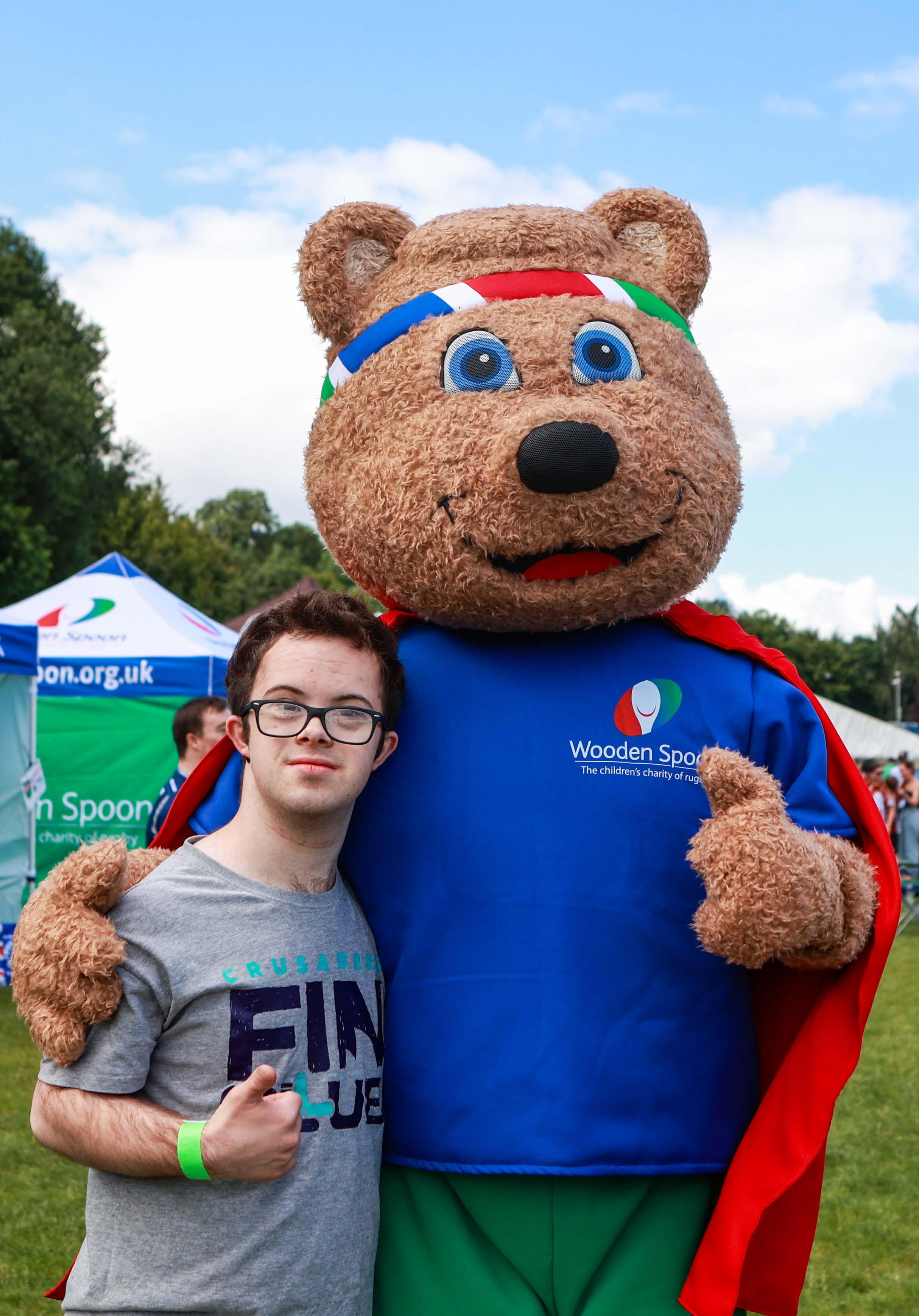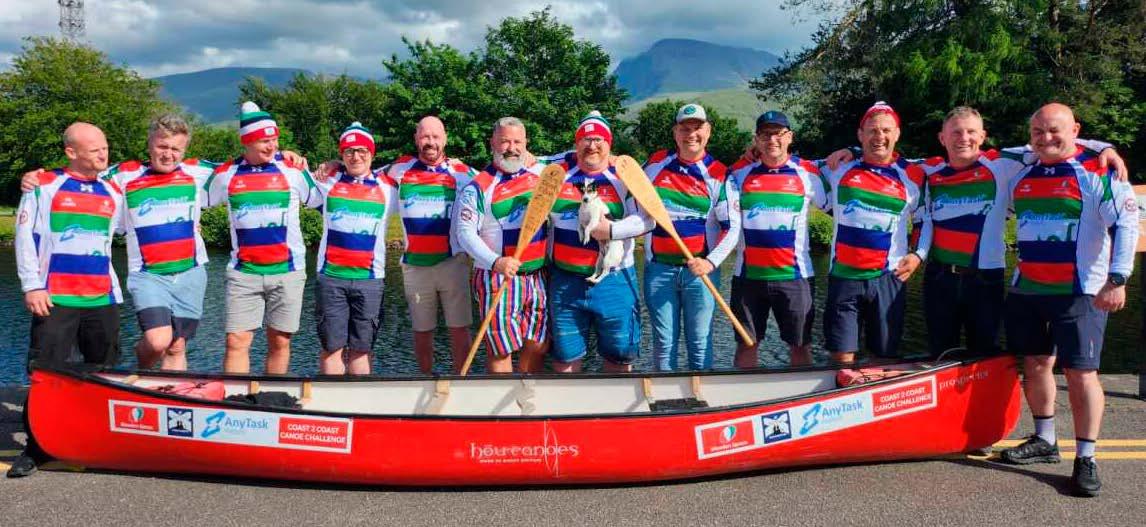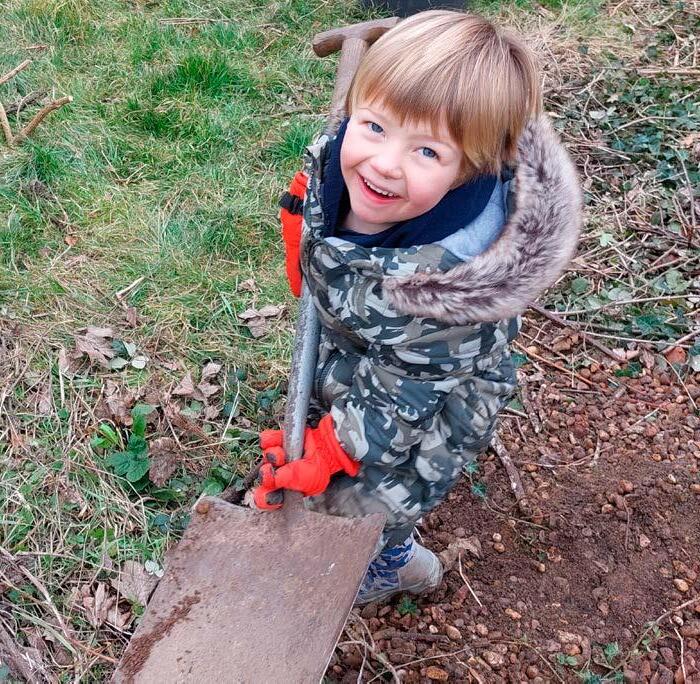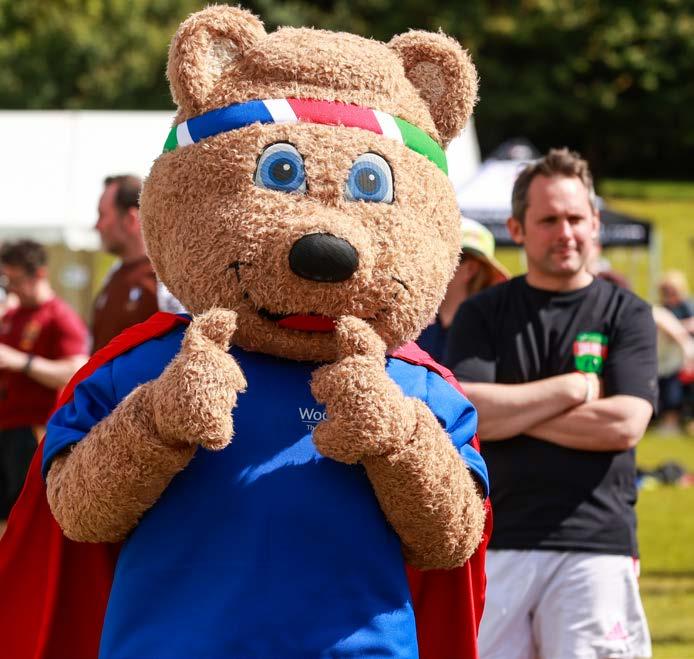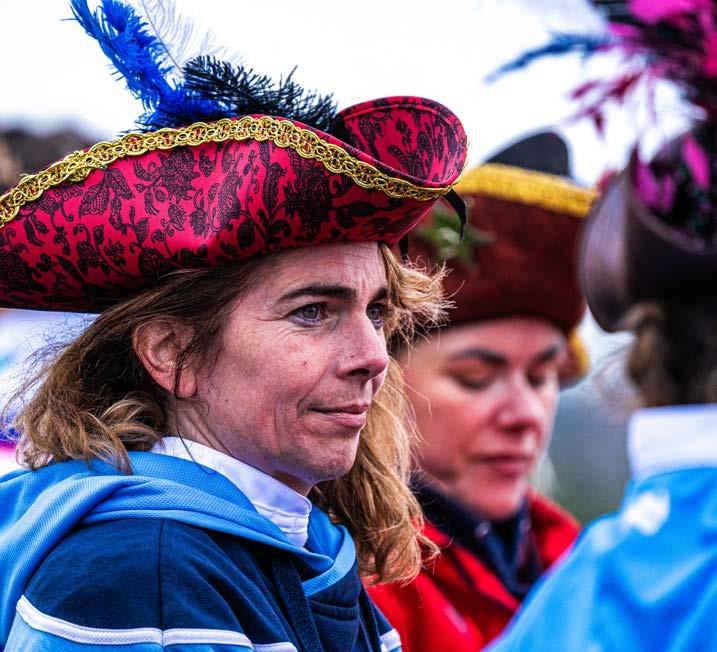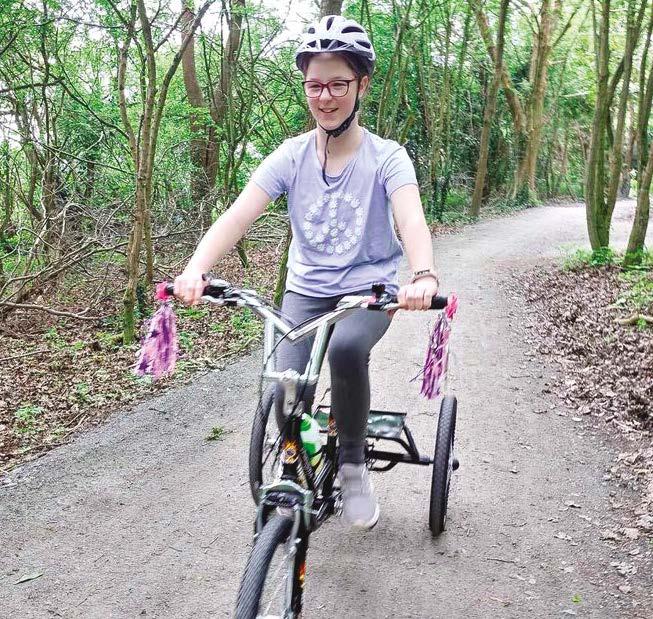
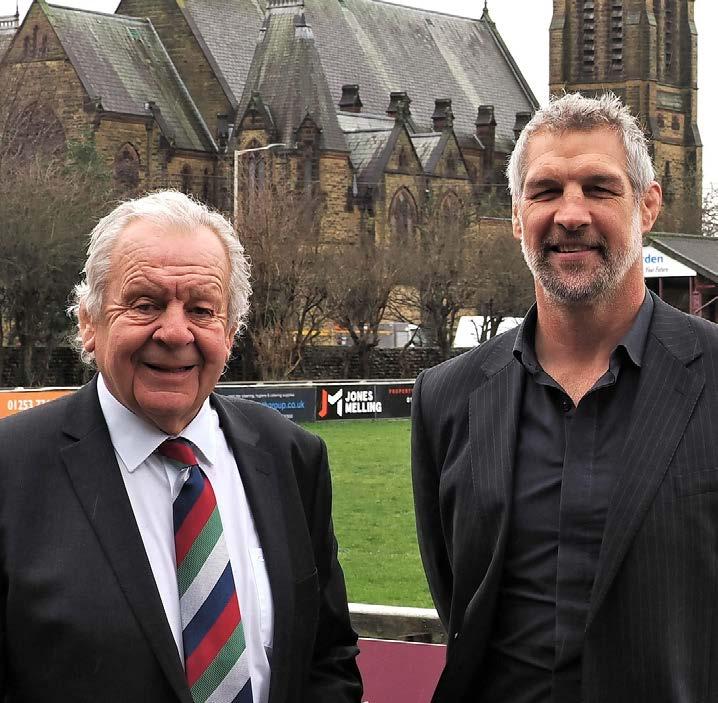

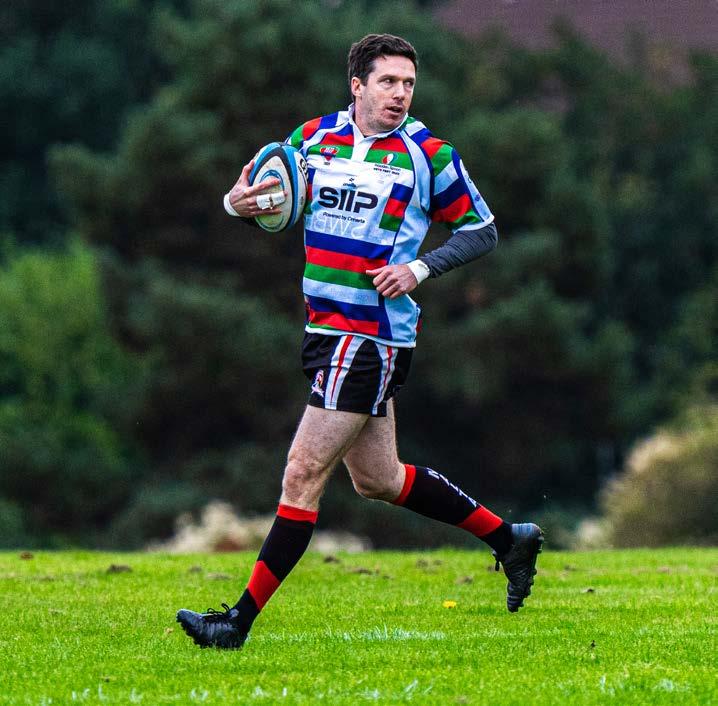
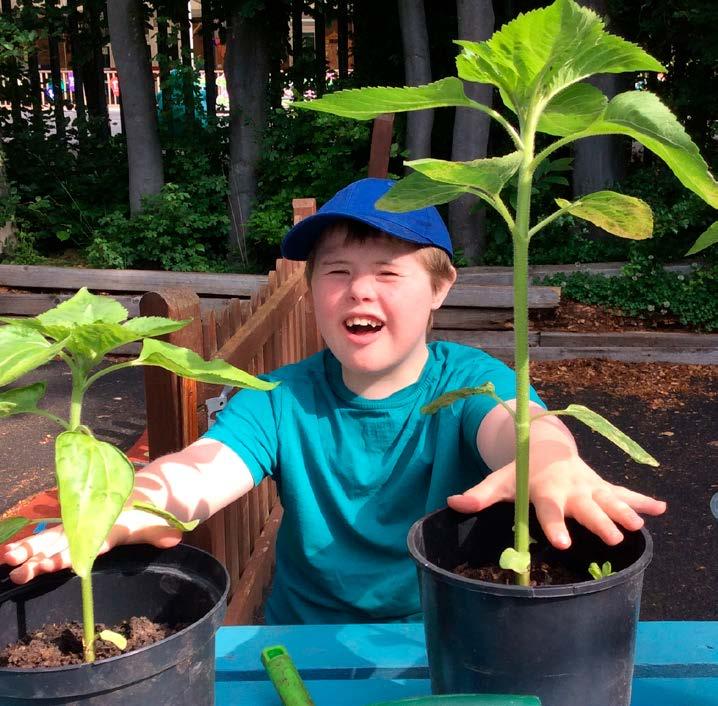
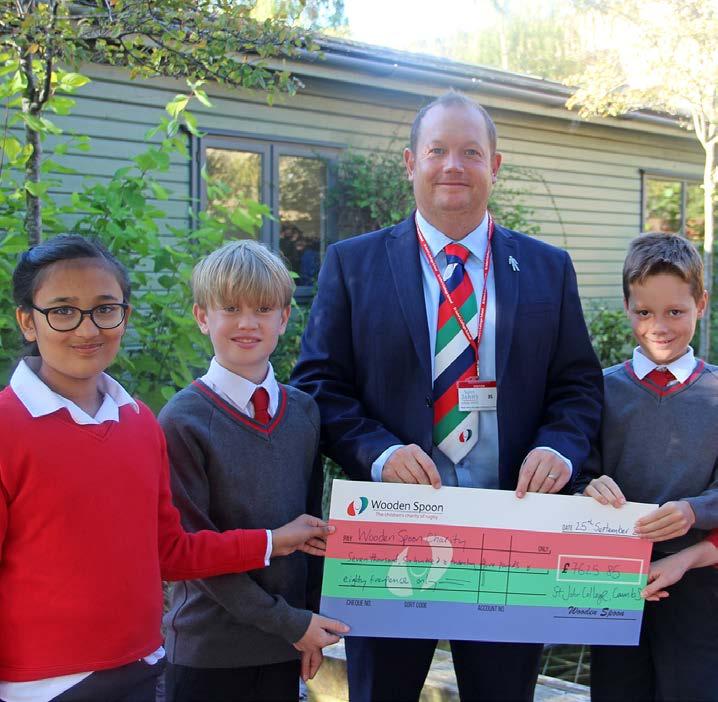
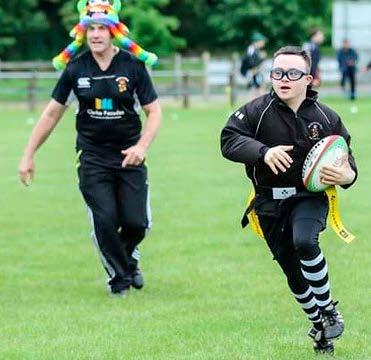
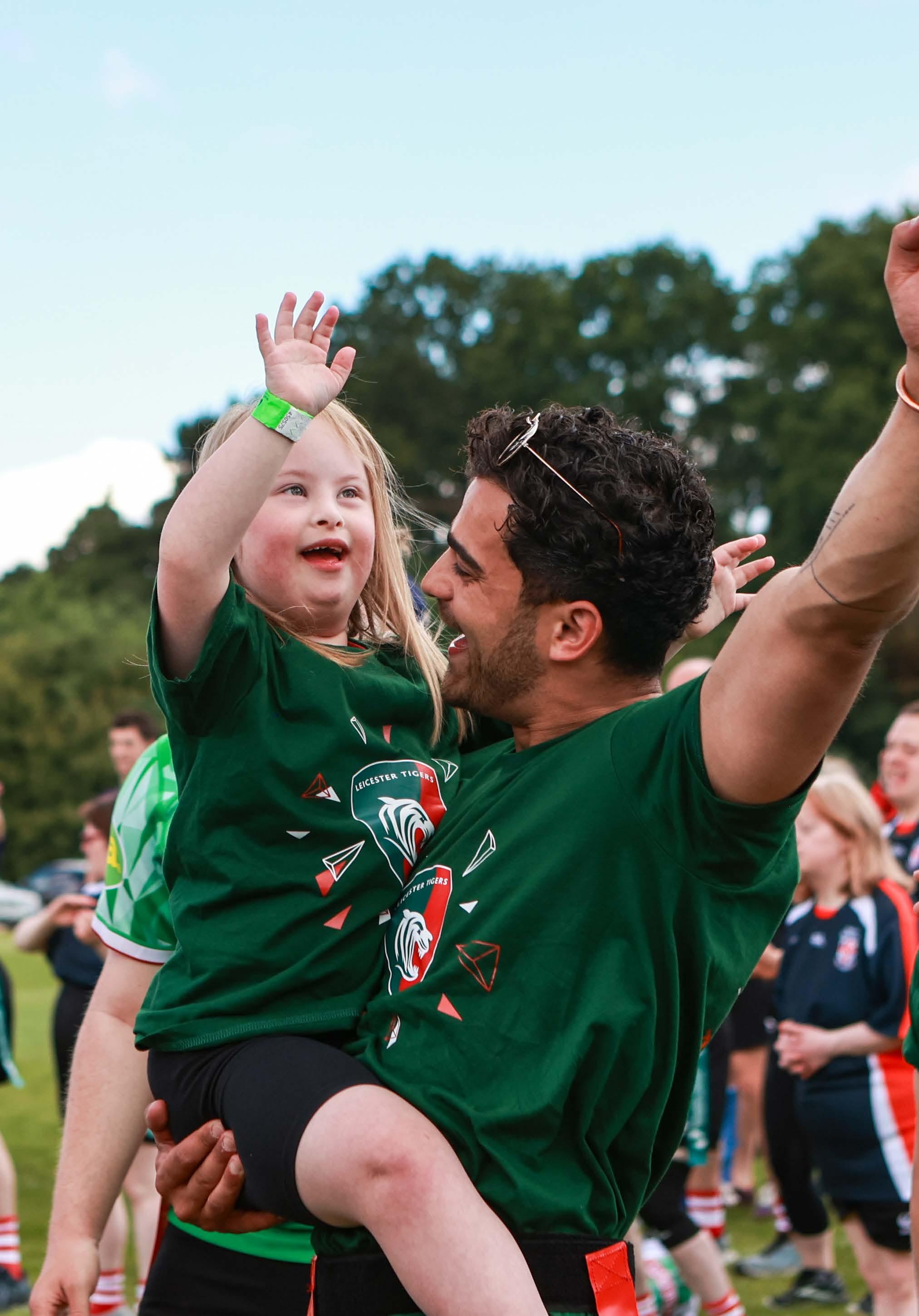
“Together, we are making a profound impact on the lives of children and young people through the power of rugby.”

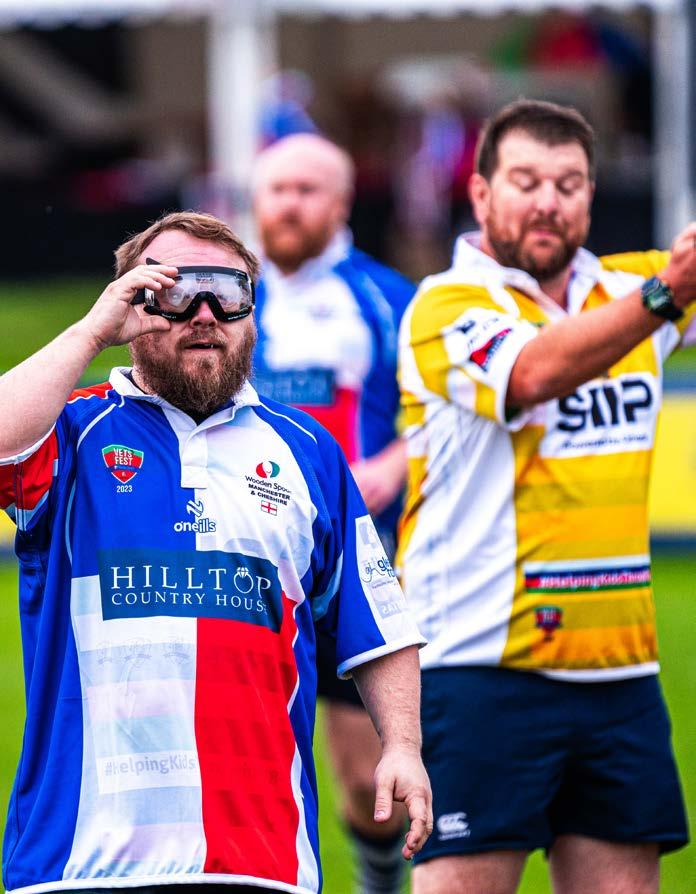
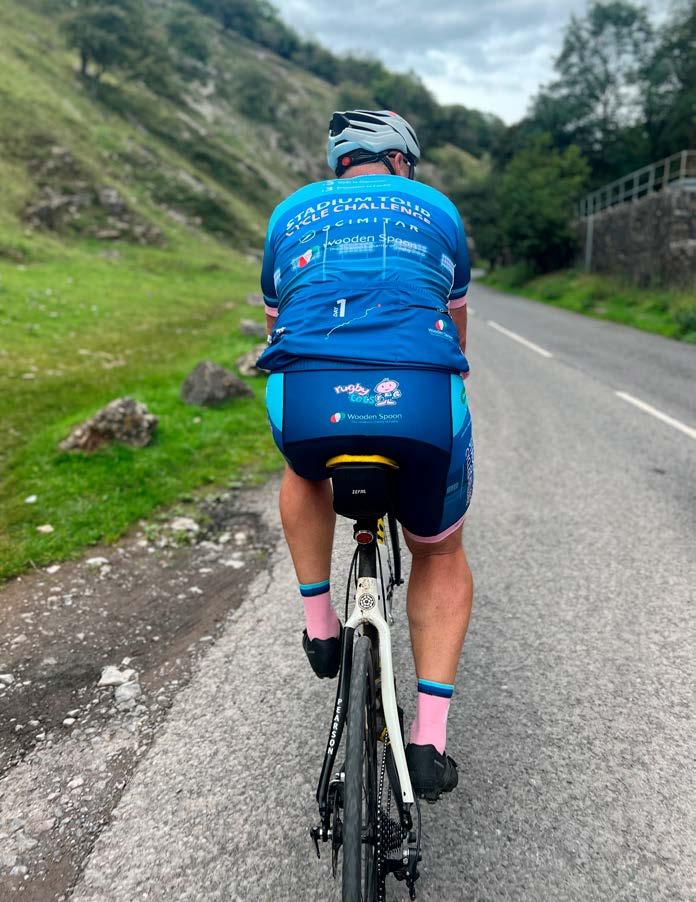










“Together, we are making a profound impact on the lives of children and young people through the power of rugby.”




Having completed its first 40 years of activity, Wooden Spoon is surging ahead – there is no complacency or relaxation of purpose to successfully serve an expanding community of beneficiaries, volunteers, donors and supporters. To do so, it has continued to evolve, develop and improve. The most recent period, covered by this report, has seen it do so exponentially through expansion of the Trustee Board, with an even wider network and additional skillsets, and key executive appointments to deliver a thorough strategic review and achieve even greater impact. Wooden Spoon is now entering another exciting period of growth from which ever more children and young people will benefit.
There is detail of the strategic review in this report. In summary, it has addressed the key areas of income generation, support for beneficiaries, community engagement and governance. With its 40 years of experience, and tracked record, the review has been forensic and converted into a pragmatic, co-ordinated, deliverable, plan. Its implementation is, as always with Wooden Spoon, open and inclusive with the mission “to positively transform the lives of vulnerable children and young people through the power of rugby”.
Ultimately success is measured by funding effective projects across the UK and Ireland, increasing reach, depth and variety. Wooden Spoon’s regional structure, with the fact that funds raised in a region will be spent by that region, acknowledges and respects the invaluable contribution to their communities of Wooden Spoon’s members, volunteers and supporters. Additional funds are also generated by the work of the national executive. The process of prudent funding relies on skilled due diligence, the expertise of project inspectors and the thoroughness of the executive and Trustees. Wooden Spoon has a tremendous record of funding projects, with open mindedness, which prove to be durable and longstanding.
Wooden Spoon has rugby as its “DNA”. Formed following the Ireland v England match in March 1983, at the end of the (then) Five Nations, it has been grown by those who love the game with commitment to its values. Today, Wooden Spoon is proud of its expanding Partner Club programme, its relationships with the Home Nations’ governing bodies, Premiership Rugby and as a nominated charity of the British and Irish Lions the pinnacle of rugby’s collaboration. It welcomes opportunities to engage with other charities and community operations to share, support and learn from.
Hope you enjoy the report. Visit the website for further information. Feel free to comment and please join us!

Quentin Smith Chair

As we complete our 40th year celebrations we are full steam ahead planning our ‘second half ’. It will come as no surprise that I continue to feel honoured and privileged to be at the helm of this incredible charity. I am reminded on a daily basis that as a team we can achieve great things for the children and young people who need it most across the UK & Ireland.
Our partnership with the British & Irish Lions mirrors our values and ethos bringing together the best of the best from across England, Ireland, Scotland and Wales. This is echoed by the representation of our regional volunteers, trustees, supporters, donors, players and staff team. It is our people who the key to our successes.
Imagine putting your body and mind through gruelling pain and commitment to raise money for children you may never meet, to improve their standard of living, opportunities and life chances. How grateful I am that we have an army of these heroes.
Our partnership with Young’s Pubs has been renewed which has been like welcoming an old family friend back to the charity. Working with their team has been refreshing and inspirational. Their army of pubs, restaurants and hotels plus the beating heart at their HQ raised over £200,000 for Wooden Spoon and specified initiatives – School of Hard Knocks, Maddy’s Mark, Dogs For Good, Pass the Plate and Wheelchair Rugby.
Our ever-growing Vets community continues to increase fundraising and introduces more volunteers back into our Regional Committees. Our volunteers are our life blood and ensuring that they are well supported, nurtured and have a well engaged pipeline of committee members is imperative.
During the last 12 months we have worked on a campaign raising funds and awareness for the Disability Tag rugby community across the UK and Ireland. This has taken off and we are seeing a huge amount of support to enable children and young people to have a regular tournament that they can take part in each year.
As we look ahead we are all concentrating on the implementation of our Strategic review to elevate the charity again into a new phase where we are more ambitious than ever with the projects that we fund and the children that we help.
Together, we are making a profound impact on the lives of children and young people through the power of rugby.

Sarah Webb, CEO Wooden Spoon

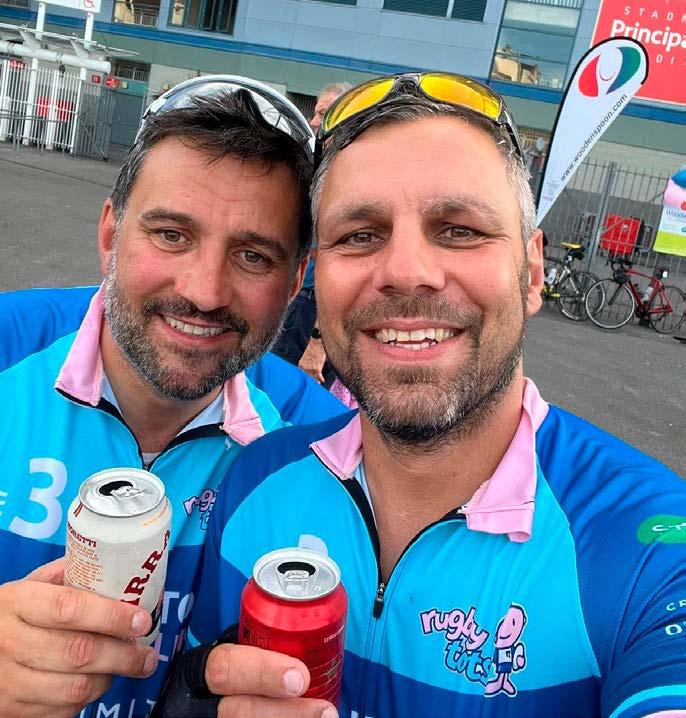
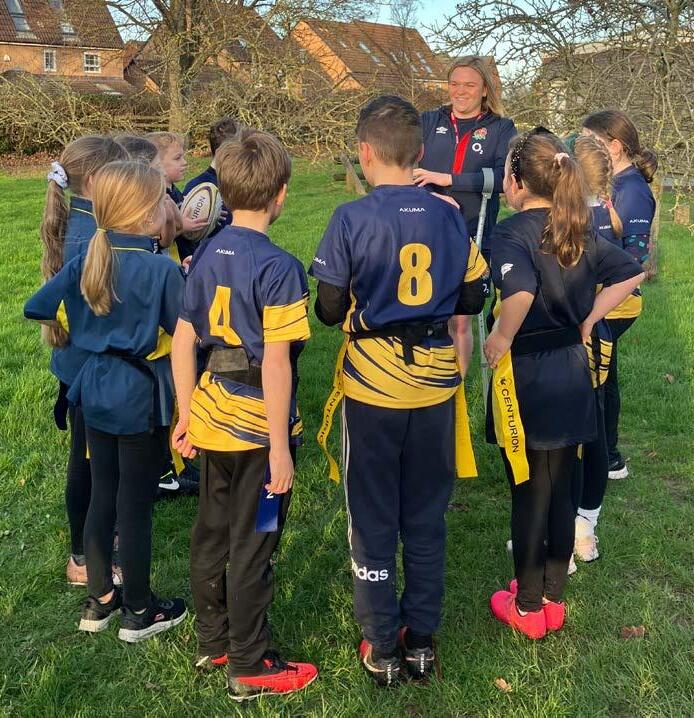
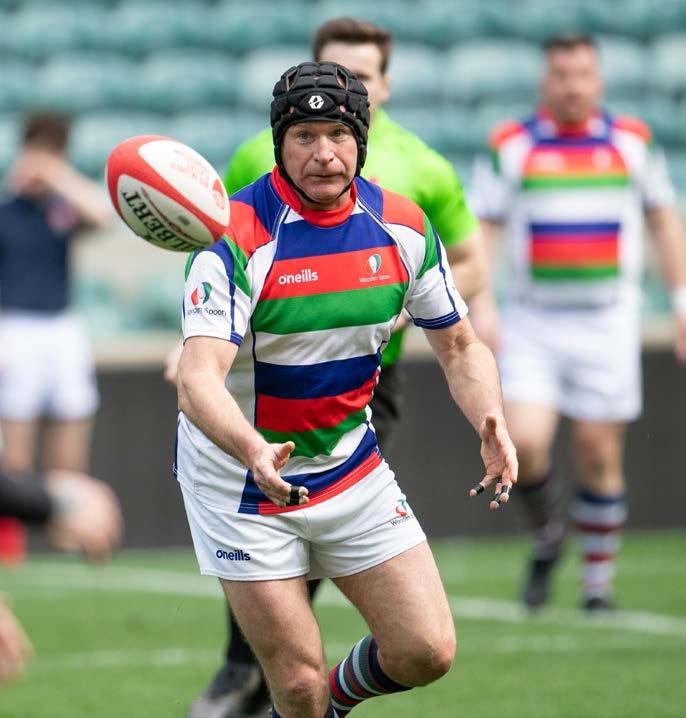
Through the power of rugby, every child and young person has access to the best life opportunities, no matter what their background.
To positively transform the lives of vulnerable children and young people through the power of rugby.
Fun
Passion
Teamwork
Integrity
Wooden Spoon is the children’s charity of rugby. We are a grant making charity and fund life-changing projects across the UK & Ireland.
We have a national footprint, but the largest part of our income is raised by local volunteers. Our aim is that every penny that our volunteers raise is spent in their local communities.

We have a rigorous project application process to ensure that all grant applications meet our robust funding criteria whilst meeting the evolving needs of children and young people with disabilities or facing disadvantage.
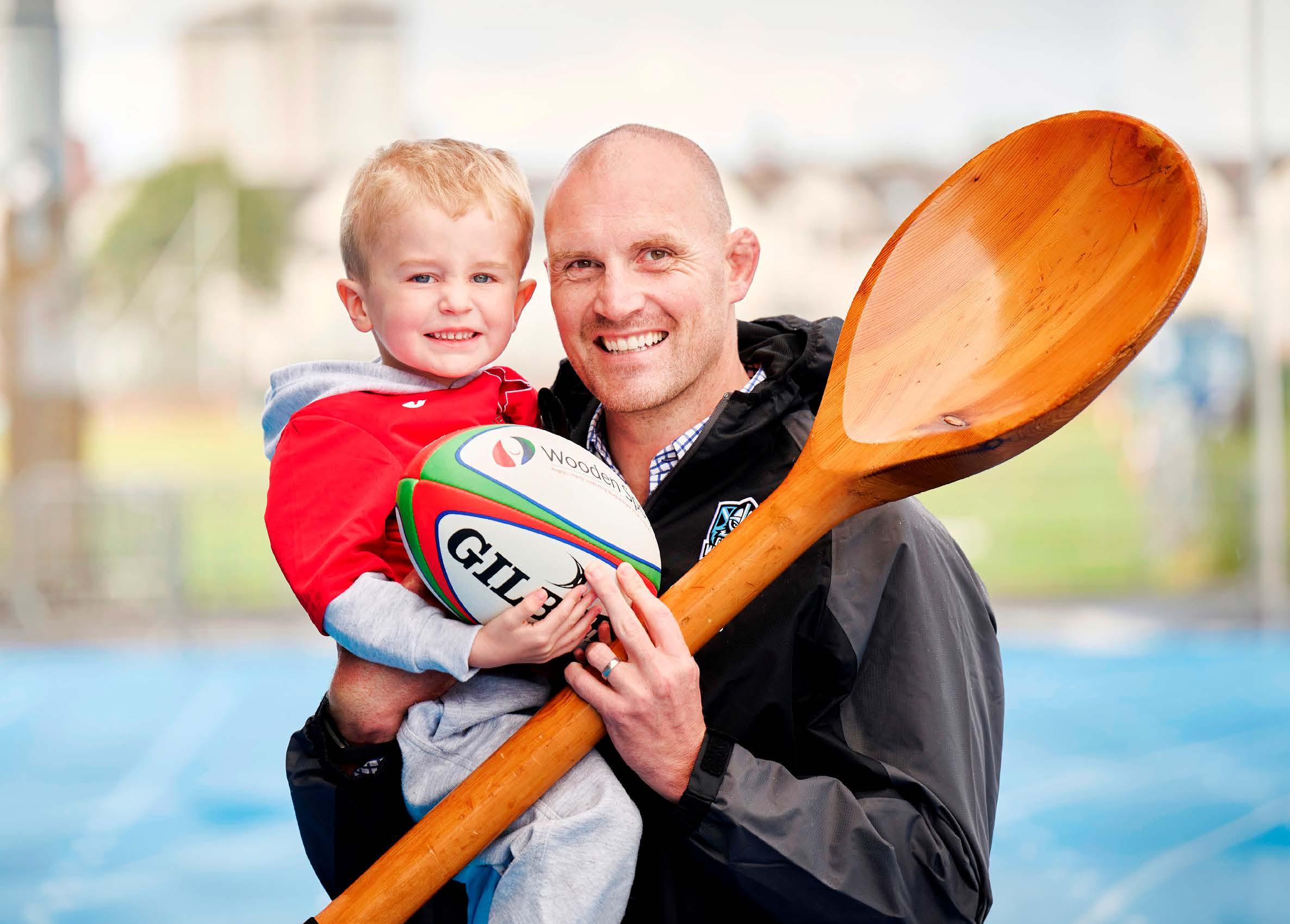
Wooden Spoon allocates funds to support its charitable mission:
“Our objective is to positively impact the lives of children and young people through our dedication to high-quality charitable initiatives.”
To qualify for funding, projects must aim to enhance and support the lives of children and young people (under 25 years old or those with a cognitive age under 25) who face physical, mental, or social challenges.
Eligible projects must directly engage with children and young people, offering activities or services that positively influence their lives. Beneficiaries of the grant should be located in the UK or Ireland
Organisations seeking funding must demonstrate the implementation of policies that safeguard and promote the well-being and development of children and young people in their care. Additionally, proof of financial stability is required. All projects must agree to provide clear information on the impact of the grant two and five years after completion, ensuring transparency and accountability.
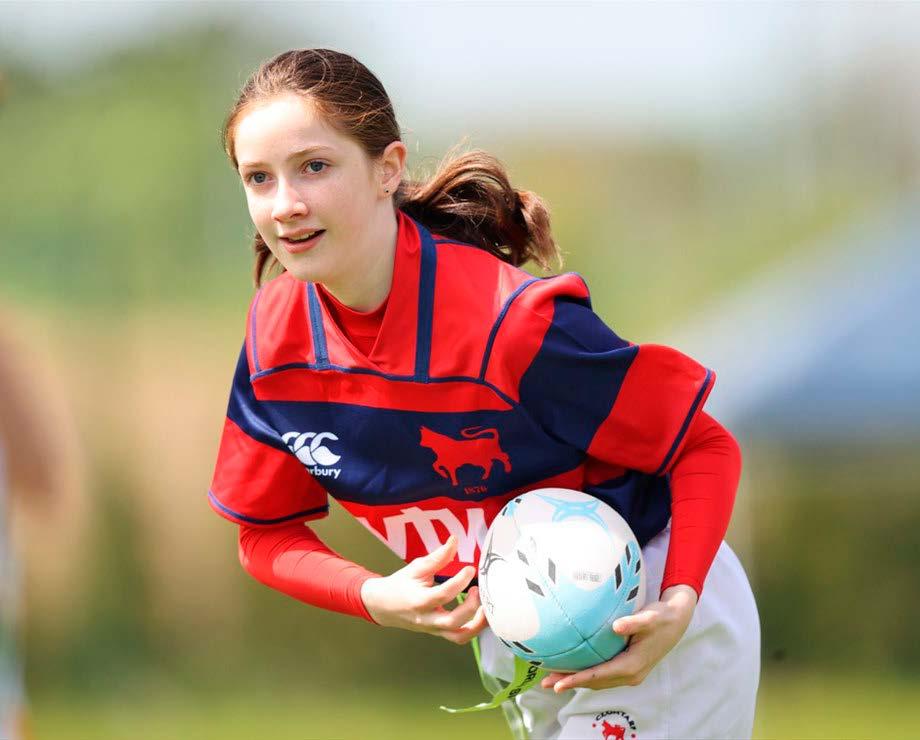
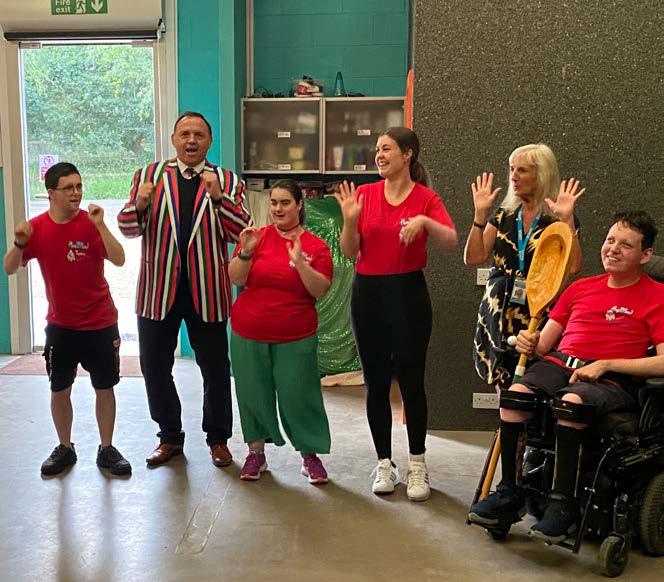
66% OF UK FAMILIES say the cost-of-living crisis had negatively impacted their family

20% OF CHILDREN in
have a
mental health disorder
30% OF
are living in poverty
11% OF CHILDREN in the UK have a disability
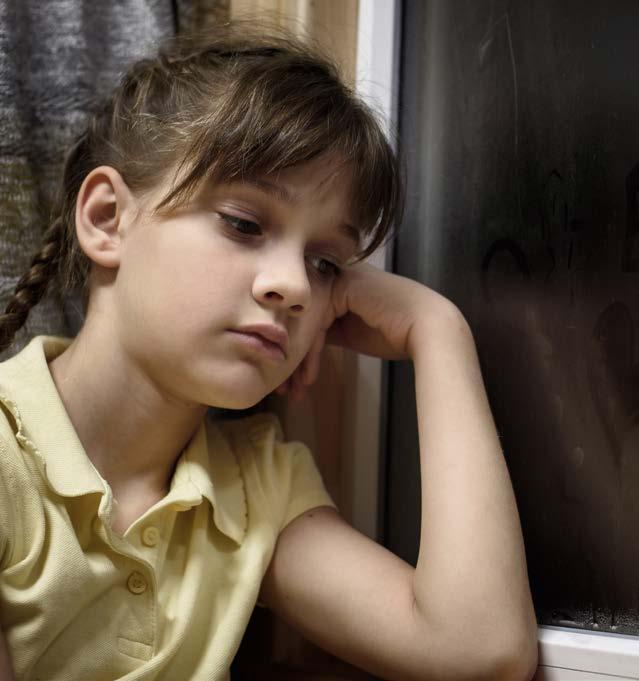
99,000 FAMILIES in the UK are caring for seriously ill children
with a diagnosable mental health condition get access to NHS care and treatment

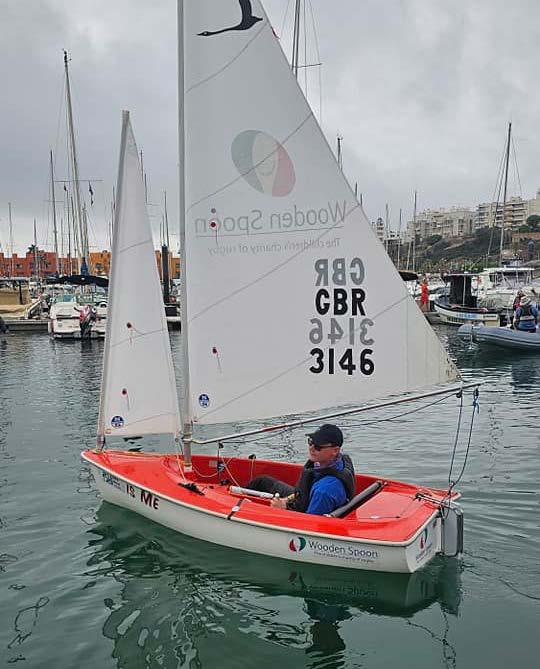

£1,177,281.17
APPROVED FOR PROJECTS
PROJECTS IN 28 REGIONS
89 PROJECTS SUPPORTED
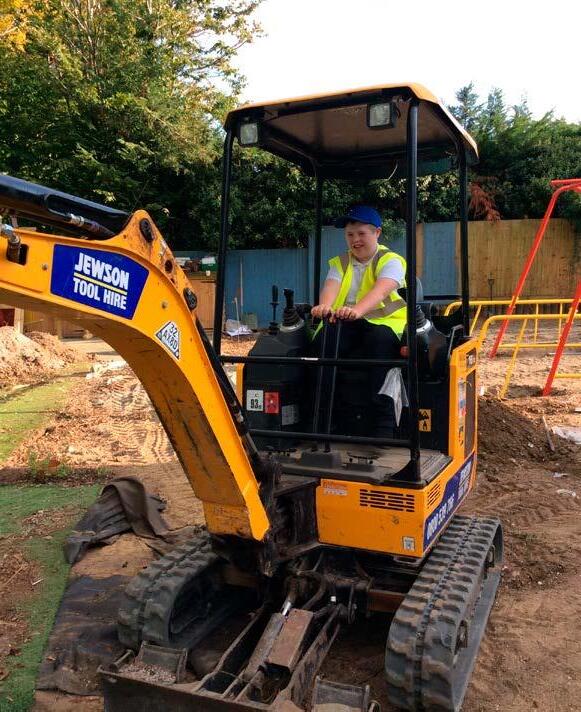
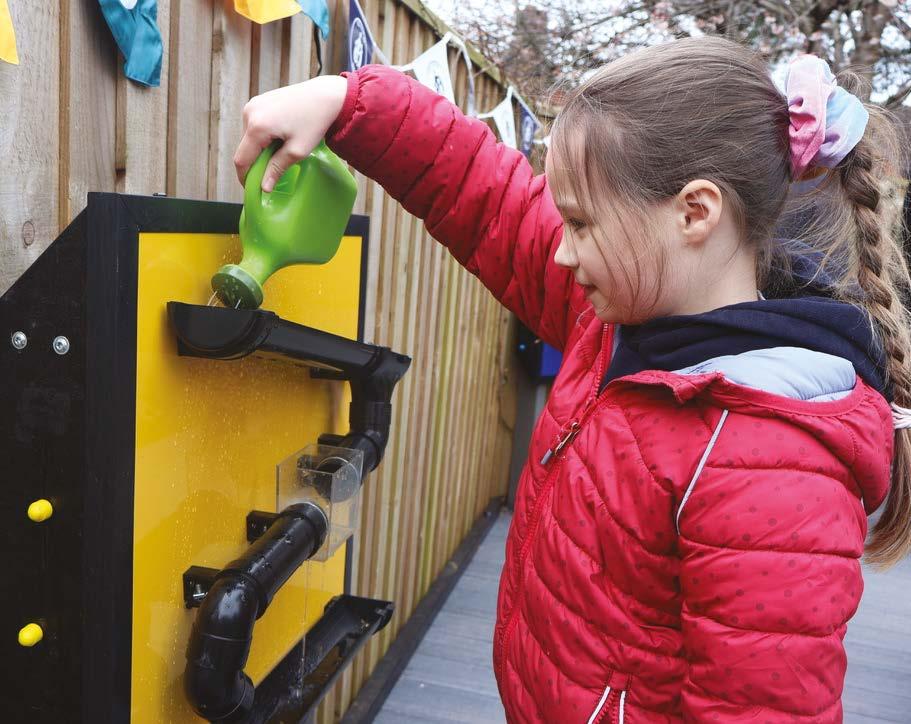
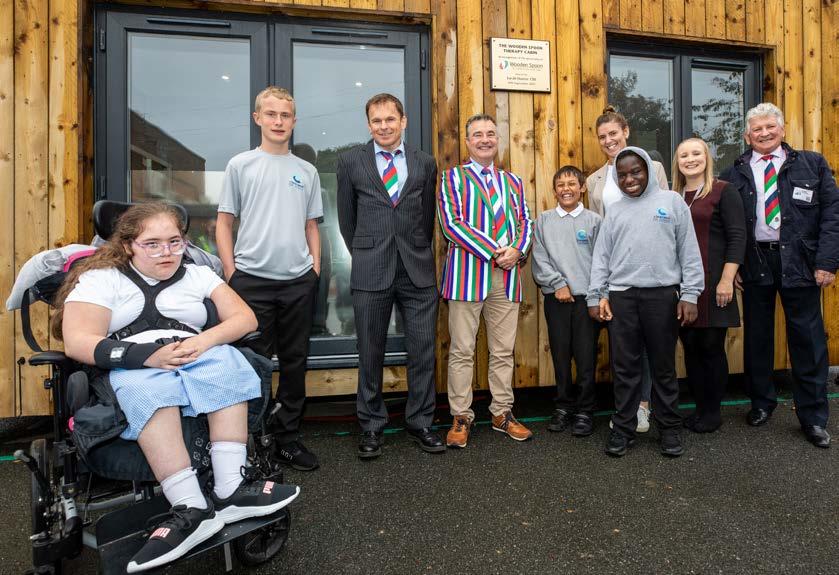
WE HAVE SUPPORTED 38,940 CHILDREN IN ONE YEAR & 194,700 DURING THE LIFE OF THE PROJECT
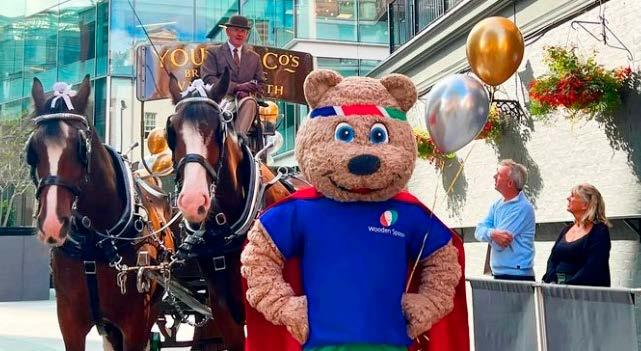
Young’s Pubs raised £200,000
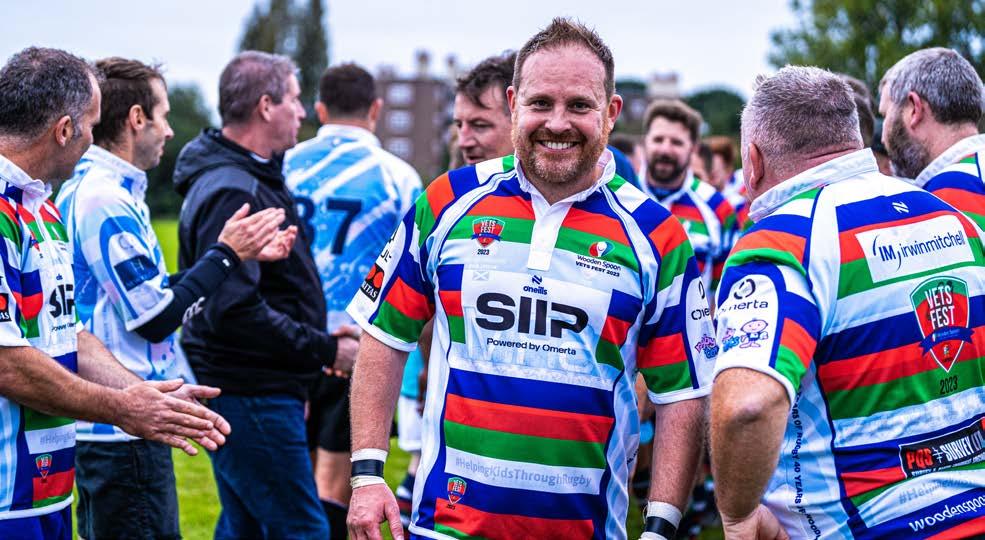
28 teams representing 350 rugby clubs raised £110,000
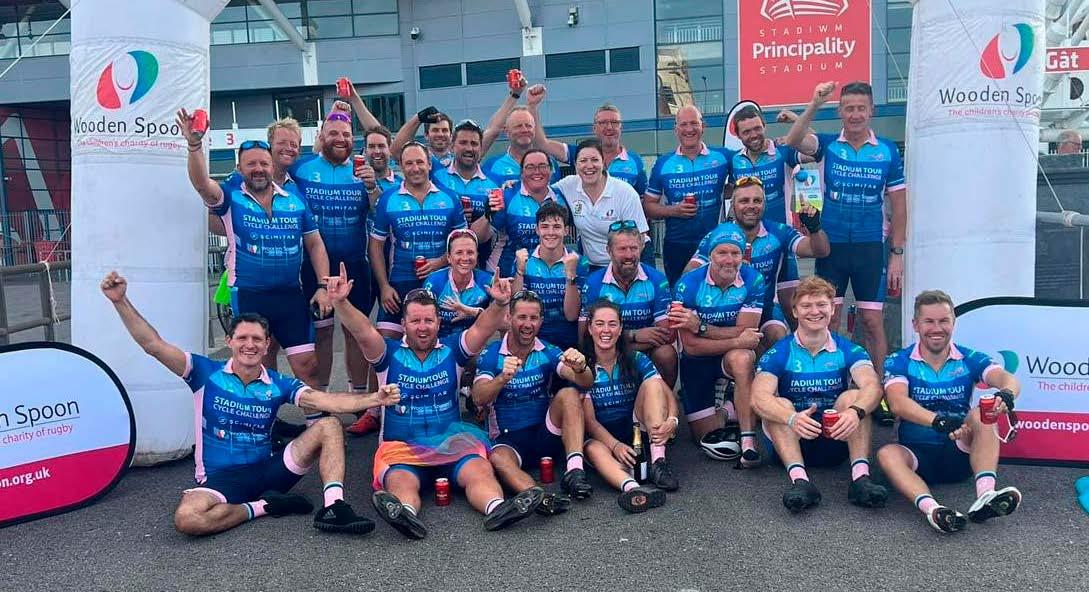
Rugbytots Kids and riders raised £118,000
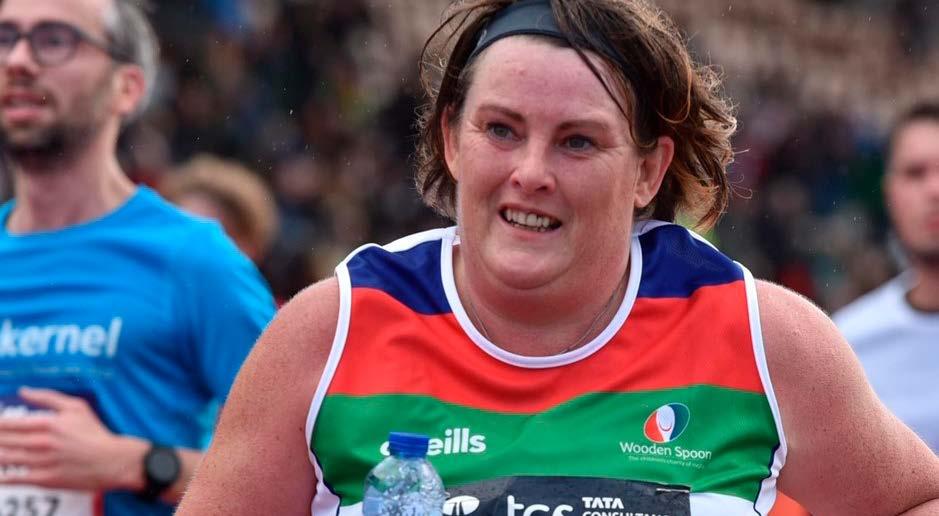
15 runners raised £30,000
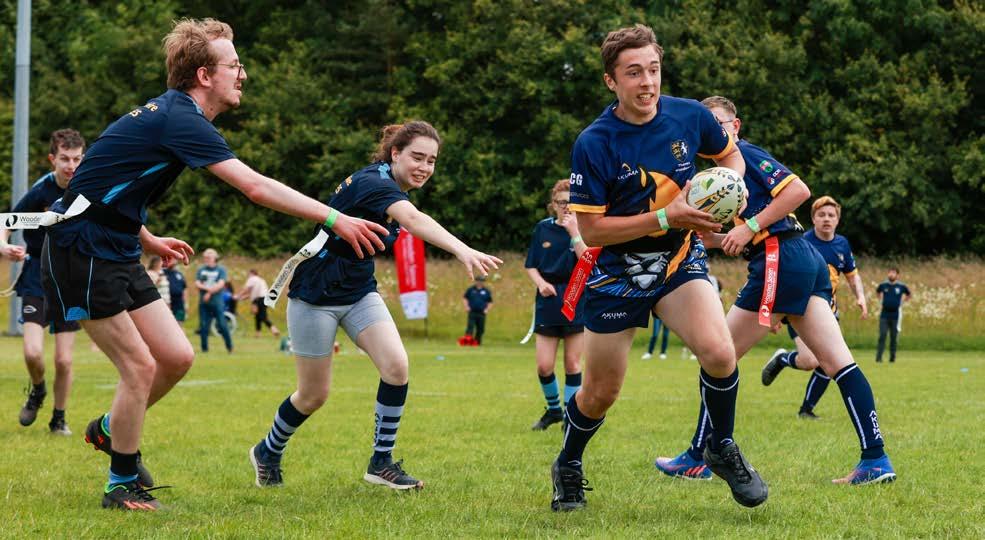
Our appeal raised £18,000 contributing to our £55,000 total

Our corporate and rugby supporters have helped us raise our profile and go above and beyond with our fundraising enabling us to support more children who need our help.
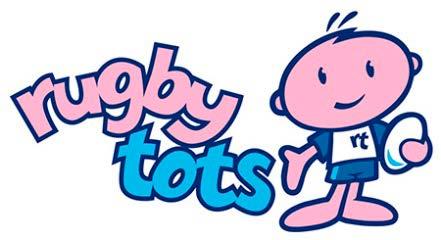

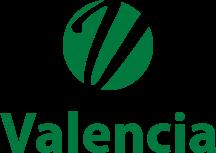


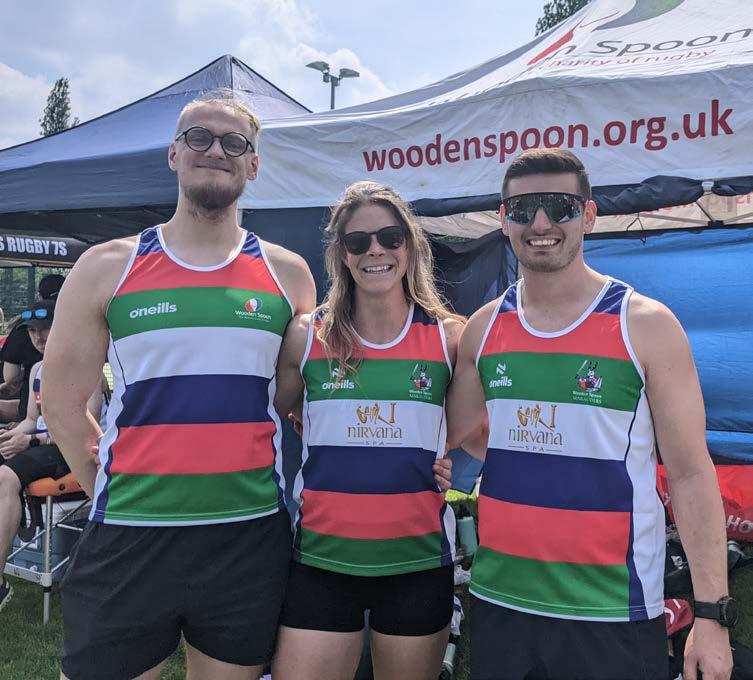

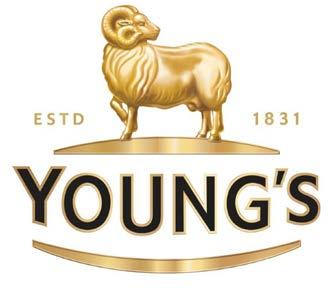

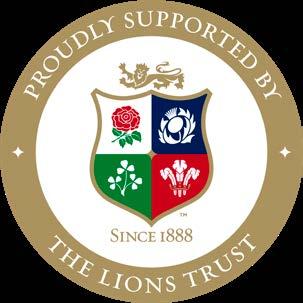


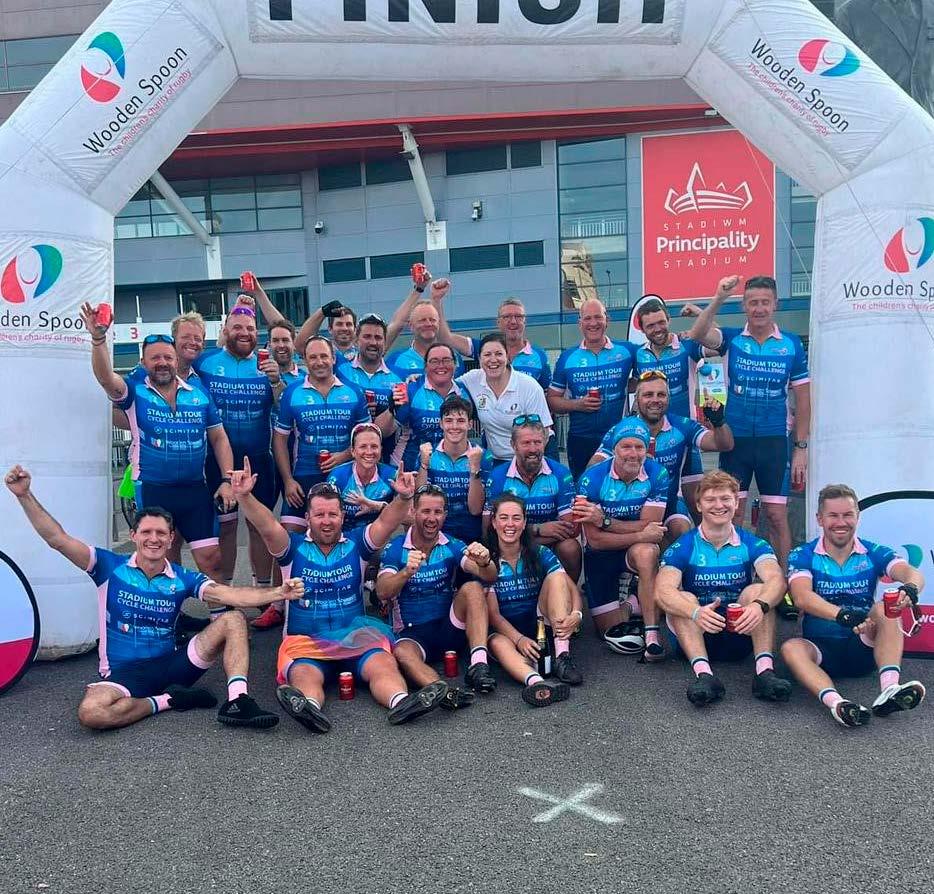
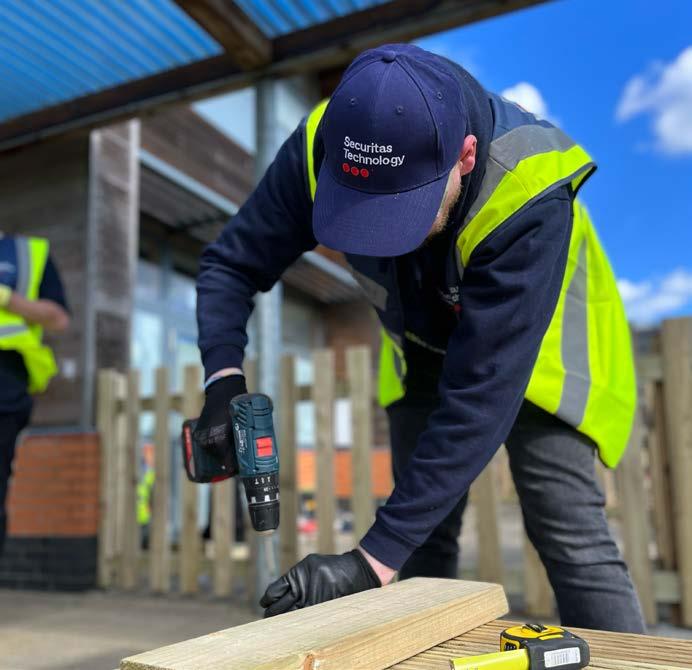



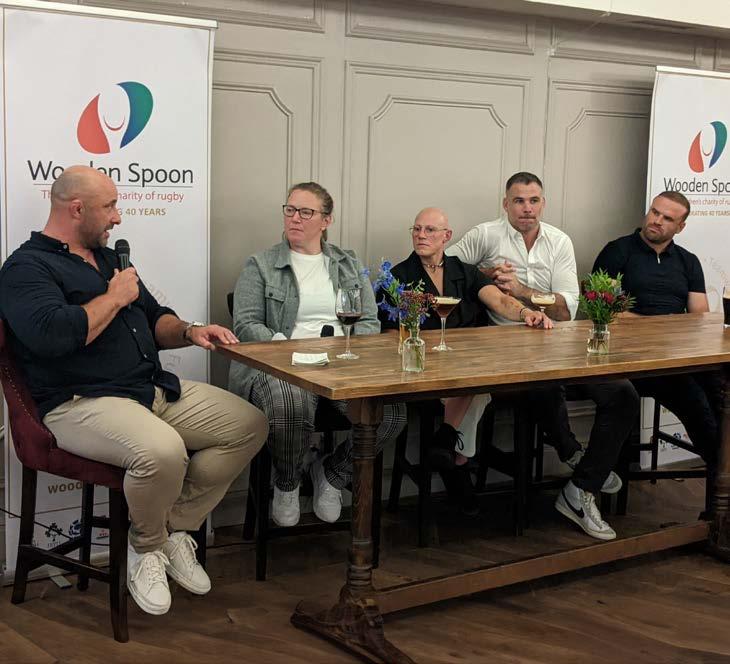
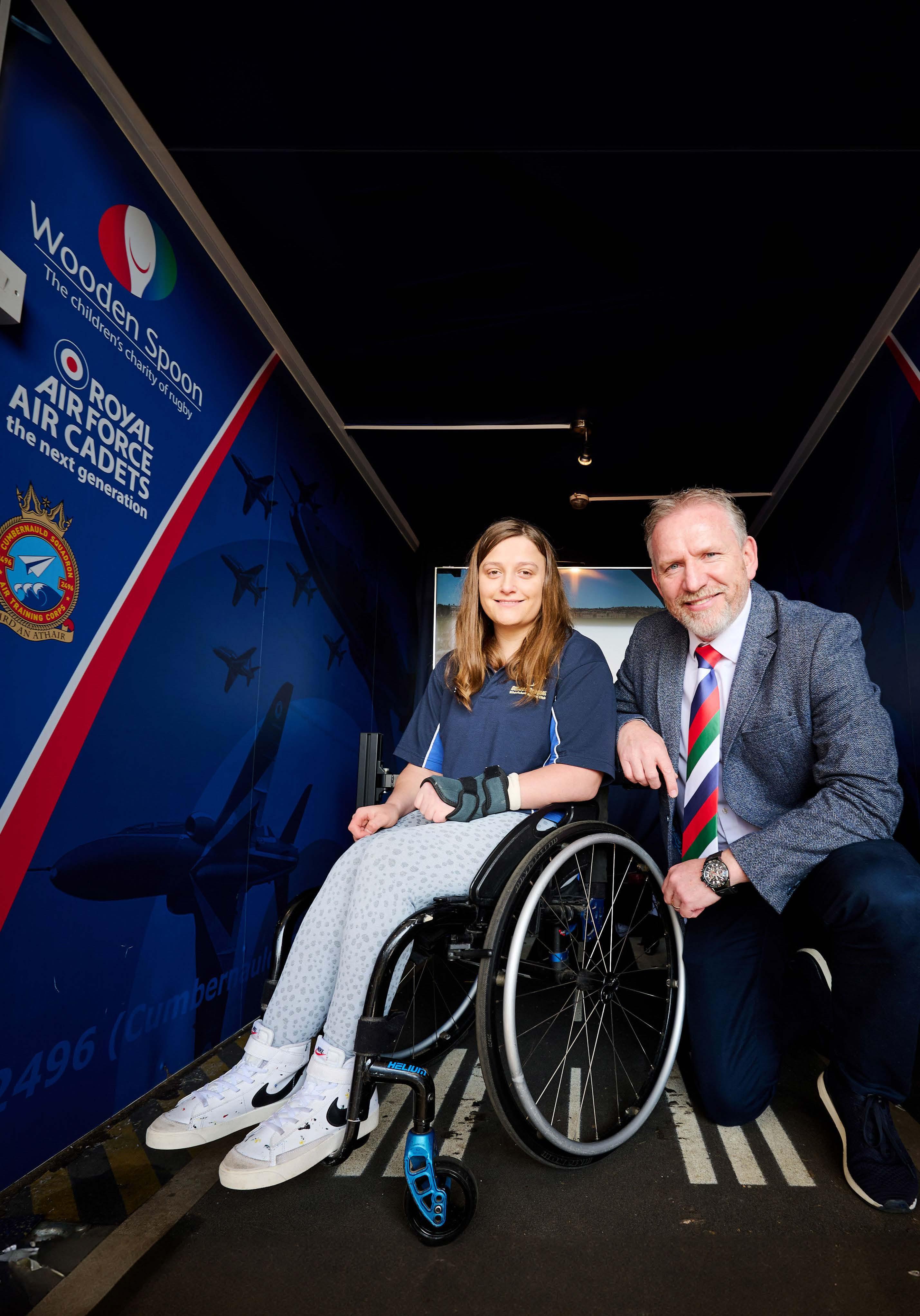
“To achieve our aim of meeting the demand for grants we need to grow our income year on year, trebling our income by the end of our strategic period in 2029.”
To be rugby’s children charity – helping the next 1 million children Wooden Spoon has set a new 5-year strategy which aims to raise our profile and with the support of the rugby community raise the funds necessary to help the next 1 million children over the coming 5 years.
Our strategic vision encompasses four keys area each designed to compliment and mutually reinforce each other.
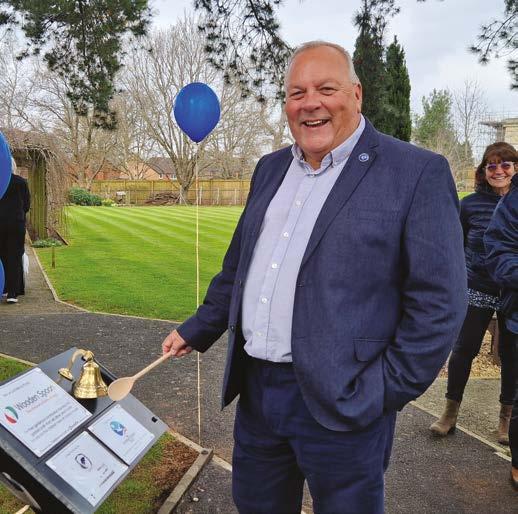
This comprehensive strategy reflects our dedication to making a meaningful difference in the lives of young people through the power of rugby. We are excited about the future and confident that, with the continued support of our members, donors, and volunteers we will achieve our ambitious goals.
Together, we can change lives through the power of rugby.
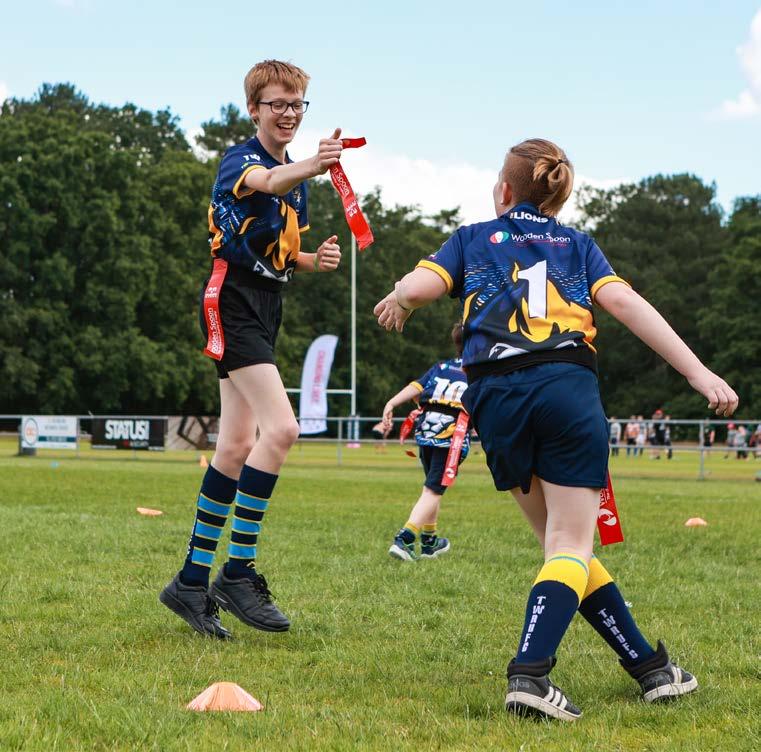
At the heart of our strategy is a commitment to governance that guarantees our operational excellence. We aim to provide unparalleled support to our staff, volunteers, and grant recipients by equipping them with the correct tools and systems. This enables us to demonstrate both our efficiency and our excellence in financial management and overall operational conduct.
Specifically in the next 12 months we will:
Oversight and reporting
Create a suite of topline shareable, transparent organisational metrics to monitor our impact, show our financial performance, compliance, and quality assurance levels.
Digital First
Review and audit our use of digital technology in volunteer support, grant processing and fundraising to develop a roadmap of future investment for the best use of systems and processes to ensure maximum return and best value.
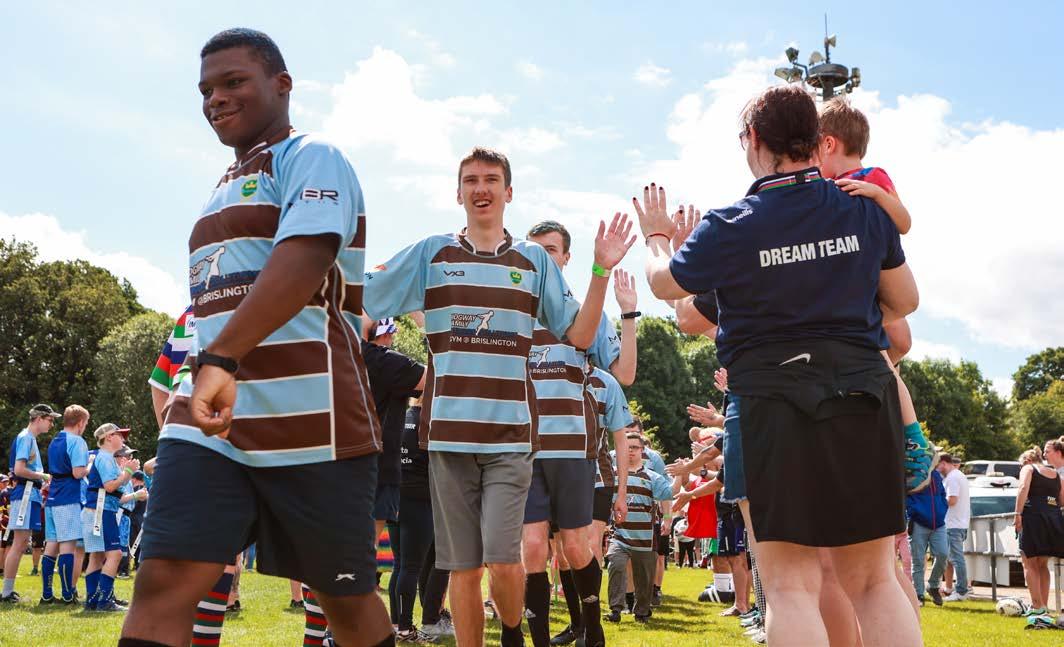
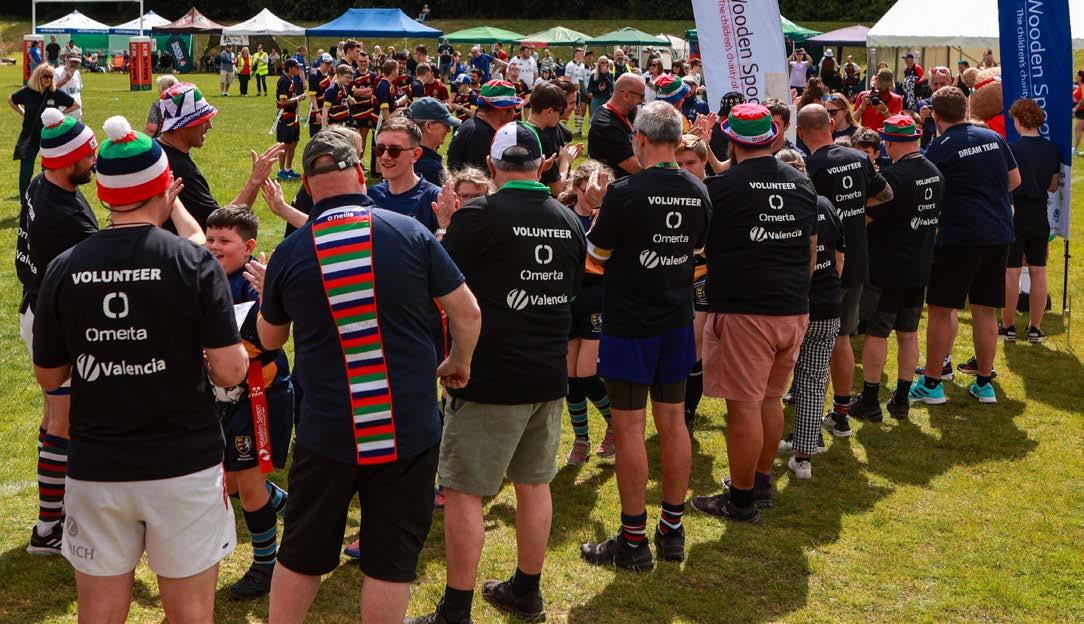
Equality, Diversity, and Inclusion
Alongside the needs assessment and research being carried out by our grants team to ensure that our grants are focussed on where they are most needed we will ensure our charity is welcoming to all – staff, volunteers, and beneficiaries – by setting benchmarks and educating the entire organisation.
Best in class working environment
To enhance our ongoing commitment to volunteers and staff, we will review our volunteer engagement and recognition programs, ensure compliance, and evaluate our pay and award strategy to attract and retain top talent for the charity’s mission.
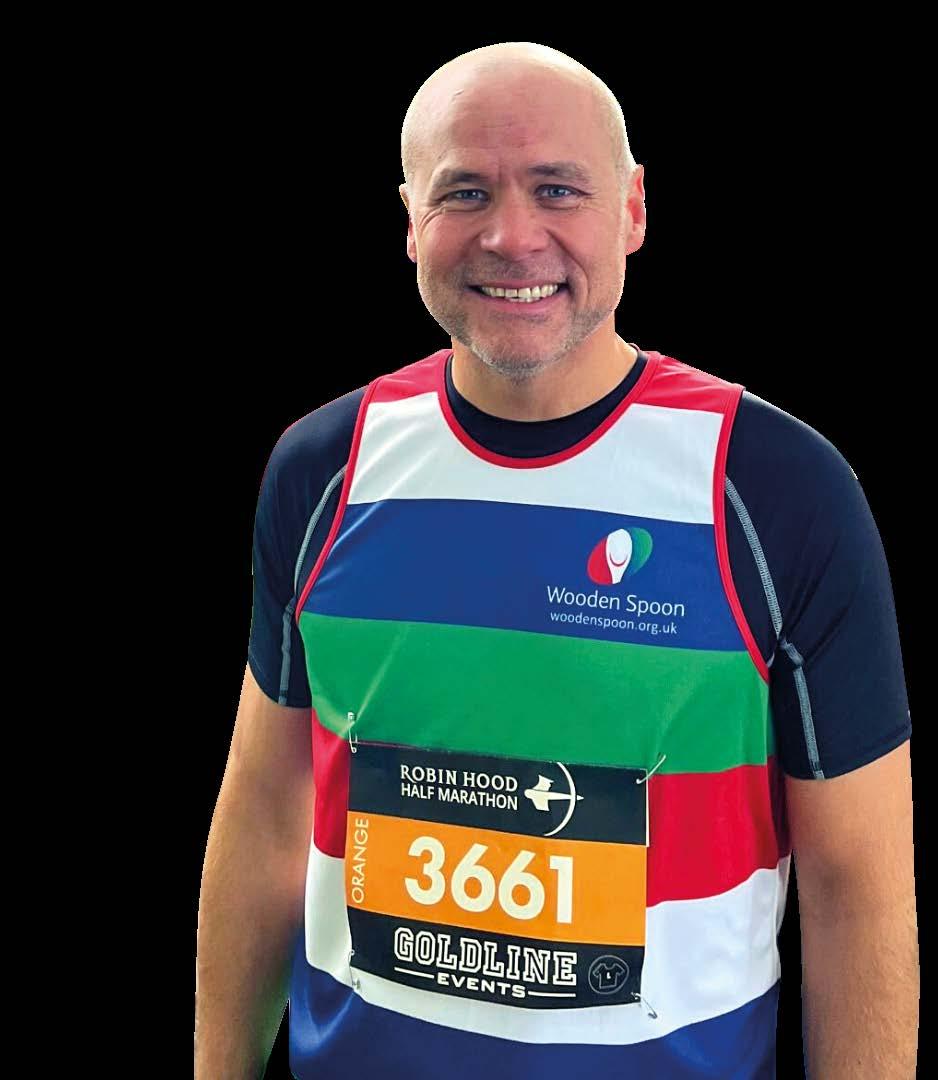
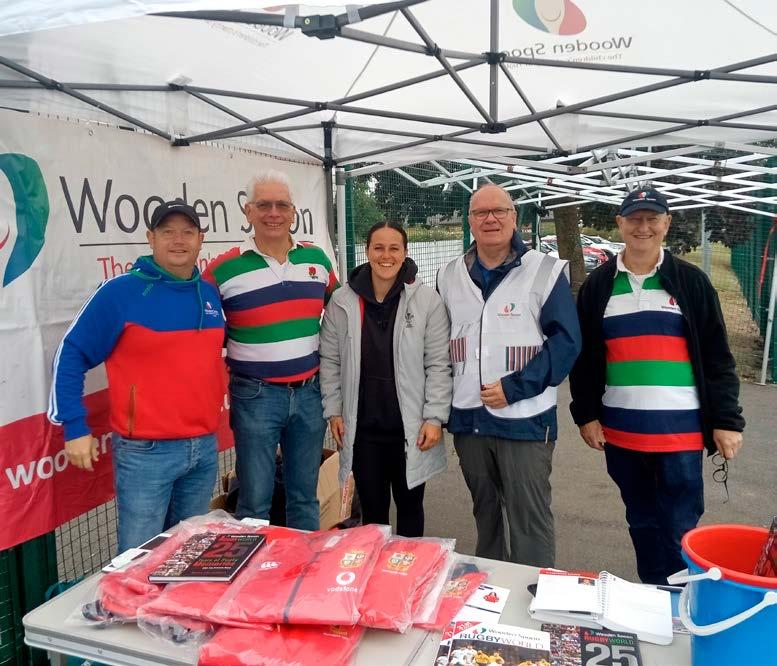
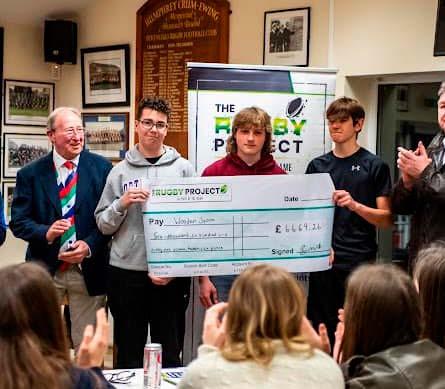
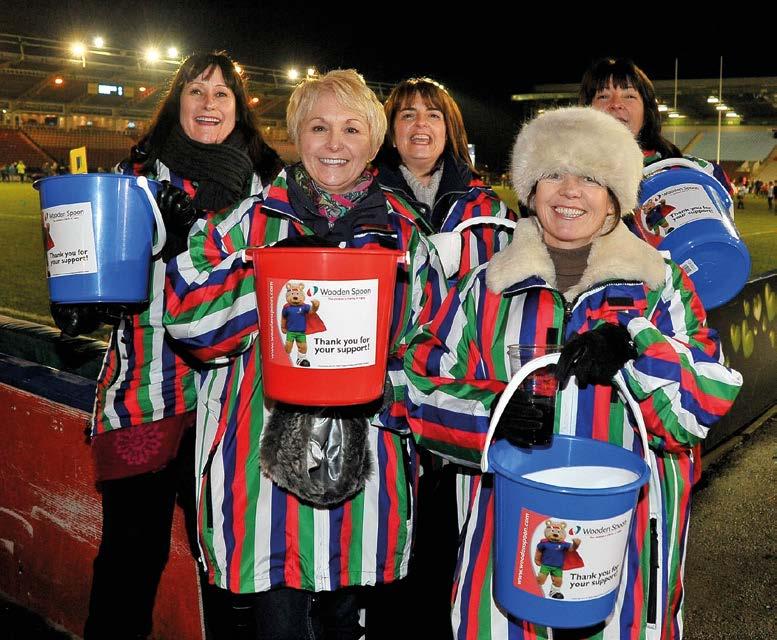
Our aim is to reinforce Wooden Spoon as the authority in raising funds with the rugby community for children and young people. We strive to be known as a trusted and aspirational rugby charity, one that attracts diverse and robust income streams.
To achieve our aim of meeting the demand for grants we need to grow our income year on year, trebling our income by the end of our strategic period in 2029. We will do this by diversifying our income streams, creating fundraising products and platforms for individual and corporate support.
Specifically in the next 12 months we will:
With over 7,500 members, our supporters are vital to the charity. Membership income helps us support our 38 regions, raising over £1 million annually for local communities. We will enhance communication with members, showing how their donations transform lives, maximise Gift Aid collection, and offer rewards and experiences to strengthen our membership proposition.
Many of our supporters have been on the last 40-year journey with us. We will develop a legacy programme for those who are able and wish to continue to support the charity in their memory.
Our research shows that supporters want Individual fundraising challenges like marathons, long-distance bike rides, or coastal treks. We will offer exclusive entries to popular UK and Ireland challenges and provide dedicated resources for fundraising support. Additionally, we will develop a Wooden Spoon mass participation event to galvanise the wider rugby community.
Wooden Spoon benefits from the generous support of many UK and Ireland businesses through employee engagement, fundraising, corporate donations, and sponsorship. We will increase staff resources to promote our sponsorship platforms whether it be supporting our expanding range of Rugby participation festivals or bespoke funding of particular projects and causes.
Last year, we invested in additional support staff to help our 38 regions organise their events – with publicity, auction prizes, and online ticketing. We will continue sharing best practices across the regions, negotiating better rates, and exploring cost-effective online fundraising ideas to bolster regional fundraising. Additionally, we will identify specific causes and projects to fundraise for alongside building our general grant fund.
“With over 7,500 members, our supporters are vital to the charity. Membership income helps us support our 38 regions, raising over £1 million annually for local communities.”
Our aim is to be respected and recognised for our professional expertise in funding projects that significantly impact the lives of children and young people that need it the most. By engaging with experts in health and social care in the field, our goal is to support initiatives that really address the current problems faced by young people and children today.
Specifically in the next 12 months we will:
Research led grant targeting
Children and young people’s needs remain the same as in recent years, but demand for grant funding currently outstrips our supply. New issues include online mental health problems, educational gaps from COVID-19, and the cost-of-living crisis worsening debt and food shortages. We will engage more with beneficiaries and health organisations to better understand needs and adapt our funding criteria to ensure the size and type of grants that we award are the most effective.
Additionally, we will gather insights from authority reports, health assessments, socio-economic data to map needs across the UK and Ireland. This targeted approach ensures our grants address the greatest needs and demonstrates to supporters that Wooden Spoon uses their donations effectively
To ensure funds are used where needed most, we will engage with projects to understand their impact on children and young people. Using surveys, interviews, and digital tools, we will gather and share evidence of outcomes and best practices with other grant applicants, our regions, and supporters, without burdening the projects we support.
Better understanding of needs and impact will enable us to tailor fundraising for specific causes. Alongside our traditional open grant pot, we will create proactive campaigns to focus donors and corporate partners on key projects that might not have generated the required support.
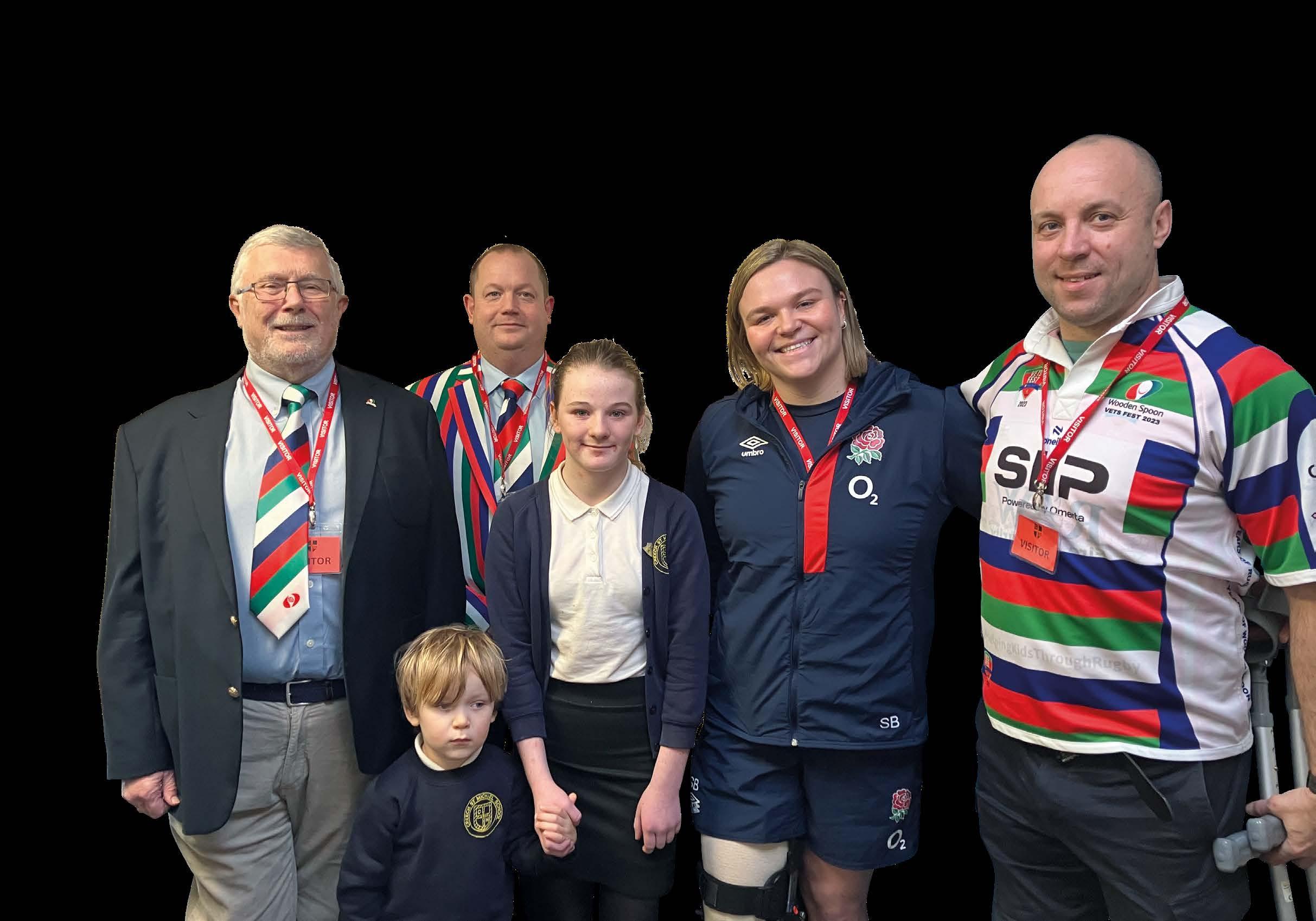
We aim to be the most respected and recognised children’s charity within the rugby community. By deepening our engagement and building stronger connections with communities, we aim to increase our supporter base to attract a wider breadth of fundraising opportunities from individuals and corporate and from the rugby, charity and health sectors, ensuring that more children and young people benefit from our initiatives.
Specifically in the next 12 months we will:
At the heart of the rugby community
The rugby community has long supported Wooden Spoon and many of our volunteers in regions have grown from the playing fields into post-match activities, post-retirement fundraising activities with us. We need to maintain and feed this pipeline but in turn supporting clubs and players making Wooden Spoon a true partner of their rugby.
We will review and refresh our partner club offer to create clarity, with reciprocal benefit and to create an aspiration for all clubs and Wooden Spoon to work hand in hand. We will go where rugby is rather than ask it to come to us. Beyond club rugby we will refresh our offer to rugby in schools, community setting and socials park rugby.
This year we have funded the building of sensory room at Twickenham, home of the RFU. We will re-invigorate our relationship with all of the unions in the nations and the British & Irish Lions men’s and women’s touring sides to engage the widest audiences and look at joint projects to benefit even more children and young people.
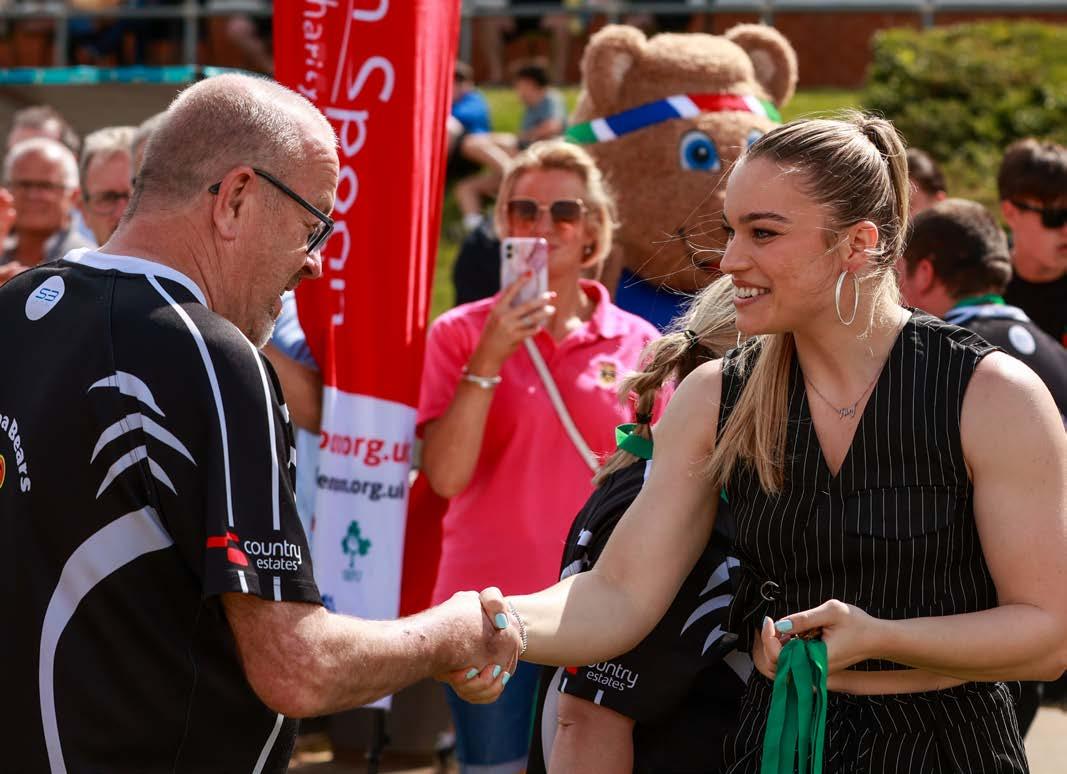
Awareness, Engagement and Action
Rugby is also about fun and pushing boundaries, Wooden Spoon continues to support teams both abled and disabled to play rugby, created fun and engaging fundraising activities which have even seen our supporters break Guinness World records with games of rugby played in the Artic and on Everest. We will build on our success of festivals – Disability Tag, Vets and Corporate. We will also look at higher profile events that engage both public, media and supporters.
Engagement and promotion of our cause by celebrities and rugby stars is crucial for us to reach out beyond our traditional audiences towards the twelve million spectator, leisure players and armchair rugby fans.
We recognise that this engagement and respect is earned by the other areas within the strategy – having activities that are relevant and engaging, showing the impact of our work, by being forensic in where we grant our funds and showing our efficiently, so the maximum of every pound raised goes to where it’s needed – in support with the children and young people.
Communicate, communicate, communicate,
We will create a wrap around communications plan to show our success and promote our activities via traditional media- national and local, within the rugby press and across social media platforms.
“Beyond club rugby we will refresh our offer to rugby in schools, community setting and socials park rugby.“
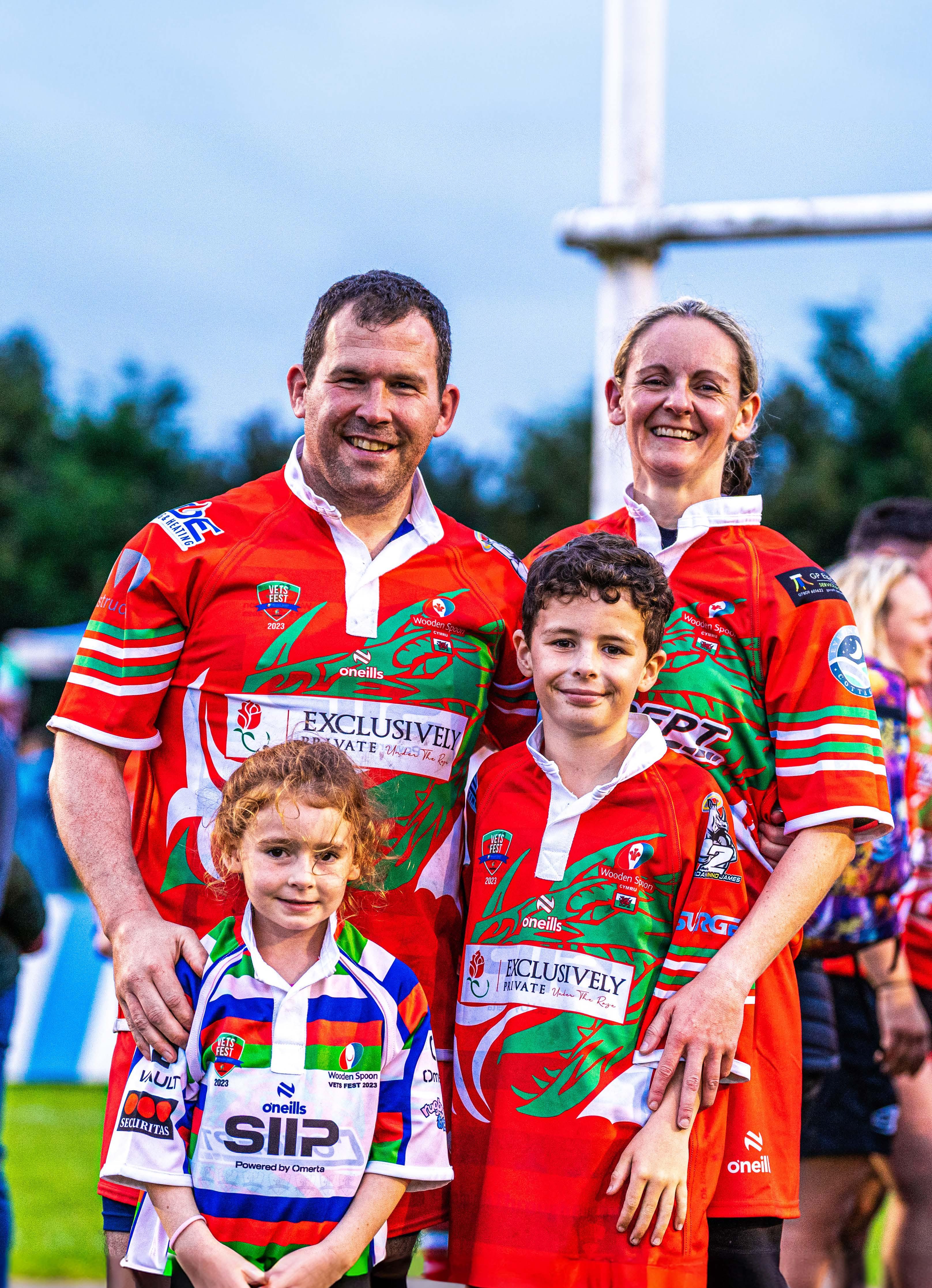
“With
the support of the rugby community we want to raise the funds necessary to help the next 1 million children over the coming 5 years.”
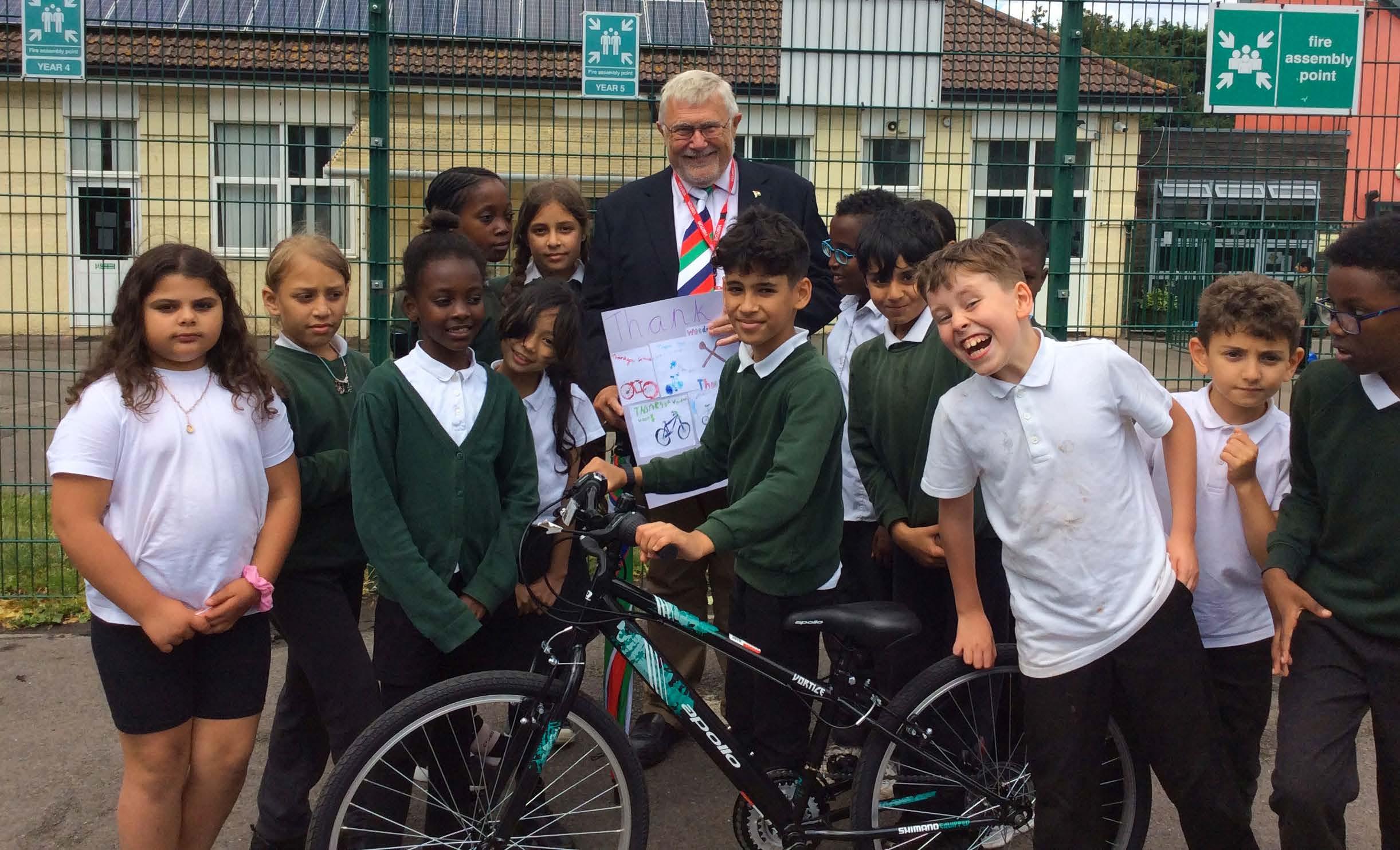
Wooden Spoon funds projects that enhance and support the lives of vulnerable children and young people from a range of backgrounds.
The information below gives a view of the mix of beneficiaries supported by Wooden Spoon approved grants in this period.
Age range
Children and young people supported are aged between 0 and 25.
Beneficiaries supported
We support children with a range of needs and conditions:
0–4 years 8%
5–11 years 59%
Wooden Spoon funds projects which sit in one of five categories:
health and wellbeing, specialist equipment and facilities, sensory rooms and gardens, playgrounds and outdoor facilities and education.
Projects approved by type (000’s)
The chart below shows project approved by type in 2024 with a comparison to 2023.
£0
Projects approved (by value 000’s)
The chart below shows project approved by value in 2024.
Health & wellbeing 139
Specialist equipment & facilities 355
Sensory rooms & gardens 342
Playgrounds 273
Education 67
Projects approved (by number)
The chart below shows project approved by number in 2024.
Health & wellbeing 18
Specialist equipment & facilities 25
Sensory rooms & gardens 25
Playgrounds 17
Education 4
Overall total grants approved in the year were £1,183,515 with an increase in two categories compared to £1,074,553 in 2023.
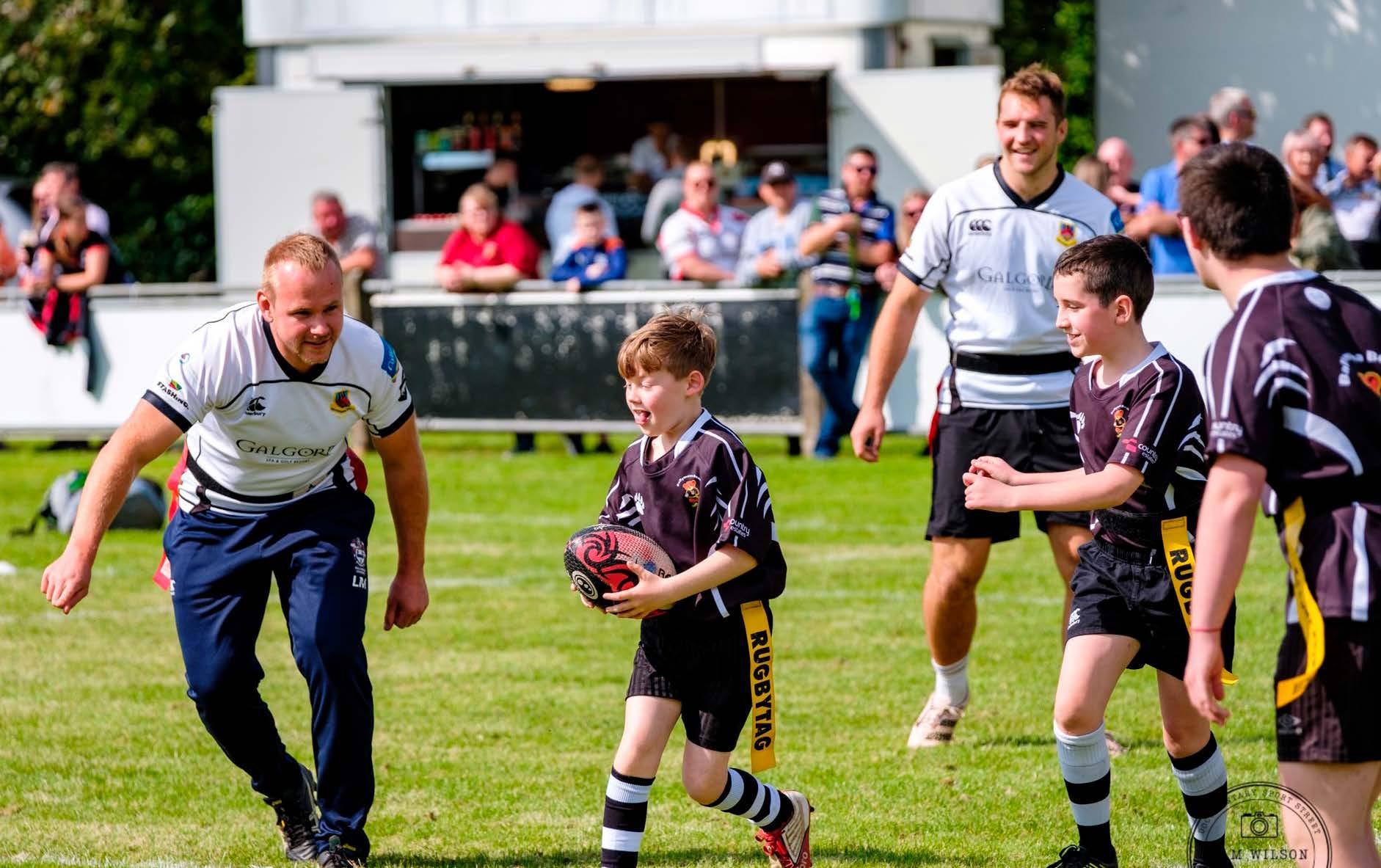
We believe no child should miss out on the health and wellbeing benefits of sport.
Health & Wellbeing projects approved by age range (years)
& Wellbeing projects approved by conditions supported

The Newcastle Rugby Foundation has partnered with Wooden Spoon Northumberland and Wooden Spoon Durham to kick off a Learning Disability Rugby programme.
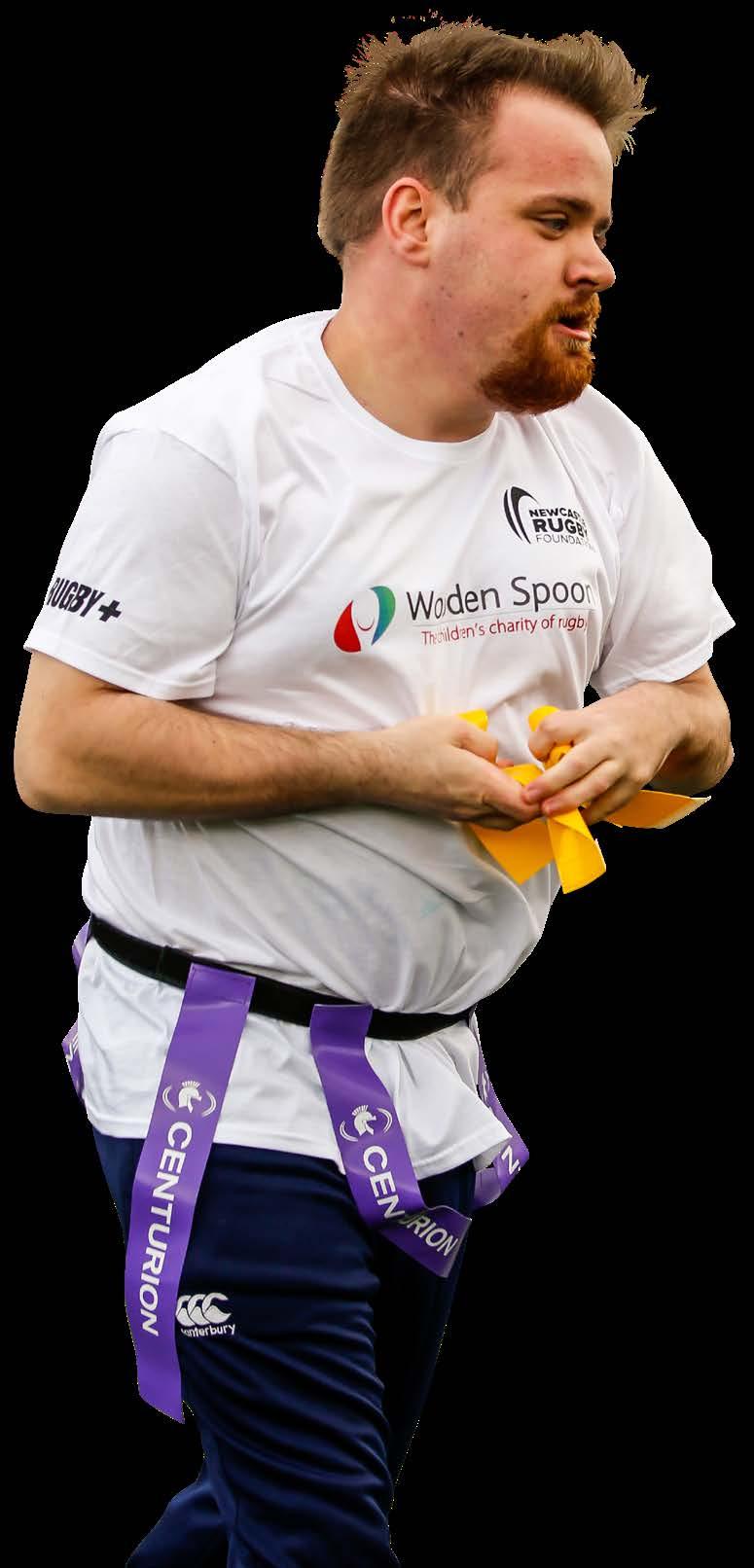
Aimed at empowering individuals with learning disabilities, the initiative was launched at Kingston Park Stadium on April 15.
The launch event featured an inclusive rugby session tailored to meet the specific needs of players. Thanks to funding, the programme will have new equipment like tag belts, prepping them for future fixtures and competitions.
They will also have a new kit, which will make the players feel part of the team. Open to all abilities, regardless of prior experience, the programme champions accessibility. The programme makes a meaningful impact on the lives of participants and their families, fostering friendships and empowerment within the rugby community.
Darren Greco, Funding and Development Manager at Newcastle Rugby Foundation said: “ This is a great opportunity for families to come together through the values and ethos of rugby.”
Iain Stewart, Wooden Spoon Northumberland, said:
“The programme fits well with our National Game Changer campaign to help give young people with a disability the chance to become a rugby player.”
Olly Lawson, Wooden Spoon Durham, said:
“It’s a pleasure to support programmes like this one, positively impacting the lives of those with learning disabilities. This truly embodies Wooden Spoon – using rugby as a vehicle to do good.”
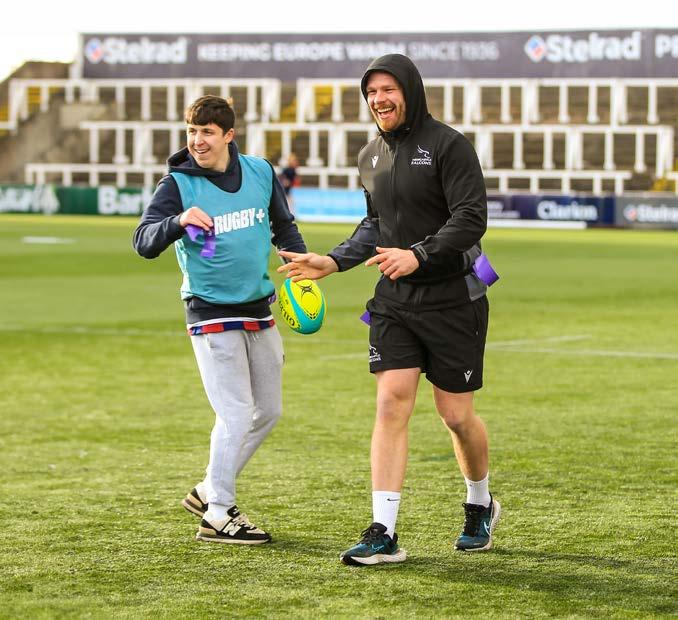
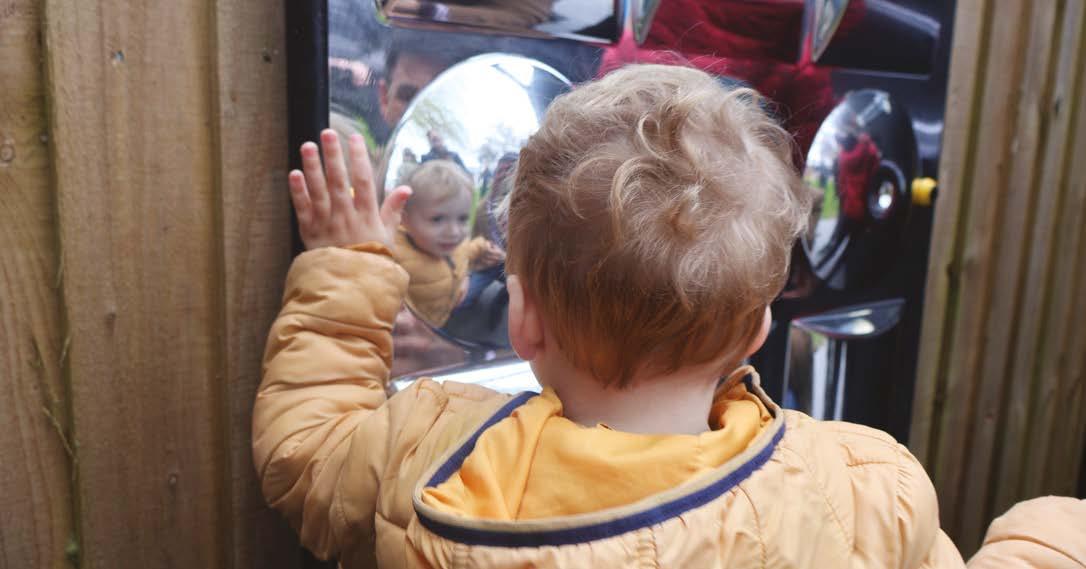
We provide firm foundations for brighter futures by building and funding specialist facilities.
Specialist equipment & facilities projects approved by age range (years) Specialist equipment & facilities projects approved by conditions supported
INNOWALK | GRANT AWARDED £43,600 | EDINBURGH
The Innowalk is a dynamic standing device which supports children in an upright position and moves their legs in a motorised motion, similar to walking. It is designed for those with high levels of disability and it can be adjusted to fit a range of abilities, varying sizes, shapes and postures.
Hamish’s mum, Sarah, is excited to see the benefits of the Innowalk:
“I would like to thank Wooden Spoon wholeheartedly for the significant funding we have received for the Innowalk at Braidburn School. This will benefit my son, Hamish, who has severe cerebral palsy and countless other young children at the school with physical disabilities.
“The trials at the school showed improved sleep, bowel function and joint movements in the children.
During the trials all the pupils really enjoyed using the Innowalk. Regular use will allow pupils to experience physical activity, and benefit from the mental wellbeing it can bring.”
The Innowalk can also improve respiratory function, cardiovascular fitness and muscle tone. The teachers also noticed the children were more engaged in their lessons and were more comfortable in their standers, walkers and wheelchairs.
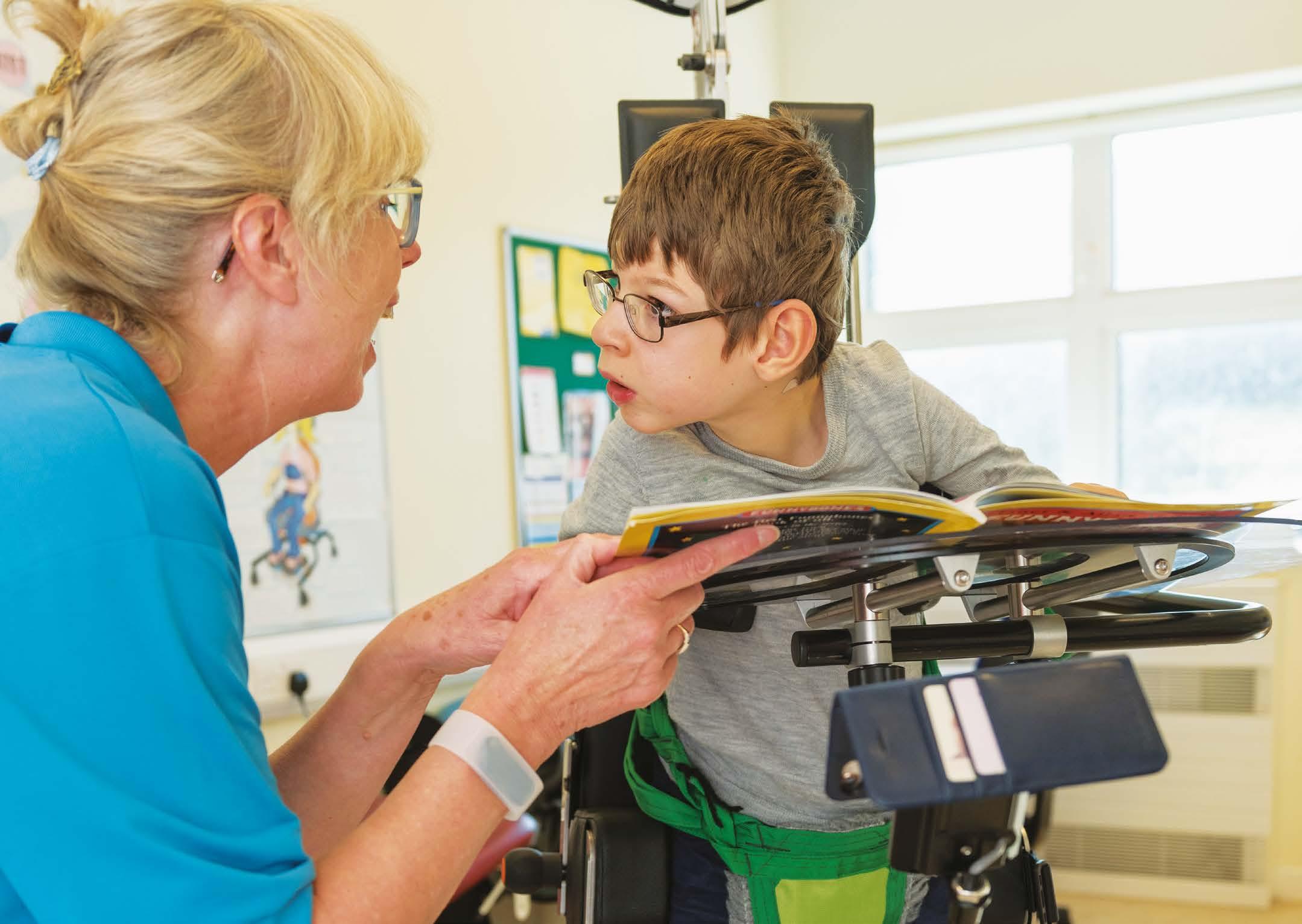

We aim to excite, engage and educate young minds by stimulating children’s senses.
Sensory Rooms and Gardens projects approved by age range (years)
Sensory Rooms and Gardens projects approved by conditions supported
0–4 years 18%
5–11 years 59%
12–18 years 21% 19–25 years 2%
15%
0%
1%
Visual impairment 1%
Hearing impairment 1%
Sarah Bern is very close to her family and loves to have her sister Sammy and family along to watch her play.
However, match days are challenging for her nephew, Finlay, who has neurodiversity. Sarah tells us:
“Finlay loves watching us on the TV, but with the sensory issues being in large crowds causes, and the distress and anxiety it brings, Finlay can’t come to watch me play.”
Sarah’s sister, Sammy, continues:
“When he was younger, we did try to bring Finlay to watch Sarah. However, the noise was too much. He would want to run away, and then it’s not safe. Then it isn’t about watching Sarah, it’s about managing Finlay and keeping him safe.”
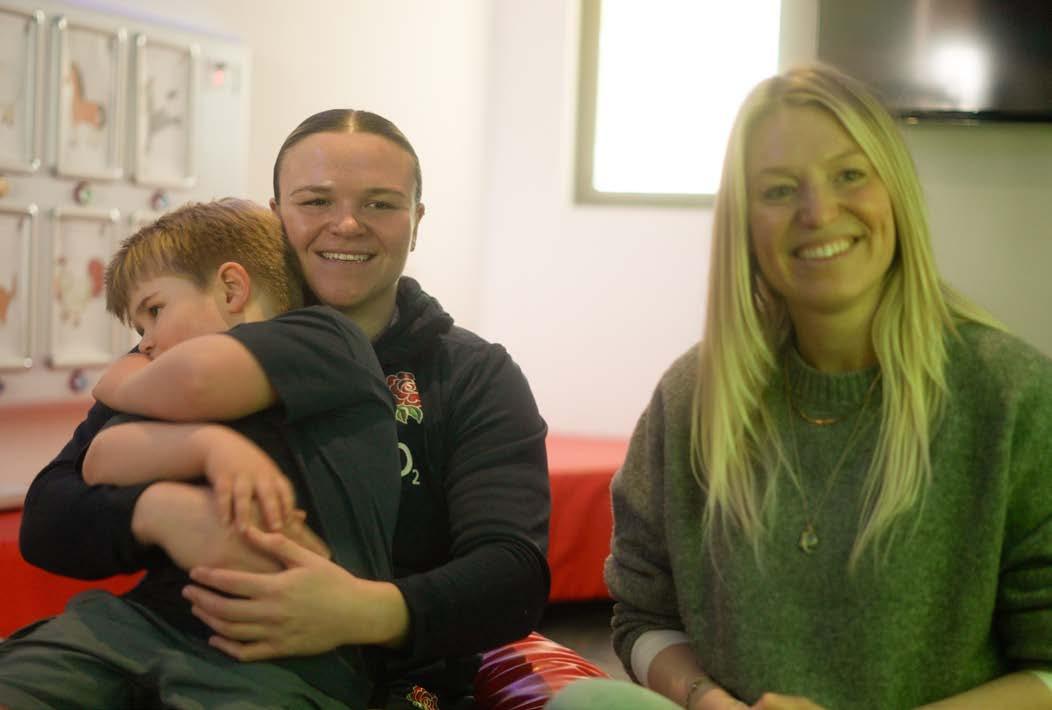
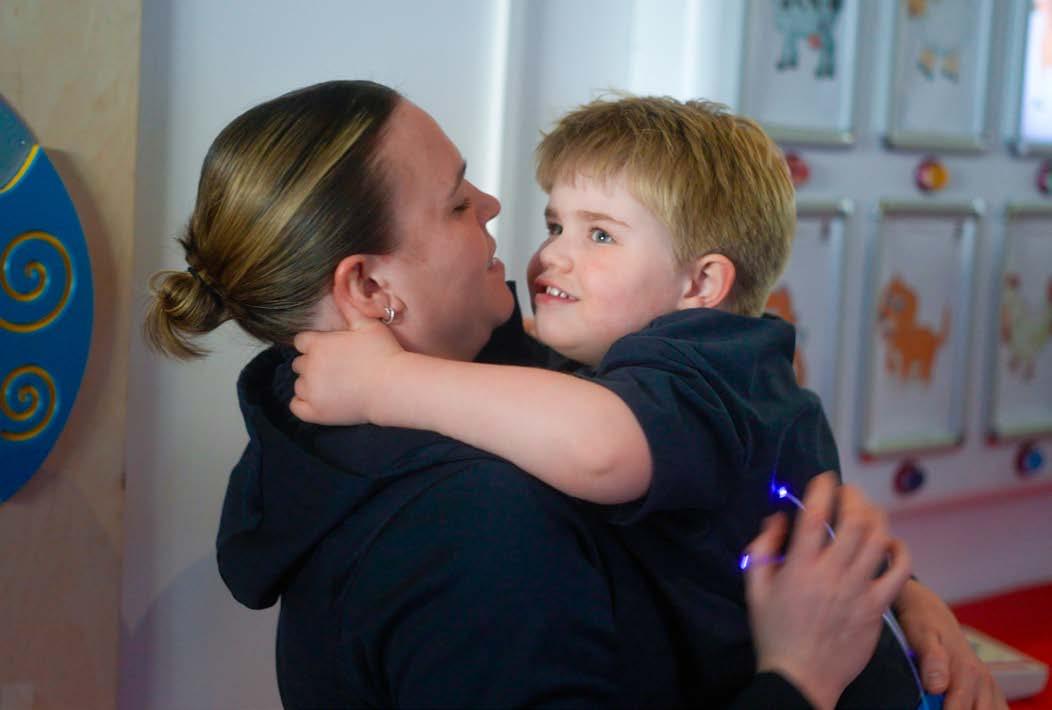
The new Sensory Room at Twickenham ensures individuals with neurodiversity can join in the excitement of the match in a comfortable environment, tailored to their needs. RFU Health, Safety and Environment Manager, Macaulay Quinn, said:
“The RFU’s ambition for the room was to enrich lives and make rugby accessible to everyone, whatever their needs. We wanted a safe space for people to use and come and enjoy the games like anyone else.”
Sarah tells us the difference the Sensory Room makes:
“It means my sister can still enjoy aspects of life that Finlay finds difficult, and can do that as a family.”
Sammy adds:
“It means everything to us. I get so emotional. Finlay can go in and play and touch, it’s amazing. He loves it.”
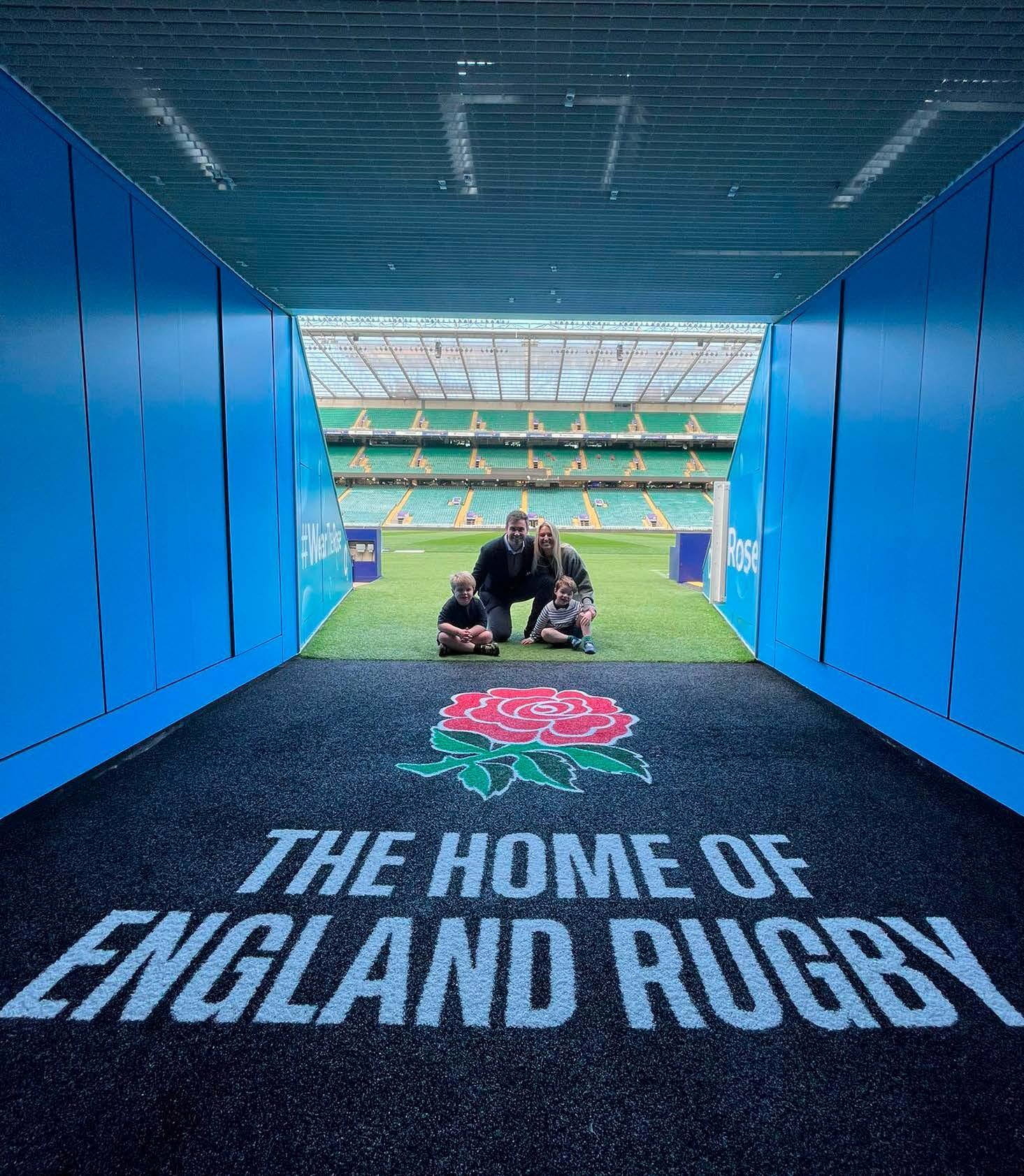
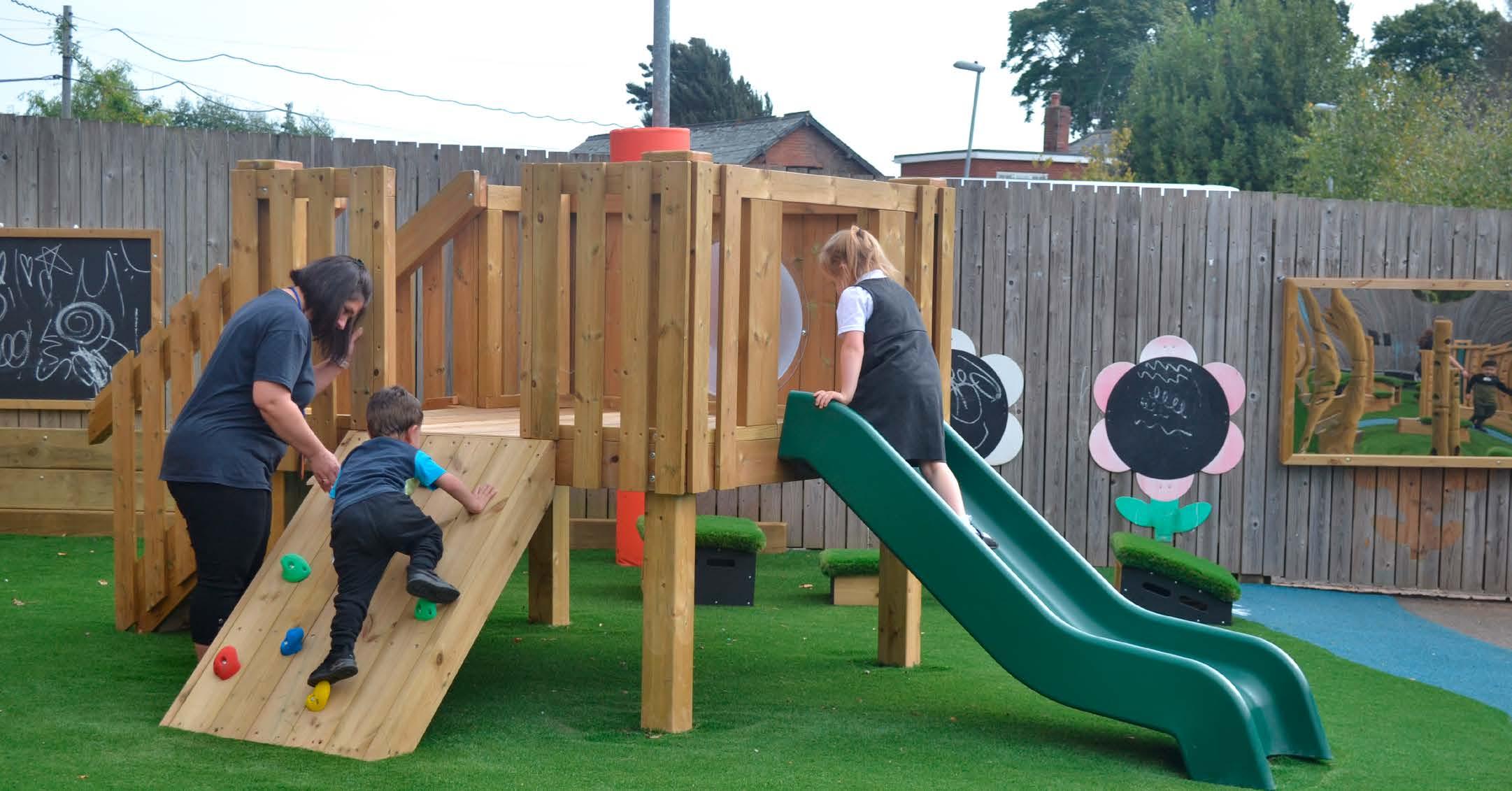
We value the power of play in learning new skills and in emotional development.
Playgrounds & Outdoor Activities approved by age range (years)
Playgrounds & Outdoor Activities approved by conditions supported
0–4
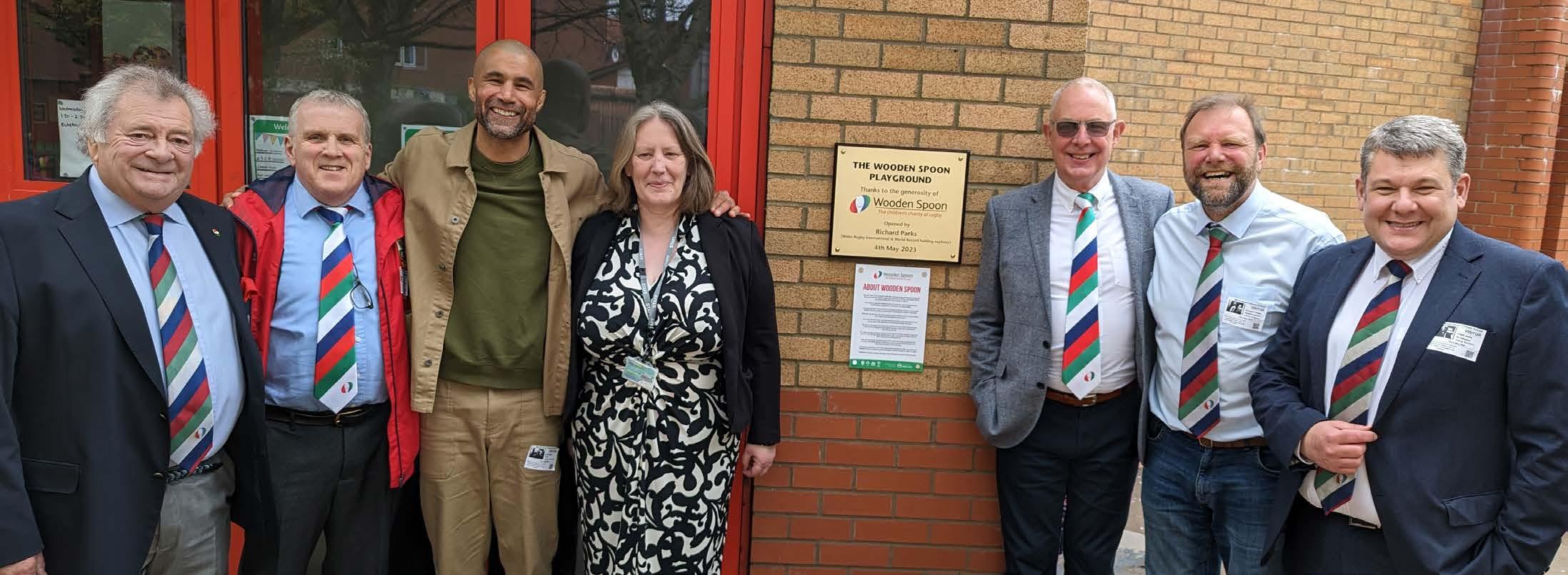
Mount Stuart Primary School, in Cardiff embodies multiculturalism, with more than 40 languages spoken at the school. Many of their pupils live in flats, without access to outdoor spaces, so creating a place to play and explore was vital.
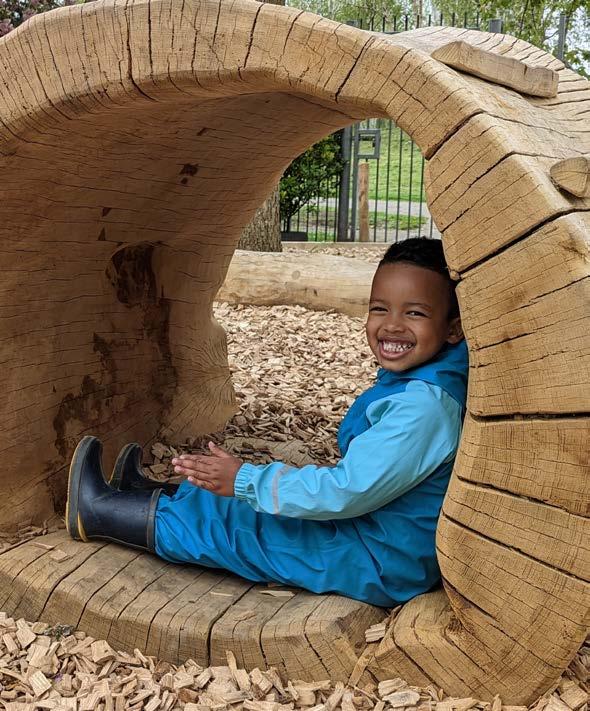
The school had a vision to create a sustainable play area with equipment formed from a single fallen tree. Wooden Spoon Wales loved the idea and provided a £12,800 grant to realise the creative dream. The result is not only beautiful, but gives the children the space to have fun, let off steam, and challenge themselves. Former rugby International and record-breaking explorer, Richard Parks, was delighted to open the adventure area:
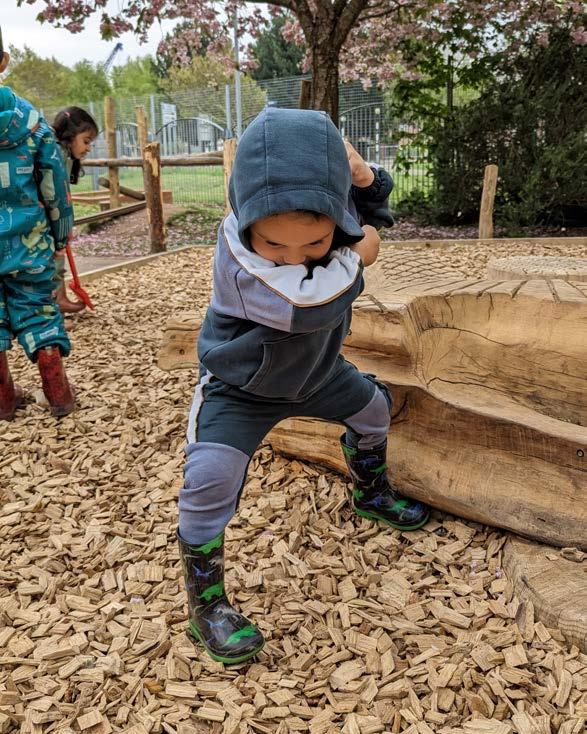
“Play is the gateway to adventure. There’s a deep understanding that the school serves its community through the kids, beyond their academic needs, it’s a safe, healthy, and happy place.”
Headteacher, Helen Borley, said:
“We are all thrilled with our new play area; it’s sustainable, natural, and beautiful, but more importantly the children love it. Without the support from Wooden Spoon, this project would not have happened and from all the pupils at Mount Stuart we would like to offer huge thanks.”
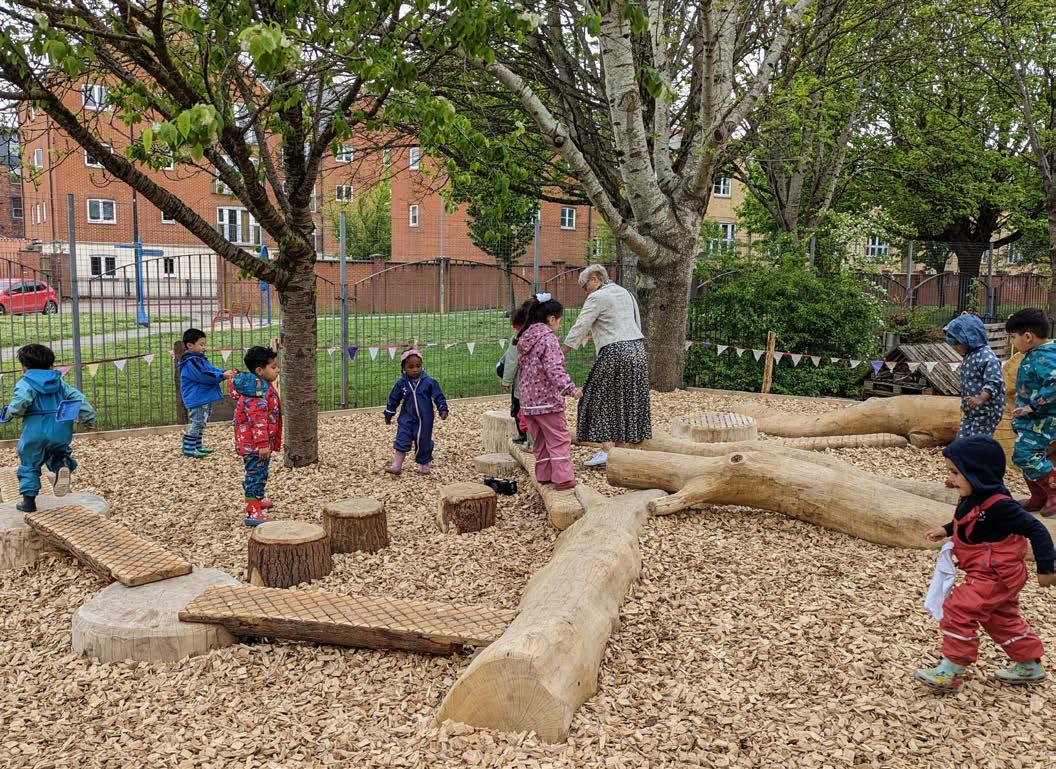
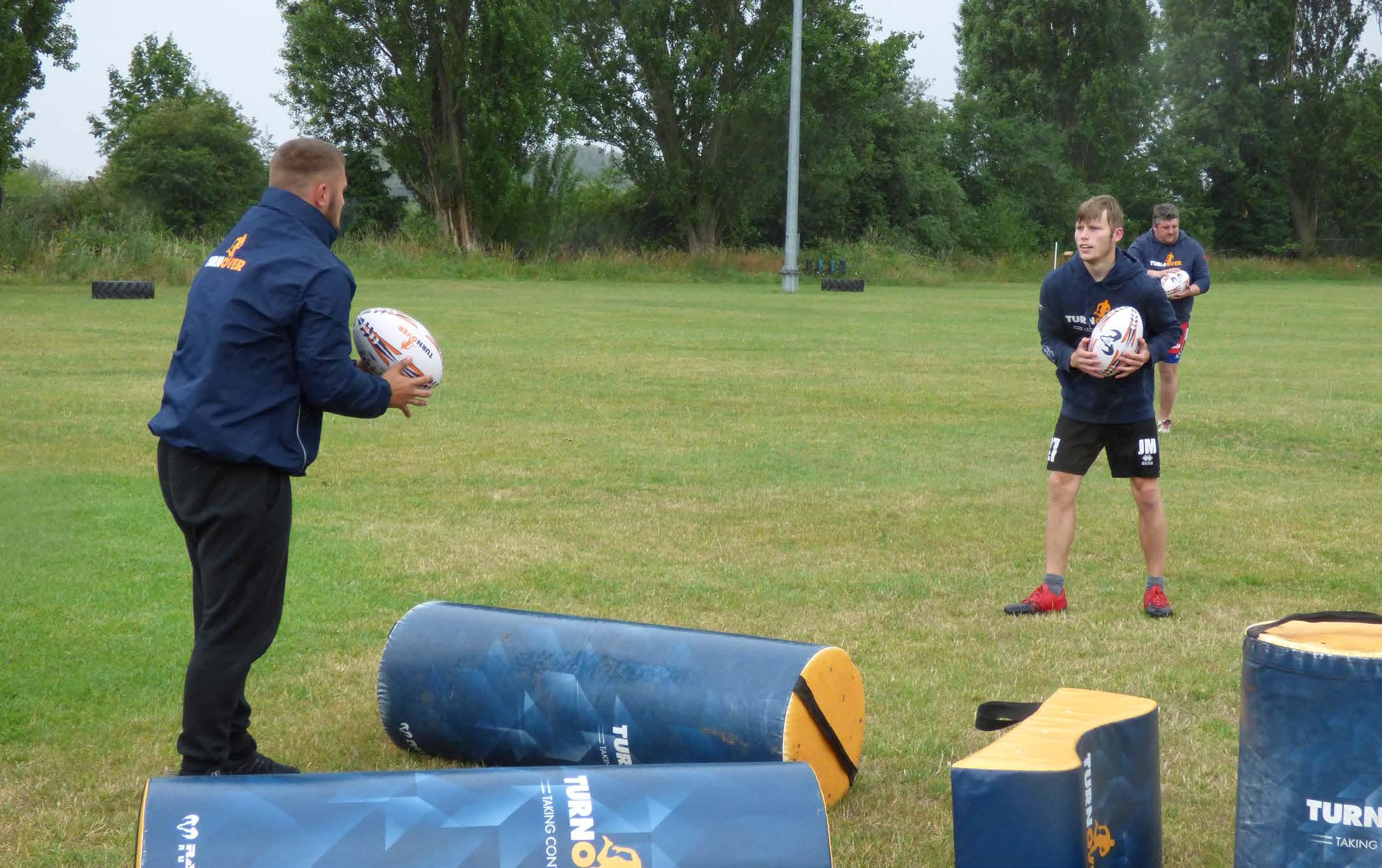
Engaging socially disadvantaged children and young people not in education, training or employment (NEET).
Education projects approved by age range (years)
Education projects approved by conditions supported
0–4 years 0%
5–11 years 0%
12–18 years 100%
years
Multiple disabilities
Other health impairment
Speech and language
Specific
Visual impairment
Hearing impairment
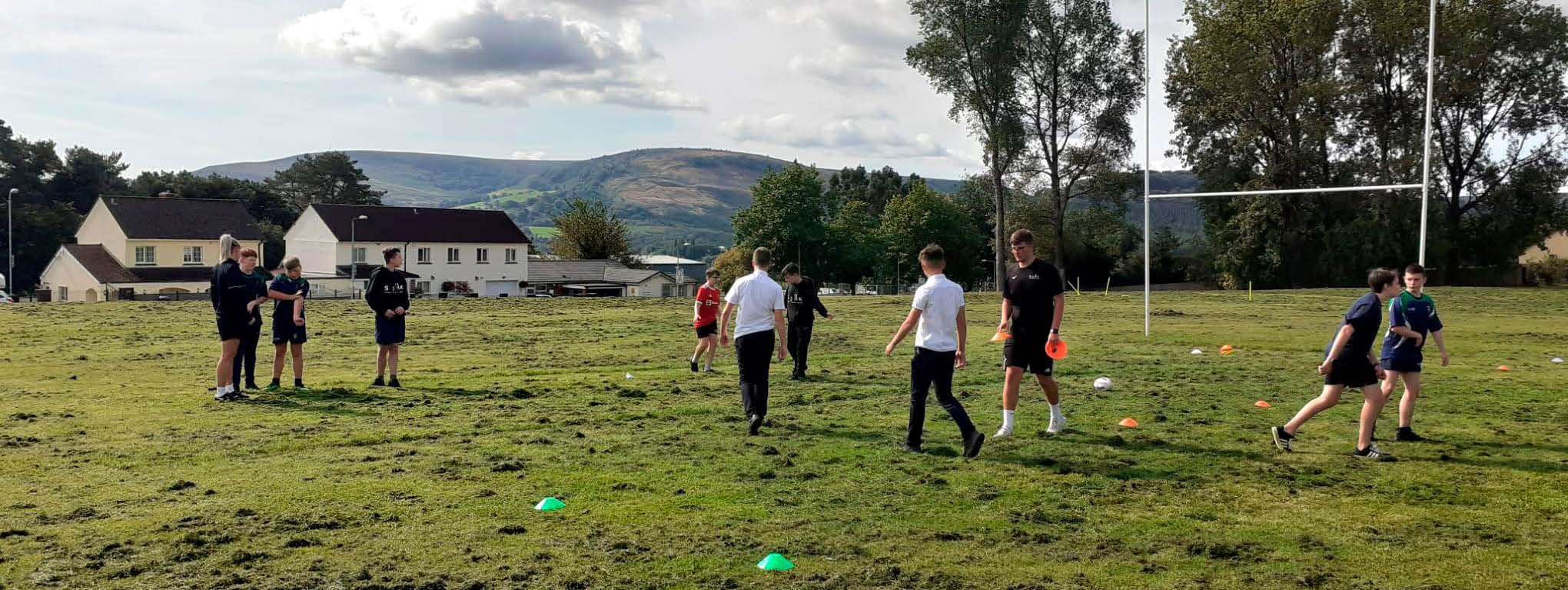
Jack (name changed), a young student living with his parents and older brother, was referred to the School of Hard Knocks (SoHK) program due to frequent violent outbursts and difficulties in managing his emotions. Diagnosed with ADHD, Jack struggles with focusing on uninteresting subjects while displaying hyperfocus on activities he loves, like rugby and physical education. His impulsivity often leads to conflicts and altercations.
The School of Hard Knocks program has profoundly impacted Jack’s life. Through personal development sessions and physical activities, Jack has made remarkable progress in controlling his emotions. The frequency of his outbursts has significantly reduced, and he has adopted coping mechanisms such as removing himself from tense situations and using breathing techniques to manage his anger. Not only that the program has improved Jack’s rugby skills and overall fitness, contributing to his sense of well-being and self-esteem.
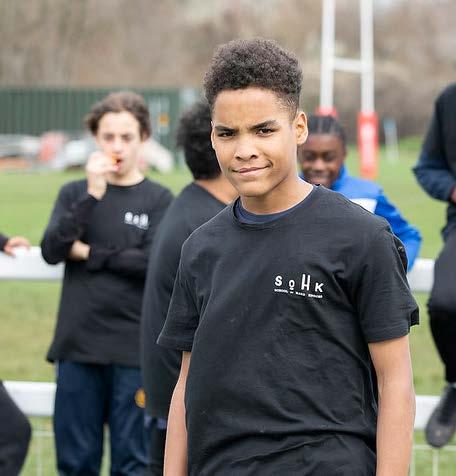
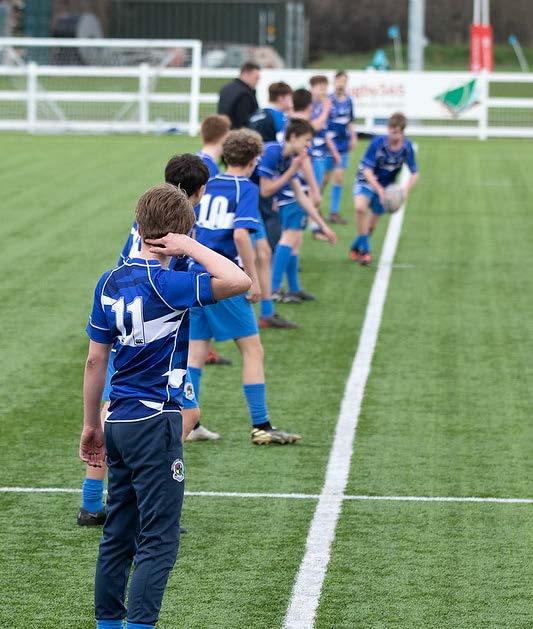
“My favourite part of SoHK is the rugby festival. The chats we have in the class are funny but sometimes are serious when we need to be. I liked the smoking and vaping session we did because I see a lot of people smoking and vaping and they need to learn about that.”
Jack aspires to become a mechanical engineer, motivating him to excel in subjects like maths, physics, and product design. He also plans to continue developing his rugby skills and maintaining his physical fitness, both of which have become important aspects of his life through the SoHK program. Jack’s journey through the School of Hard Knocks program exemplifies the transformative power of sport and structured personal development. The program has equipped him with essential life skills, improved his emotional regulation, and provided a positive outlet through rugby.
All photos are generic photos from the SOHK programme and not specifically related to the case study.
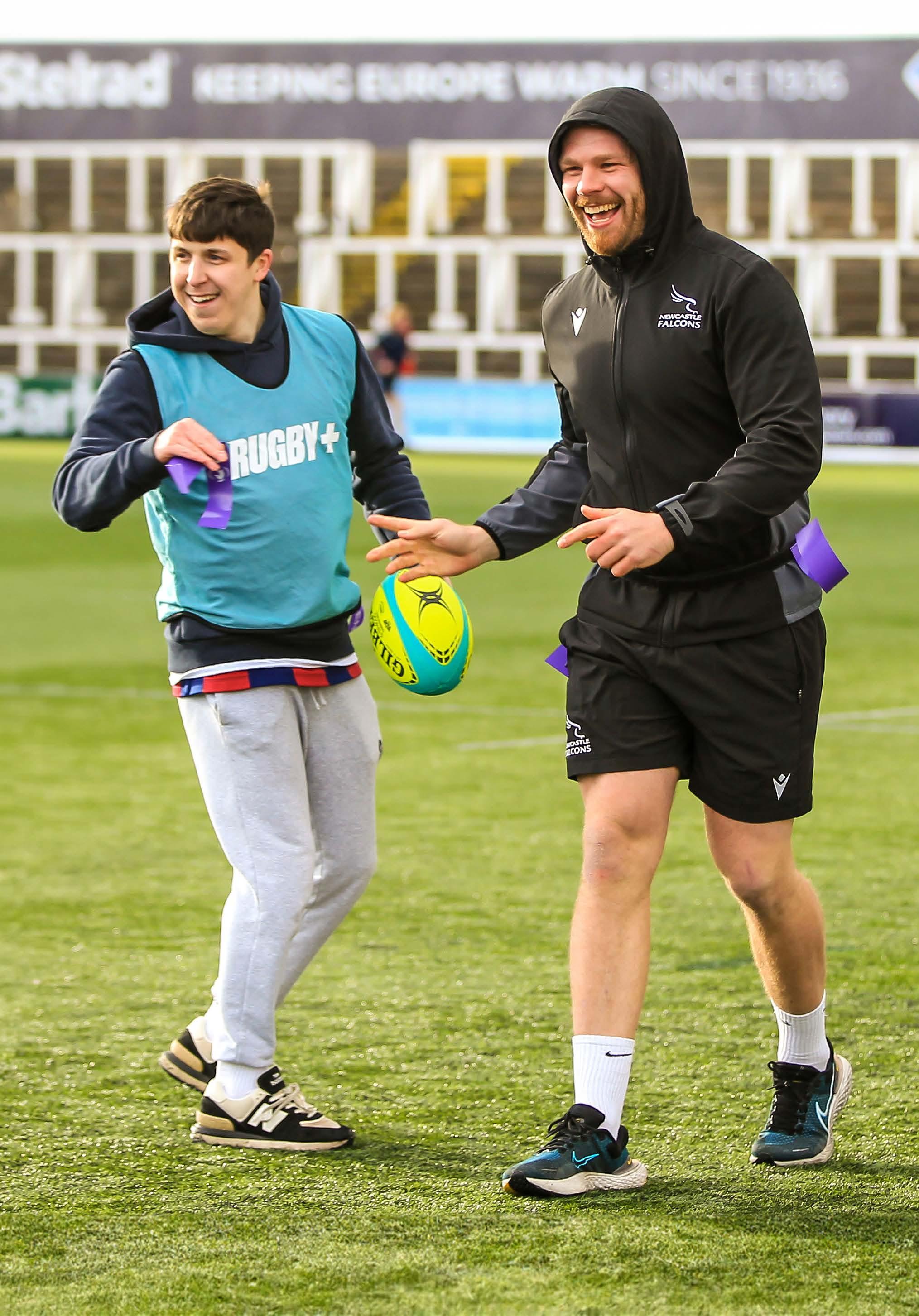
Wooden Spoon was established in 1983 and registered as a charity in England and Wales in October 1984 (Charity Registration 326691). In February 2008 Wooden Spoon also registered in Scotland (Charity Registration SC039247). It is a company limited by guarantee, registered in September 1984 in England and Wales number 01847860 and latest Articles of Association amended in October 2007.
The charity comprises of a Council of Trustees, a national office headed up by a Senior Management team based in Hampshire, 38 volunteer Regional Committees and a subscribing social membership of over 7,000. The charity has a 100% owned subsidiary company WSS Events Ltd.
The Constitution of the Charity and the Council of Trustees
Wooden Spoon is governed by its Articles of Association. These provide that the charity will be overseen by the Trustees who are both the only full members of the charity and its directors. Together, the Trustees comprise the Council.
New Trustees are appointed by the Council which seeks to ensure that there is a broad range of relevant skills, encouraging diversity whilst giving due consideration to the range of experience required. The Trustees serve a three year term but can be reappointed for up to a further two succeeding terms. In the year the Council have recruited 5 new Trustees and careful consideration was undertaken to provide complimentary skills and diversity of the Council as whole.
The Trustees provide their time at no charge to the charity. The charity has no share capital and hence the Trustees have no disclosable interests in the company. No dividends may be paid to any members. Trustees are provided with details of their responsibilities as charity Trustees upon their appointment and receive training in the role of Trustee as part of their induction. Trustees are encouraged to continue to attend training events to brief them on their legal and other obligations under charity and company law whilst also assisting them in their role as a Council member.
The Council of Trustees meets at least four times each year. It is responsible for the effective governance of the charity and for safeguarding the charity’s assets. The Trustees approve the commissioning of projects and the awarding of grants. In addition to sitting on the four sub-committees, Trustees are encouraged to help organise events, support the regions and attend project openings
The Trustees who have served in the year and the Governance and Administrative information on page 57 form part of the Trustee Report
In order to promote good governance and best practice, the Council of Trustees has four committees.
The Projects Grants Committee responsibilities are to review all the charity’s project proposals whether submitted by the regional committees or the national team, to ensure that the charity’s projects comply with its charitable purposes and to approve the projects that meet its criteria. In line with criteria, grants for projects are made to institutions or charities only and the senior management team carry out due diligence on each application prior to submission to the committee. Regional committees are involved in project nomination and review, the project grant is made from the charity but it will be denoted as a project from the Wooden Spoon region where the local fundraising took place. All Trustees receive advance copies of all the projects to be approved and are invited to join the monthly meetings. All projects are considered at the monthly meeting and if appropriate full approval is given. The committee has delegated powers to the Committee Chair and the Director of Projects & Systems for all projects below an agreed level. Projects above the agreed level will be deferred to the next full Council meeting for consideration for full approval. On issue of the grant letter the charity is then committed to the project and it is identified as a liability.
The Governance Committee is responsible for ensuring that all matters of good governance and best business practice are effective throughout the entire charity, both at the national administrative office and in the Regions. The Committee maintains a risk register, reviews the execution of all delegated responsibilities with management and monitors the practical application of internal controls.
The Audit Committee is responsible for overseeing the charity’s preparation of annual accounts, considering reports from the auditor and advising the Council on financial control and accounting matters, in liaison with the Director of Finance & Operations.
The Investment Committee considers investment policy and considers the risk of investment of free cash resources in liaison with information from external advisors.
The Council of Trustees ensure that all activities are undertaken to further charitable purposes.
The key management personnel of the charity comprise of the Senior Management Team. The Chief Executive Officer is responsible to the Council of Trustees for the day to day running and execution of strategy and policy and is supported by the Director of Projects & Systems, the Director of Finance & Operations and the Director of Fundraising & Marketing.
The terms and pay of all staff is reviewed in April annually and recommendations are made to the Board. Pay for staff and reviews are benchmarked to similar organisations. The charity encourages fairness and respect, equal opportunity and ensures that everyone’s contribution is recognised and valued. It actively implements family friendly policies for its staff and encourages training and personal development.
The performance of the charity is measured by the Council against the approved annual budget on a quarterly basis.
The charity is very much a regional organisation in its method of operation. Currently there are 38 Regional Committees operating across the UK, including Wales as one region, 3 in Scotland, 2 in Ireland and 32 in England. These are staffed entirely by volunteers (there are 260 volunteers recorded) who are drawn from its social members and led by a ‘Chair’ along with a committee formed of varying roles such as treasurer, projects lead, events officer, social media officer etc. The constitution of the Regional Committees is established by the Trustees and is set out in the charity’s Administration Manual. The national office communicates with the regions through the regional team offering timely support with admin, events and fundraising etc as well as offering central services support such as marketing & finance to ensure the smooth running of their regional activities. There is a ‘National Volunteers Conference’ annually which our committee members are invited to which is a key event for the charity to communicate and share our vision to our regions as well as regular communications from our regional team out to our committee members via a monthly newsletter and quarterly ‘Online Cluster’ meetings.
Fundamental to the charity’s culture is that all funds raised in a particular Region are, to the extent possible, then invested in operational or capital projects in that Region; “local funds for local projects”. In addition, national
fundraising, is where possible, used to provide further support for projects in the Regions. Each region has a page on the main website detailing their events and projects and this is co-ordinated with our national calendar.
We acknowledge the tremendous dedication provided to the charity by all its volunteer supporters whose fundraising activities take place across much of the United Kingdom, in the Isle of Man, the Channel Islands and the Republic of Ireland.
The Trustees have considered the major risks to which the charity is exposed. The risk register, which includes strategic and operational risk, is reviewed and updated at quarterly Governance and Trustee meetings with appropriate actions identified. Specific areas of activity are reviewed on a monthly basis.
The financial year has seen activity returning the fundraising efforts to pre-pandemic levels with the considerable input made by our regional volunteers and the national fundraising team. As the pace of activity and support for these efforts increased a resource risk had been identified in the prior year and recruitment into our fundraising and regional teams was acted on as a priority in early 2023. This is an efficient way to support our regions and national activities.
Throughout the year consideration has also been given to the longer term as the economic and fundraising environment changes and impacts our supporters.
In addition particular attention has been paid to the charity’s ability to continue to reach its beneficiaries. During the year the charitable grant giving activities increased from £1.05m to £1.2m and the grant process takes due care and consideration so the grants will benefit those most in need.
The Trustees are confident that reasonable systems have been established to manage and identify new and existing risks, steps are put in place to mitigate risks and with forward planning for the charity to be better prepared for future eventualities. These systems include monthly review of the financial results, diligent preparation and regular review of budget and regular reforecasting throughout the financial year.
Wooden Spoon is involved in funding and participating in numerous activities and projects involving children and vulnerable young adults. The charity considers the welfare of children and vulnerable young adults to be of the utmost importance. Wooden Spoon’s rules and procedures ensure that all staff and volunteers who may have contact with children and young adults are DBS checked, and this is recorded and monitored at the head office.
The Trustees confirm that they have complied with the duty in section 17 of the Charities Act 2011 to have due regard to public benefit guidance published by the charity Commission. The Annual Report highlights the significant activities undertaken to carry out our aims for the public benefit and our achievements measured against those aims.
Wooden Spoon has adopted the charity Governance Code and benchmarked the charity’s effectiveness against the seven principles that make up the Code. The Code’s principles have been revisited and reflected upon and where appropriate have led to new or updated policies. As an example of actively considering the Code the recent recruitment of a new Trustees carefully considered the need to secure a broader range of relevant skills and a more diverse board.
The charity’s staff continue to work closely with the Governance Committee to ensure the charity is compliant with the data protection legislation. The charity does not sell or give data to third parties.
All supporters and donors have been contacted to ensure they are happy to continue to receive updates and materials from us. There have been no breaches or complaints to report to the Information Commissioners Office.
The charity has built on fundraising income and generated an increase of 13% to £3,366,877 (2023: £2,920,786). This was mainly a result of corporate activity nationally and regional fundraising efforts generating just over £1m. (2023 : £981,928).
The charity’s fundraising levels as set out in the Operational Review on page 36. Head office costs were increased to £566,308 (2023: £492,742) as resource risk was identified and increased resources were needed to support all fundraising, on-going digital upgrade work and regional activity. The overall increase in costs was by £1,540,030 to £1,683,508 with a 6% increase in relation to costs for staging events.
Gross income by Type 2024 v 2023 (£000’s)
£2,500
£2,000
Expenditure on charitable activities has increased in the year £1,314,360 (2023 : £1,165,080). The pace of grant giving has increased compared to the prior year and the commitment to grants made but not yet drawn is set out in the Note 11 to the Financial Statements increasing by 47%.
Wooden Spoon ended the year with an overall surplus of £388,355 (2023 : £215,676). This surplus is added to brought forward reserves and will also enable significant charitable grant making in the year ahead.
The year has returned a full programme of social events and the regional engagement and the resourcefulness of our volunteers has seen a regional net income of over £1m. This has followed several years of reduced fundraising post pandemic and is a notable achievement. Our membership has shown a slight decline although there remains the opportunity to sign new members at the events.
The charity has set out its strategic aims for the next five years but will continue with a clear goal to further improve the margin on its total income through a combination of sensible investment in efficiencies and a focus on growing higher margin sources of revenue.
Wooden Spoon complies with the standards set in the Fundraising Regulator’s Code of Fundraising Practice and is also a member of the Institute of Fundraising. Wooden Spoon staff and volunteers carry out the charity’s fundraising activities and do not employ external agencies to carry out fundraising on its behalf. Our fundraising staff are aware of the need to be sensitive and careful when engaging with vulnerable people and if people do not want to give or wish to stop giving their decision is fully respected. Any complaints received are recorded and investigated. There have been no fundraising complaints recorded in the past year.
The Trustees and the Senior Management Team aim to ensure that Wooden Spoon’s fundraising is respectful, open, honest and accountable to the public. The charity considers the objects and the beneficiaries of the organisation when fundraising is planned.
The charity’s primary income sources in this financial year include:
Subscriptions: We enjoy the support of around 7,000 members who donate an annual subscription to the charity. This significant regular giving every year supports Wooden Spoon’s work and notably allowed sustainability during the pandemic years where event fundraising was been impacted. Members receive Spoonews (our in-house magazine) twice per year, invitations to regional and national events when staged, the opportunity to win national and international rugby tickets and the opportunity to wear the charity’s distinctive tie or broach in the colours of the England, Scotland, Wales and Ireland rugby teams.
Campaign and Donations: Our loyal supporters have helped to maintain the level of donations. Donations have remained at a consistent level for several years and the generous support of major donors has allowed continued support of the charity’s work and project grant giving.
Major Gifts: Wooden Spoon has benefited from a number of major gifts this year from an individual supporter.
Events: The charity’s ability to stage events in the financial year has been without restrictions. The national team were able to support the London Marathon fundraising in April 2023 and an expanded Veterans Rugby Festival which including teams from across the regions, took place in September 2023. Fundraising has continued at a local level with regular golf days, cycle rides and individual pursuits. Events including sporting dinners and lunches, with the frequent help of high-profile members of the rugby community, have been taking place throughout the year and many regions held events around the men’s Rugby World Cup in the autumn and both men’s and women’s Six Nations events remaining very popular. Our objective is always to maximise the funds generated at each event and the vast majority of our events are run by the regional volunteer committees whose hard work and commitment are at the heart of the charity. Their enthusiasm and incredible efforts have contributed significantly and our regional fundraising is now over £1m.
Corporate Engagement: Our engagement continues with the corporate community.
The year was supported by the biennial fundraising activity with a Rugbytots bike ride and the ‘Tryathlon’ which took place in the summer of 2023. Rugbytots started supporting the charity in 2014 and we are hugely grateful for the significant sum (over £520,000) raised by the organisation over the years.
Youngs Pubs have engaged in fundraising events for the year including multiple pub events and initiatives, Player at the Pump evenings and an on-going commitment to fundraise in the forthcoming year for which we are grateful.
We are enormously grateful to Rugbytots, Youngs Pubs, Omerta and all of the other corporate supporters and their employees and associates for their hard work and generosity.
Donated Goods and Services: The charity receives donations of services from both corporate supporters. We are very grateful to all donors and in particular to FedEx for providing their services on a pro bono basis.
The charity is fortunate to have incredible regular supporters and donors who have continued to donate despite all the economic pressures and disruption over the last few years.
The aim for the year has been to continue to build and focus the fundraising efforts achieved over the last few years and to accelerate our grant giving to pre-Covid levels. Alongside this we had identified a need to enhance our support for our regions and volunteers and refresh our offering to rugby, communities and individual givers through our membership journey.
The Veterans Festival in September 2023 is now part of the annual calendar and has helped to introduce new volunteers and providing support to the regions who enter and fundraise for their teams. The incredible support of players, volunteers and regional input has been heartwarming, and the event goes from strength to strength with over £100k raised between regionally and nationally including shirt sponsorship.
Hybrid working continues and operational management of all areas of activity is carried out using remote IT services and video conferencing. The year has seen an upgrade in our customer relationship system and the external development team has worked with the Director of Projects & Systems to minimise any impact of the upgrade. Throughout the year all other IT services to the charity remained stable and all of the charity’s management and internal controls were maintained.
The charity has improved the office space available and our staff well-being remains of highest importance. There are allocated team days and regular all-in team days to ensure teams are communicating. Meetings have taken place alongside continued provision of an employee counselling service.
The charity’s objective is to donate its surplus over the medium term, subject to maintaining reserves in accordance with good accounting and business practices.
The Council is aware of the Charity Commission’s guidance concerning reserves policies. The policy is reviewed on an annual basis and the Trustees updated the policy relating to unrestricted reserves to better reflect current best accounting practice, and to align the reserves policy more logically with the charity’s operations.
A significant part of the charity’s unrestricted reserves are generated through regional activities. The charity’s policy has always been, and continues to be, to release such funds where possible for grants to charitable projects in the financial year following that in which they were raised. The Trustees have previously considered that the reserve policy should explicitly recognise this practice and the reserve policy now sets a target level of free unrestricted reserves at the year-end date, of an amount equal to the unrestricted funds raised through the regional network in the year ending on that date.
The Trustees consider that this policy provides an amount of year end reserves of a scale which should permit the charity to continue its normal style of operation, whilst not being an excessive restriction on the swift deployment of charitable funds to public benefit.
Restricted Funds: The reserve covers all funds received by the charity for named specific purposes that have yet to be spent.
Unrestricted Funds: The reserve represents the funds available to the charity for investment in new charitable projects without restriction.
The aim of the charity was to contribute to unrestricted reserves by £247,164 in the year and the target was surpassed by £129,791 which will be carried forward and used in charitable activities in 2024.
The table shows the value of these reserves at the end of the financial year.
Free reserves which represent unrestricted reserves less fixed assets at the year-end total £2,573,513. The charity will utilise reserves in excess of its policy noted above in approving grants for projects in the year ahead.
The Trustees consider the financial position of the charity to be satisfactory and are of the view that the charity is financially secure and is a going concern.
Auditor
Crowe U.K. LLP have indicated their willingness to continue in office.
In preparing this report, the directors have taken advantage of the small companies exemptions provided by section 415A of the Companies Act 2006.
The annual report has been approved by the Council of Trustees and signed on its behalf by:

Quentin Smith Chairman
19th September 2024
The Trustees (who are also Directors of Wooden Spoon Society for the purposes of company law) are responsible for preparing the Trustees’ Annual Report and the financial statements in accordance with applicable law and United Kingdom Generally Accepted Accounting Practice (United Kingdom Accounting Standards).
Company law requires the Trustees to prepare financial statements for each financial year. Under company law the Trustees must not approve the financial statements unless they are satisfied that they give a true and fair view of the state of affairs of the charitable company and of the incoming resources and application of resources, including the income and expenditure, of the charitable company for that period. In preparing these financial statements, the Trustees are required to:
• select suitable accounting policies and then apply them consistently;
• observe the methods and principles in the Charities SORP;
• make judgments and estimates that are reasonable and prudent;
• state whether applicable UK accounting standards have been followed, subject to any material departures disclosed and explained in the financial statements; and
• prepare the financial statements on the going concern basis unless it is inappropriate to presume that the charitable company will continue in business.
The Trustees are responsible for keeping adequate accounting records that are sufficient to show and explain the charitable company’s transactions, disclose with reasonable accuracy at any time the financial position of the charitable company and enable them to ensure that the financial statements comply with the Companies Act 2006, the Charities and Trustee Investment (Scotland) Act 2005, the Charities Accounts (Scotland) Regulations 2006 (as amended) and the provisions of the charity’s constitution. They are also responsible for safeguarding the assets of the charitable company and hence for taking reasonable steps for the prevention and detection of fraud and other irregularities.
Insofar as each of the Trustees and Directors of the charity at the date of approval of this report is aware there is no relevant audit information (information needed by the charity’s auditor in connection with preparing the audit report) of which the charity’s auditor is unaware. Each Trustee/Director has taken all of the steps that he/she should have taken as a Trustee/Director in order to make himself/herself aware of any relevant audit information and to establish that the charity’s auditor is aware of that information.
By
order of the Council

Quentin Smith Chairman
19th September 2024
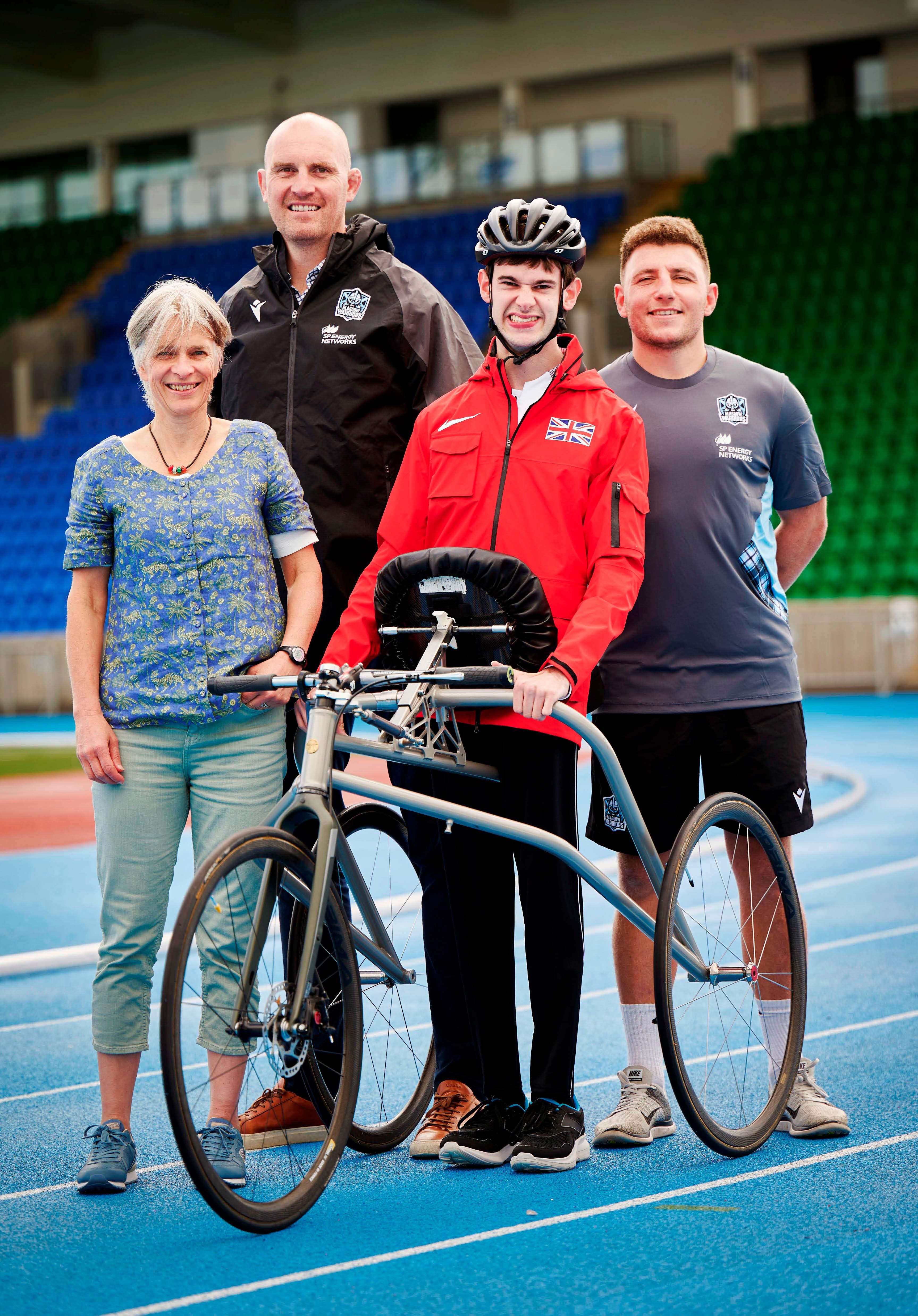
We have audited the financial statements of Wooden Spoon Society for the year ended 31 March 2024 which comprise the Statement of Financial Activities, Balance Sheet, Statement of Cash Flows and notes to the financial statements, including significant accounting policies. The financial reporting framework that has been applied in their preparation is applicable law and United Kingdom Accounting Standards, including Financial Reporting Standard 102 The Financial Reporting Standard applicable in the UK and Republic of Ireland (United Kingdom Generally Accepted Accounting Practice).
In our opinion the financial statements:
• give a true and fair view of the state of the charitable company’s affairs as at 31 March 2024 and of income and expenditure, for the year then ended;
• have been properly prepared in accordance with United Kingdom Generally Accepted Accounting Practice; and
• have been prepared in accordance with the requirements of the Companies Act 2006 and the Charities and Trustee Investments (Scotland) Act 2005 and Regulations 6 and 8 of the Charities Accounts (Scotland) Regulations 2006 (amended).
Basis for opinion
We conducted our audit in accordance with International Standards on Auditing (UK) (ISAs (UK)) and applicable law. Our responsibilities under those standards are further described in the Auditor’s responsibilities for the audit of the financial statements section of our report. We are independent of the charitable company in accordance with the ethical requirements that are relevant to our audit of the financial statements in the UK, including the FRC’s Ethical Standard, and we have fulfilled our other ethical responsibilities in accordance with these requirements. We believe that the audit evidence we have obtained is sufficient and appropriate to provide a basis for our opinion.
In auditing the financial statements, we have concluded that the Trustee’s use of the going concern basis of accounting in the preparation of the financial statements is appropriate.
Based on the work we have performed, we have not identified any material uncertainties relating to events or conditions that, individually or collectively, may cast
significant doubt on the charitable company’s ability to continue as a going concern for a period of at least twelve months from when the financial statements are authorised for issue.
Our responsibilities and the responsibilities of the Trustees with respect to going concern are described in the relevant sections of this report.
The Trustees are responsible for the other information contained within the annual report. The other information comprises the information included in the annual report, other than the financial statements and our auditor’s report thereon. Our opinion on the financial statements does not cover the other information and, except to the extent otherwise explicitly stated in our report, we do not express any form of assurance conclusion thereon.
Our responsibility is to read the other information and, in doing so, consider whether the other information is materially inconsistent with the financial statements or our knowledge obtained in the audit or otherwise appears to be materially misstated. If we identify such material inconsistencies or apparent material misstatements, we are required to determine whether this gives rise to a material misstatement in the financial statements themselves. If, based on the work we have performed, we conclude that there is a material misstatement of this other information, we are required to report that fact.
We have nothing to report in this regard.
Opinions on other matters prescribed by the Companies Act 2006
In our opinion based on the work undertaken in the course of our audit:
• the information given in the Trustees’ report, which includes the directors’ report prepared for the purposes of company law, for the financial year for which the financial statements are prepared is consistent with the financial statements; and
• the directors’ report included within the Trustees’ report have been prepared in accordance with applicable legal requirements.
on which we are required to report by exception
In light of the knowledge and understanding of the charitable company and their environment obtained in the course of the audit, we have not identified material misstatements in the directors’ report included within the Trustees’ report.
We have nothing to report in respect of the following matters in relation to which the Companies Act 2006 and the Charities Accounts (Scotland) Regulations 2006 requires us to report to you if, in our opinion:
• adequate and proper accounting records have not been kept; or
• the financial statements are not in agreement with the accounting records and returns; or
• certain disclosures of Trustees’ remuneration specified by law are not made; or
• we have not received all the information and explanations we require for our audit.
As explained more fully in the Trustees’ responsibilities statement set out on page 29, the Trustees (who are also the directors of the charitable company for the purposes of company law) are responsible for the preparation of the financial statements and for being satisfied that they give a true and fair view, and for such internal control as the Trustees determine is necessary to enable the preparation of financial statements that are free from material misstatement, whether due to fraud or error.
In preparing the financial statements, the Trustees are responsible for assessing the charitable company’s ability to continue as a going concern, disclosing, as applicable, matters related to going concern and using the going concern basis of accounting unless the Trustees either intend to liquidate the charitable company or to cease operations, or have no realistic alternative but to do so.
We have been appointed as auditor under section 44(1) (c) of the Charities and Trustee Investment (Scotland) Act 2005 and under the Companies Act 2006 and report in accordance with the Acts and relevant regulations made or having effect thereunder.
Our objectives are to obtain reasonable assurance about whether the financial statements as a whole are free from material misstatement, whether due to fraud or error, and to issue an auditor’s report that includes our opinion. Reasonable assurance is a high level of assurance, but is not a guarantee that an audit conducted
in accordance with ISAs (UK) will always detect a material misstatement when it exists. Misstatements can arise from fraud or error and are considered material if, individually or in the aggregate, they could reasonably be expected to influence the economic decisions of users taken on the basis of these financial statements.
Details of the extent to which the audit was considered capable of detecting irregularities, including fraud and non-compliance with laws and regulations are set out below.
A further description of our responsibilities for the audit of the financial statements is located on the Financial Reporting Council’s website at: www.frc.org.uk/auditorsresponsibilities
This description forms part of our auditor’s report.
Extent to which the audit was considered capable of detecting irregularities, including fraud Irregularities, including fraud, are instances of noncompliance with laws and regulations. We identified and assessed the risks of material misstatement of the financial statements from irregularities, whether due to fraud or error, and discussed these between our audit team members. We then designed and performed audit procedures responsive to those risks, including obtaining audit evidence sufficient and appropriate to provide a basis for our opinion.
We obtained an understanding of the legal and regulatory frameworks within which the charitable company operates, focusing on those laws and regulations that have a direct effect on the determination of material amounts and disclosures in the financial statements. The laws and regulations we considered in this context were the Companies Act 2006, the Charities Act 2011 and the Charities and Trustee Investment (Scotland) Act 2005, together with the Charities SORP (FRS 102). We assessed the required compliance with these laws and regulations as part of our audit procedures on the related financial statement items.
In addition, we considered provisions of other laws and regulations that do not have a direct effect on the financial statements but compliance with which might be fundamental to the charitable company’s ability to operate or to avoid a material penalty. We also considered the opportunities and incentives that may exist within the charitable company for fraud.
Auditing standards limit the required audit procedures to identify non-compliance with these laws and regulations to enquiry of the Trustees and other management and inspection of regulatory and legal correspondence, if any.
We identified the greatest risk of material impact on the financial statements from irregularities, including fraud,
to be within the completeness and accuracy of income, grants payable to third parties and the override of controls by management. Our audit procedures to respond to these risks included enquiries of management about their own identification and assessment of the risks of irregularities, designing audit procedures over income and grant expenditure, sample testing on the posting of journals, reviewing accounting estimates for biases and reading minutes of meetings of those charged with governance.
Owing to the inherent limitations of an audit, there is an unavoidable risk that we may not have detected some material misstatements in the financial statements, even though we have properly planned and performed our audit in accordance with auditing standards. For example, the further removed non-compliance with laws and regulations (irregularities) is from the events and transactions reflected in the financial statements, the less likely the inherently limited procedures required by auditing standards would identify it. In addition, as with any audit, there remained a higher risk of nondetection of irregularities, as these may involve collusion, forgery, intentional omissions, misrepresentations, or the override of internal controls. We are not responsible for preventing non-compliance and cannot be expected to detect non-compliance with all laws and regulations.
This report is made solely to the charitable company’s members, as a body, in accordance with Chapter 3 of Part 16 of the Companies Act 2006 and to the charitable company’s Trustees, as a body, in accordance with Regulation 10 of the Charities Accounts (Scotland) Regulations 2006. Our audit work has been undertaken so that we might state to the charitable company’s members those matters we are required to state to them in an auditor’s report and for no other purpose. To the fullest extent permitted by law, we do not accept or assume responsibility to anyone other than the charitable company and the charitable company’s members as a body, for our audit work, for this report, or for the opinions we have formed.
Guy Biggin, Senior Statutory Auditor, for an on behalf of Crowe U.K. LLP
Statutory Auditor
4th Floor, St James House, St James Square, Cheltenham, Gloucestershire, GL50 3PR
Date:
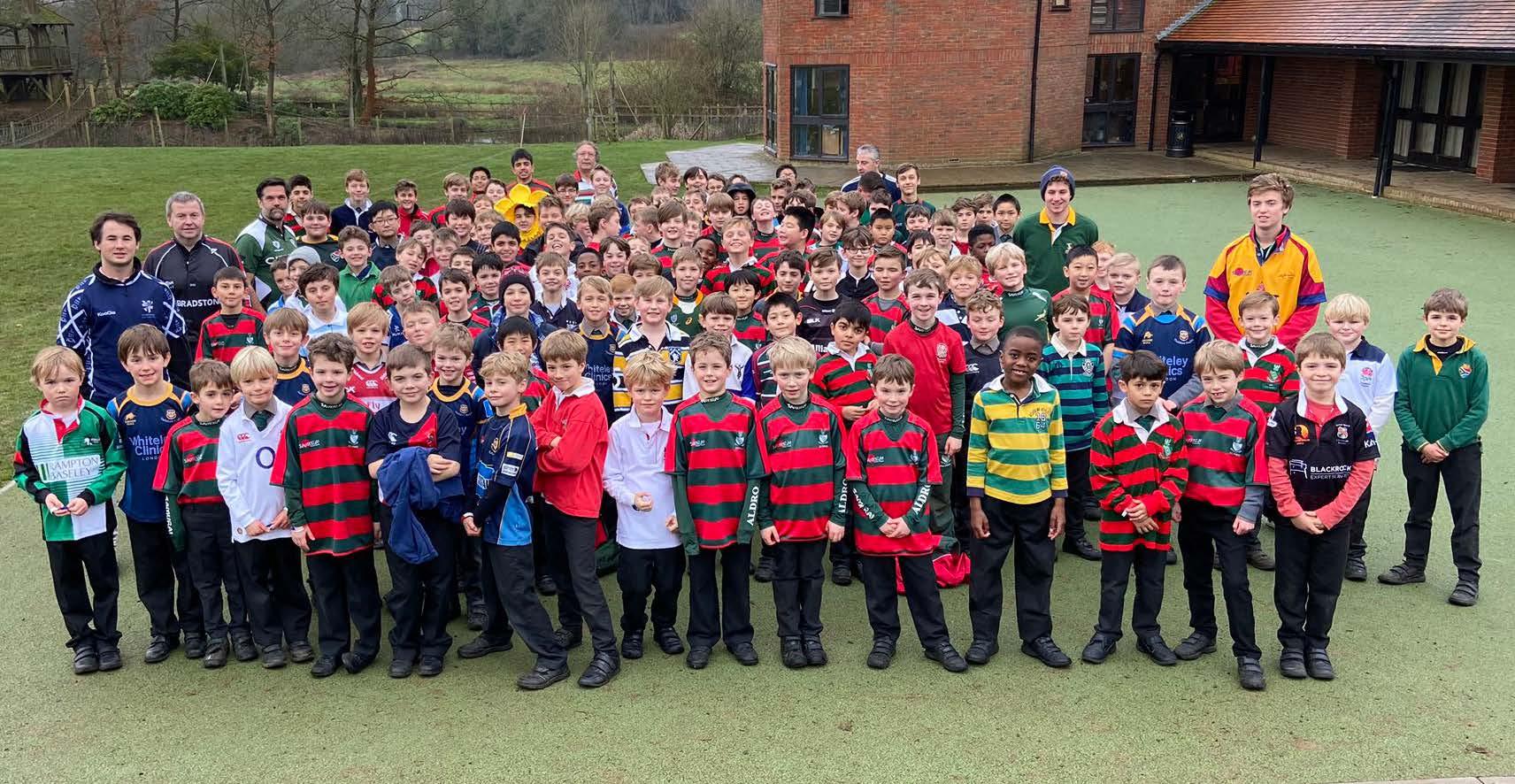
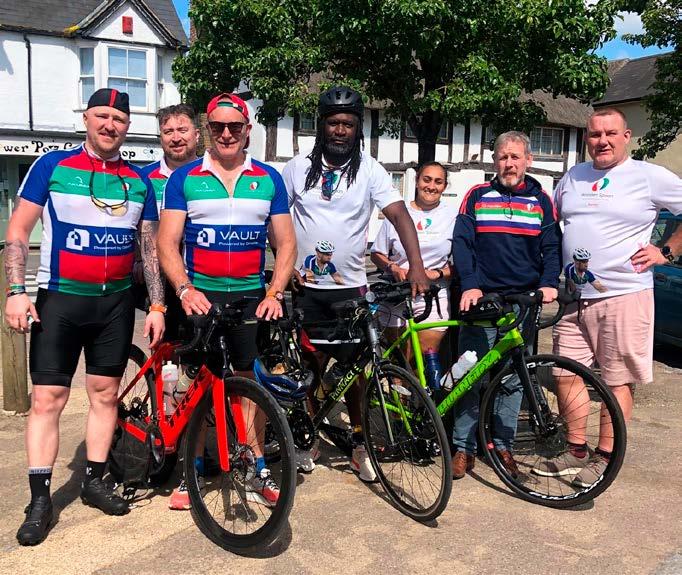
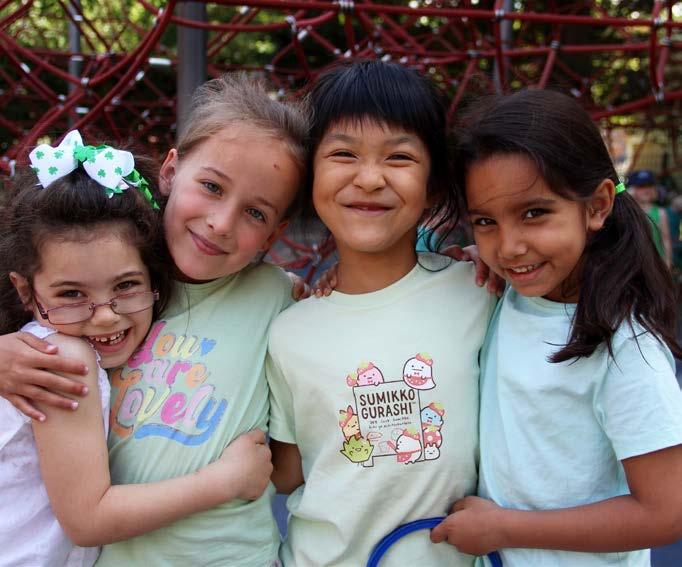
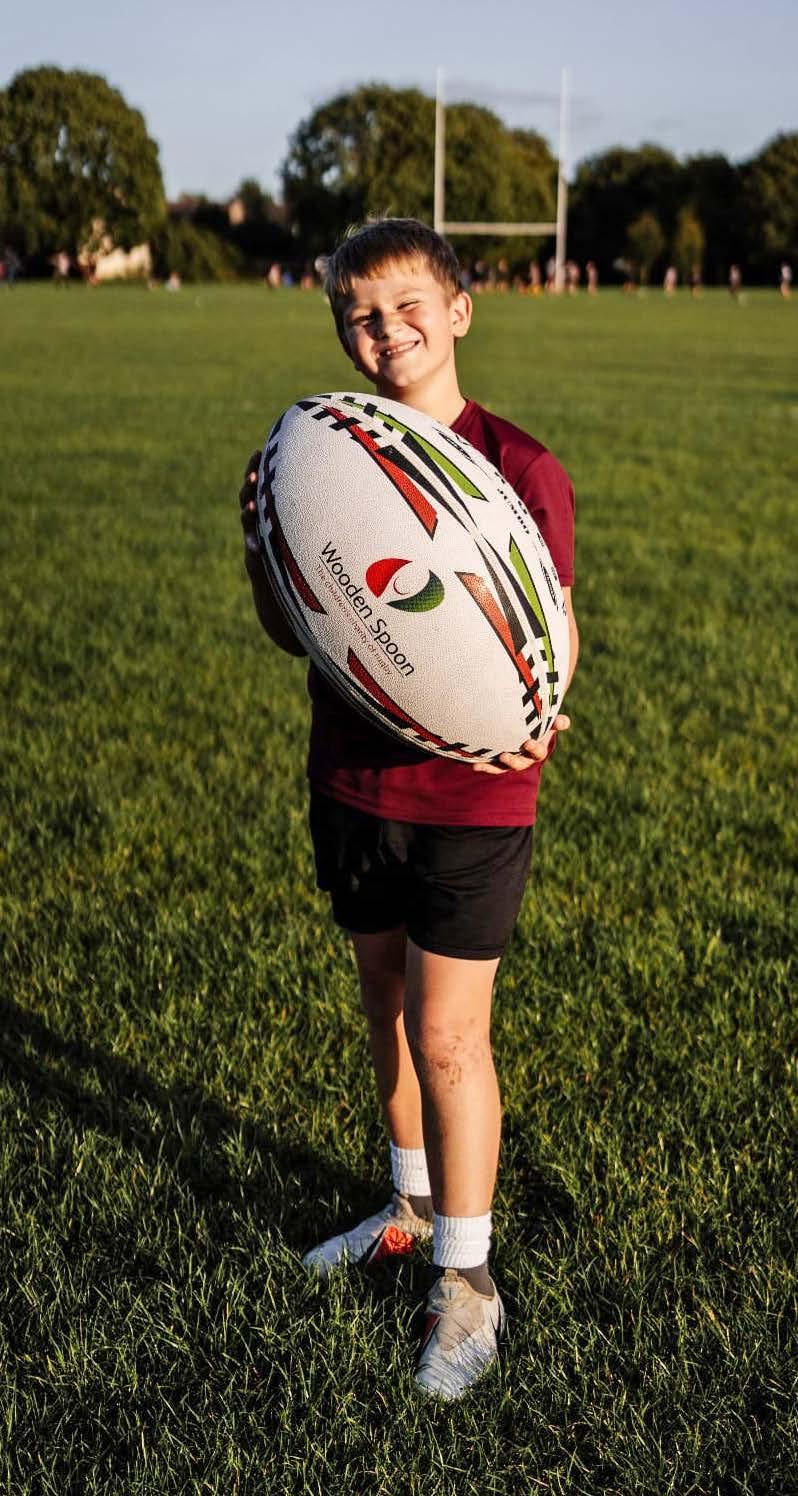
Including Income and Expenditure Account for the year ended 31 March 2024
INCOME
The notes on pages 48 to 58 form part of these financial statements.
These accounts are prepared in accordance with the special provisions of Part 15 of the Companies Act relating to small companies and constitute the annual accounts required by the Companies Act 2006 and are for circulation to members of the company.
The financial statements on pages 1 to 60 were authorised and approved by the Council on 19th September 2024 and were signed on its behalf by:

Quentin Smith Chairman
For the year ended 31 March 2024
(523,546)
The charity is a private company limited by guarantee (company no. 01847860) and a registered charity in England and Wales (charity no. 326691), and in Scotland (Scottish registered charity no. SC039247) which is incorporated and domiciled in the UK. The address of the registered office is Sentinel House, Harvest Crescent, Fleet, England, GU51 2UZ.
The financial statements have been prepared in accordance with Accounting and Reporting by Charities: Statement of Recommended Practice applicable to charities preparing their accounts in accordance with the Financial Reporting Standard applicable in the UK and Republic of Ireland (FRS 102) (effective 1 January 2019) – (Charities SORP (FRS 102)), the Financial Reporting Standard applicable in the UK and Republic of Ireland (FRS 102), the Charities Accounts (Scotland) Regulation 2006 and the Companies Act 2006.
Wooden Spoon Society meets the definition of a public benefit entity under FRS 102. Assets and liabilities are initially recognised at historical cost or transaction value unless otherwise stated in the relevant accounting policy note(s).
The charity reported a cash inflow of £681,862 for the year. The inflow primarily relates to fund raising activities returning to normal levels as Covid-19 restrictions have been lifted. The charity has continued project grant commitments and these are recognised at the time that Trustees agree the support. The Trustees are of the view that the charity is financially secure and that on this basis the charity is a going concern. The Trustees confirmed the adverse impact of the Covid-19 epidemic in the last few years is concluded. In particular they have noted the level of free reserves carried forward will be continually monitored to ensure that the future awarding of project grants takes into account the financial position of the charity and the charity is responding to current situations promptly.
The charity has a wholly owned subsidiary WSS Events Ltd. The financial statements to 31 March 2024 and 2023 have been prepared as a single entity as the subsidiary has been dormant.
Income is recognised when the charity has entitlement to the funds, any performance conditions attached to the item(s) of income have been met and it is probable the income will be received and the amount can be measured reliably.
Income comprises membership, donations, income receivable from events held during the year and interest receivable. Donations are recognised when received and comprise amounts received which are not connected to fundraising events. All other income is accounted for on a receivable basis. Income principally arises within the United Kingdom. Related gift aid is recognised when a donation is received.
Income from grants, including government grants, whether ‘capital’ grants or ‘revenue’ grants, is recognised when the charity has entitlement to the funds, any performance conditions attached to the grants have been met, it is probable that the income will be received and the amount can be measured reliably and is not deferred
Donated professional services and donated facilities are recognised as income when the charity has control over the item, any conditions associated with the donated item have been met, the receipt of economic benefit from the use by the charity of the item is probable and that economic benefit can be measured reliably. In accordance with the Charities SORP (FRS 102), the general volunteer time of the supporter is not recognised. Please refer to the Trustees’ annual report for more information.
Donated professional services and donated facilities are valued on the basis of the amount the charity would have been willing to pay to obtain the services on the open market; a corresponding amount is then recognised as expenditure in the same period.
Interest on funds held on deposit is included when receivable and the amount can be measured reliably by the charity; this is normally upon notification of the interest paid or payable by the Bank.
Restricted funds are those funds which are to be used in accordance with specific restrictions imposed by donors or which have been raised by the charity for a particular purpose. The details of which are set out in the notes to the accounts.
Unrestricted funds comprise accumulated surpluses and deficits on general funds. They are available for use at the discretion of the Council in furtherance of the objectives of the charity.
Charitable activities comprise grants and donations paid or committed to charitable projects. Committed charitable expenditure shown in note 11 represents the total value of the charitable projects for which approval has been granted. Payment of funds to the beneficiary organisation is contingent on specific performance criteria being met. When grant applications are approved by the Trustees the grant and a grant letter is issued to a beneficiary organisation and the charity recognises a liability for the amount approved as based on experience it is more probable than not the grants will be paid.
Fundraising and costs of fund raising include the expenses of fundraising events, promotional activities, staff and other costs directly involved in the relevant activity. Membership and donations costs are covered by staff costs involved in the operation of the Charity.
All expenditure is included on an accruals basis and is recognised when there is a legal or constructive obligation to pay. Costs have been attributed to one of the financial categories of expenditure in the Statement of Financial Activities (SOFA).
Governance costs relate to the compliance with constitutional and statutory requirements and included within support costs.
Where costs cannot be directly attributed to a particular heading, they have been apportioned to each functional category of expenditure. The allocation is based on several criteria including an assessment of time spent.
Pension contributions are made to either the employees’ group arranged Auto Enrolment scheme, the staff members own pension scheme or cash for the employee to make their own pension contributions. The amount charged to the Statement of Financial Activities in respect of pension costs is the contributions payable in the year. Differences between contributions payable in the year and contributions actually paid are shown as either accruals or prepayments in the balance sheet.
Tangible fixed assets are stated at cost, net of depreciation and any provision for impairment. Depreciation is provided on all tangible fixed assets at rates calculated to write off the cost of each asset to its estimated residual value on a straight line basis over its expected useful life, as follows:-
Other equipment
Computer equipment
33 1/3%
33 1/3%
Assets costing less than £500 are not capitalised.
Fixed asset investments are stated at cost. Provision is made for any impairment in the value of fixed asset investments.
All irrecoverable VAT on revenue costs is charged to the statement of financial activities.
Trade debtors, other debtors and accrued income are recognised at the settlement amount. Prepayments are valued at the amount prepaid net of any discount.
Creditors are recognised when the charity has a present obligation resulting from a past event that will probably result in the transfer of funds to a third party and measured or estimated reliably. Creditors are normally recognised at their settlement amount after any trade discounts are due.
Cash and cash equivalents
Cash is represented by cash in hand and immediately accessible deposits with financial institutions.
Taxation
The company is a registered charity, and as such is entitled to tax exemptions on all its income and gains properly applied for its charitable purposes.
Financial instruments
Financial assets and liabilities are measured at settlement value.
Critical accounting judgements and key sources of estimation uncertainty
In the application of the charity’s accounting policies, which are described above, Trustees are required to make judgements, estimates, and assumptions about the carrying values of assets and liabilities that are not readily apparent from other sources. The estimates and underlying assumptions are based on historical experience and other factors that are considered to be relevant.
• Depreciation – The charity depreciates its assets at rates calculated to write off the cost on a straight-line basis over the expected useful economic lives.
• Impairment of debtors – The charity makes an estimate of trade debtors and other debtors. When assessing the impairment of trade debtors and other debtors, management considers factors including the credit rating of the debtor, the ageing profile of debtors and historical experience.
Notes to the Financial Statements for the year ended 31 March 2024
Detailed below is the breakdown of the Income and Expenditure expended by the charity in the various areas of operation. Further breakdown of the staff
and support costs, with the allocation to different activities is detailed in the subsequent pages.
All grants have been made to institutions.
Significant grants made in the year are set out below:
Duke of Edinburgh’s Award Perth & Kinross
Seamad Care and Education
School of Hard Knocks
Hillside Specialist School & College
White Lodge Centre
Lifelites
Harberton Special School
Rugbytots
Friends of Braidburn Special School
Ashton Secondary School
£34,500 Specialist Equipment & Facilities
£46,000 Specialist Equipment & Facilities
£52,824 Health & Wellbeing
£27,000 Playgrounds and Outdoor Activities
£40,000 Playgrounds and Outdoor Activities
£30,000 Sensory Rooms and Gardens
£34,672 Sensory Rooms and Gardens
£25,000 Health & Wellbeing
£46,300 Specialist Equipment & Facilities
£25,000 Sensory Rooms and Gardens
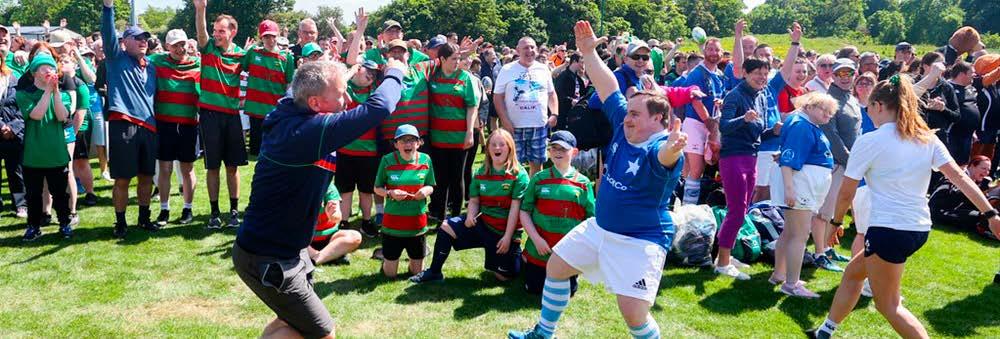
The total employee benefits of the key personnel of the charity were £281,875 (2023: £258,170). During 2024 the key personnel included the Chief Executive Officer, the Director of Projects and Systems, Director of Finance and Operations and the Director of Fundraising and Marketing.
No Trustee received any emoluments during the year ended 31 March 2024 (2023: £nil). During the year expenses totalling £2,915 were incurred by three Trustees (2023: £1,027 by two Trustees) which mainly relate to travel.
The charity provides a contribution to the pension schemes of all staff. In the current financial year £23,583 has been paid (2023: £18,747).
One member of staff were made redundant in the year £10,717. (2023: nil).
Support costs incurred in the operation of the charity are detailed above. These costs are apportioned to each category of expenditure. The apportionment is based on the people committed to delivering the income related to these categories.
FedEx provide delivery services on a pro bono basis and the market value of these services is included above and has also been included in income to recognise these services were kindly donated free of charge.
No legal and professional costs were incurred in connection with Governance matters during the year.
The Society has an investment of £2 being the share capital of WSS Events Ltd. The investment represents 100% of the ordinary share capital of WSS Events Limited (a company registered in England and Wales) comprising two ordinary shares of £1 each. WSS Events Ltd is dormant in 2023-24 and 2022-23.
In the current year the charity was bequeathed an A class debenture in Murrayfield (Scottish Rugby) which will expire in 2045 at which point the holder will receive the original purchase price of £1,200. The asset is recorded and held at a notional value of £1. In the current year the charity invested £525,545 from bank deposits in the CCLA Ethical Fund. In previous years the charity received a donation of shares in Esher rugby club; this asset is recorded as an investment at a notional value of £1.
Deferred income has arisen as there are events which are taking place in the financial year to 31 March 2024 for which some revenue has been received in the current year.
Other Restricted Funds
During the year the charity has granted restricted donations where the funds have been applied to the specific requirements of the donor or their representatives.
This represents the amount available to be donated or expended at the discretion of the Trustees, for purposes consistent with the charity’s charitable aims.
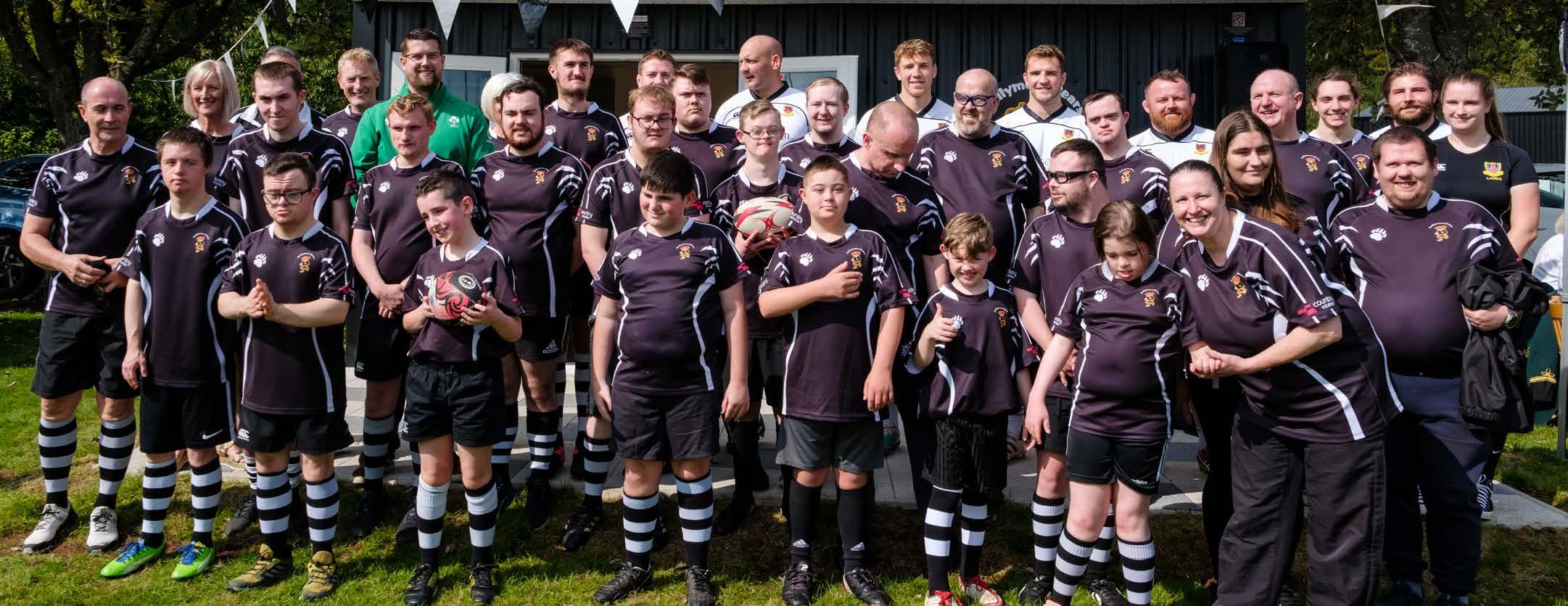
Donations in kind are included in income when the benefit to the charity is reasonably quantifiable and measurable. They are valued by the Trustees at the amount the charity would have been willing to pay for the goods or services on the open market.
The donations in kind received in the year recognised in the statement of financial activities within donations totalled £5,008 (2023: £7,460).
These represented postal delivery services of £5,008 (2023: £7,460) included in the Cost of Raising Funds.
Donations in kind of time and services given to the charity by all its volunteers and supporters are of great value. As the value of these services is not capable of quantification with reasonable certainty, no amounts have been included in the financial statements for these valuable contributions.
The charity is extremely grateful for the support it receives from its numerous unpaid volunteers and other supporters.
Grants made by the charity are payments to third parties in the furtherance of the charitable objects of the charity. In the case of a grant offer being made this is accrued once the recipient has been notified of the grant award and a grant letter issued. The notifications give the recipient a reasonable expectation that they will receive the grant. Grants awards that are subject to the recipient fulfilling performance conditions are only accrued when the recipient has been notified of the grant and any remaining unfulfilled condition attaching to that grant is outside of the control of the benefitting charity.
The charity is a company limited by guarantee and has no share capital. The liability of each member in the event of a winding-up is limited to £1.
Trustees are deemed related parties to the charity and as such reporting of donations made directly to the charity is required. The Trustees are volunteers and donate their time at no cost to the charity. There were no donations from Trustees. (2023: £25,000 from 1 Trustee). Gift aid was claimed on 2023 donations.
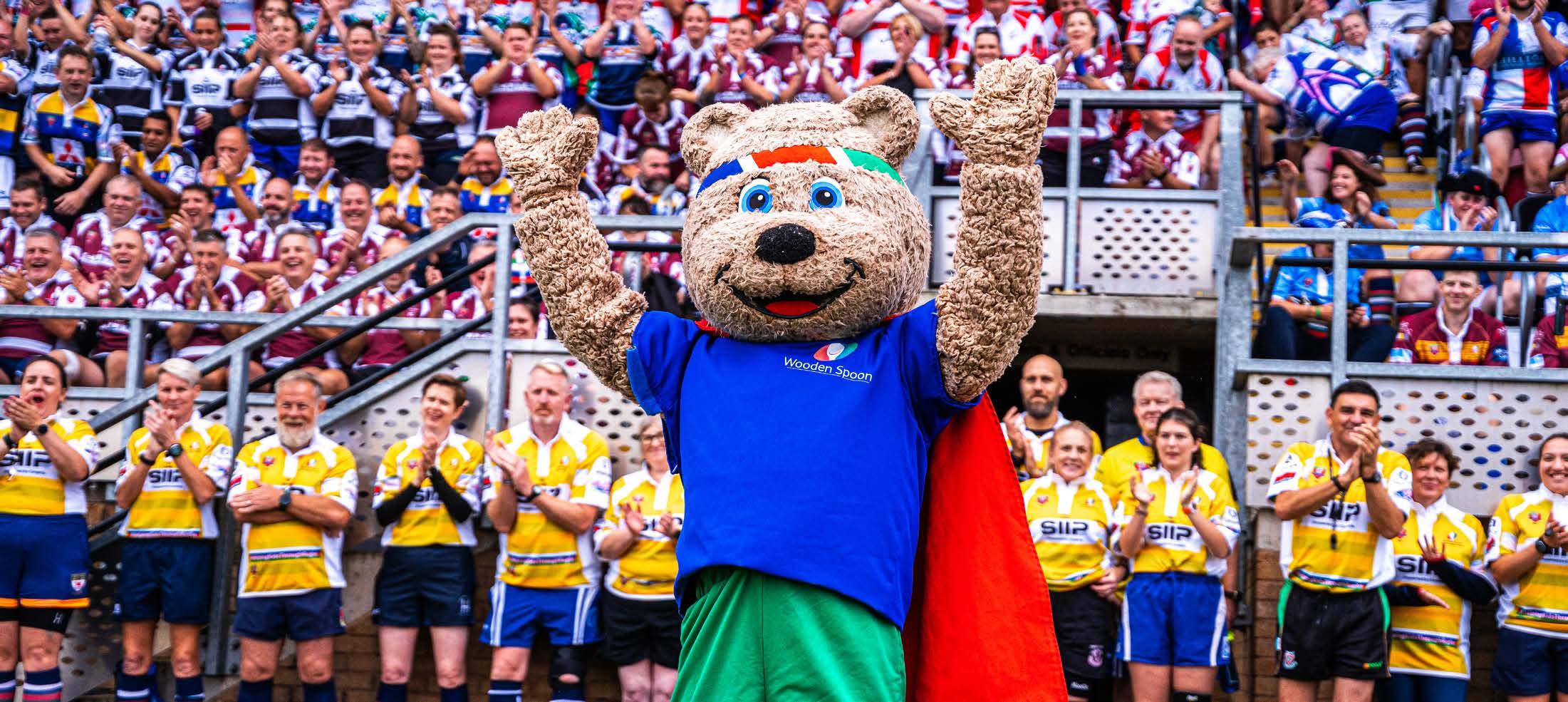
Patrons
Her Royal Highness,
The Princess Royal KG, KT, GCVO, CD, QSO
The Rugby Football Union
The Scottish Rugby Union
The Welsh Rugby Union
The Irish Rugby Football Union
Life President
Peter Scott
President
Nigel Timson
Trustees
Adrian Alli
Ali Gilbert (appointed 14th December 2023)
Becca Brackwell-Slade (appointed 14th December 2023)
Brett Bader
Christine Braithwaite
Graham Allen
Jane Harwood
Joanna Coombs
John Gibson
Mark McCafferty
Quentin Smith
Rufus Hack (appointed 14th December 2023)
Sarah Wight (appointed 14th December 2023)
Victoria Sparkes (appointed 14th December 2023)
Company Secretary
Barry Monahan
Registered Office
Sentinel House
Ancells Business Park
Harvest Crescent
Fleet
Hampshire GU51 2UZ
Independent Auditor
Crowe U.K. LLP
4th Floor
St James House St James Square Cheltenham
Gloucestershire GL50 3PR
Principle Bankers
Barclays Bank PLC
Town Gate House
Church Street East
Woking Surrey GU21 6AE
Solicitors
Clifford Chance LLP
10 Upper Bank Street London E14 5JJ
Wooden Spoon thanks our volunteers, supporters and the rugby community who all work with us to help vulnerable children and young people in the UK and Ireland.
Here are just some of them:
Our regional volunteers
Our corporate supporters
Our major donors
Our individual supporters
Our challengers and fundraisers
Our partners including the British Lions Charitable Trust
